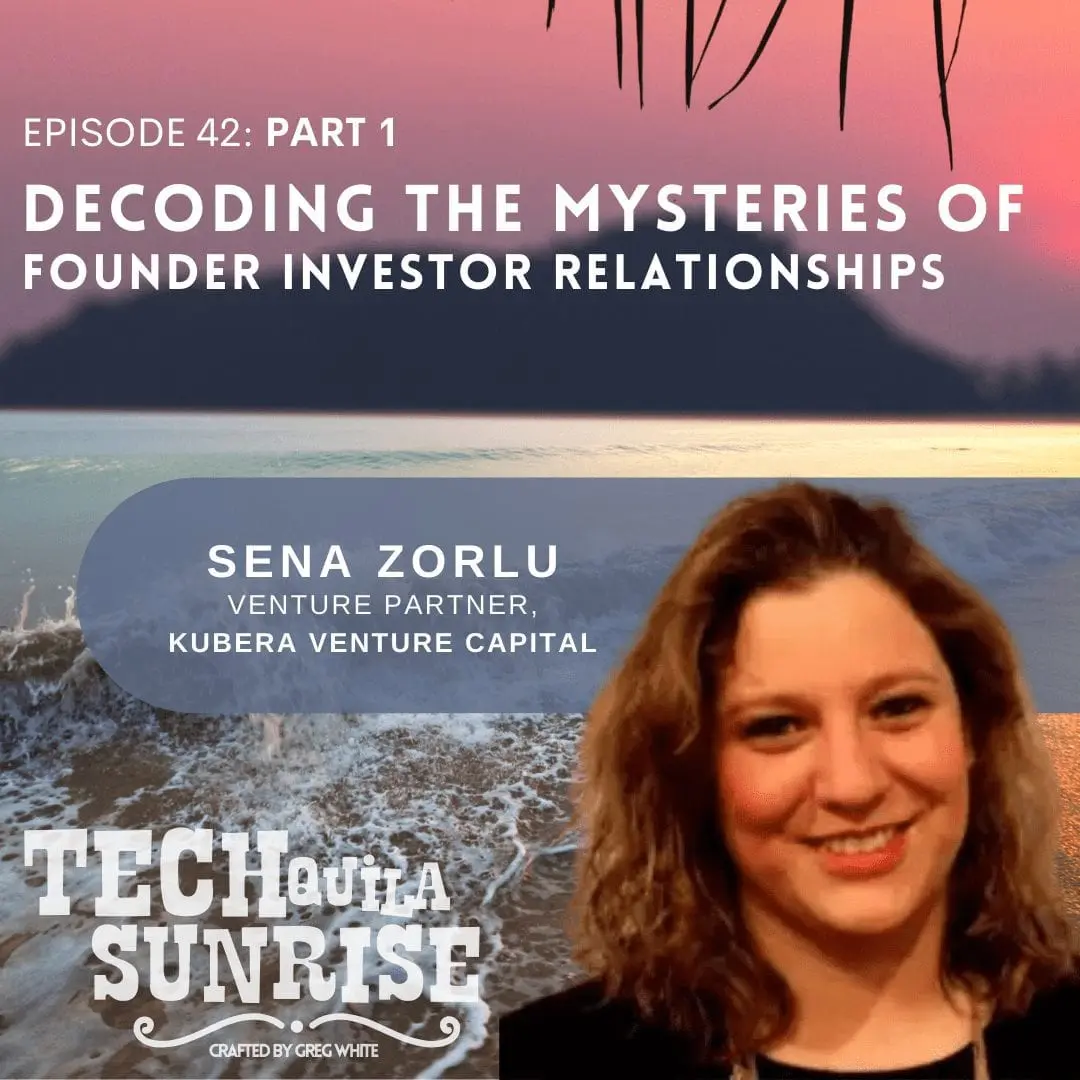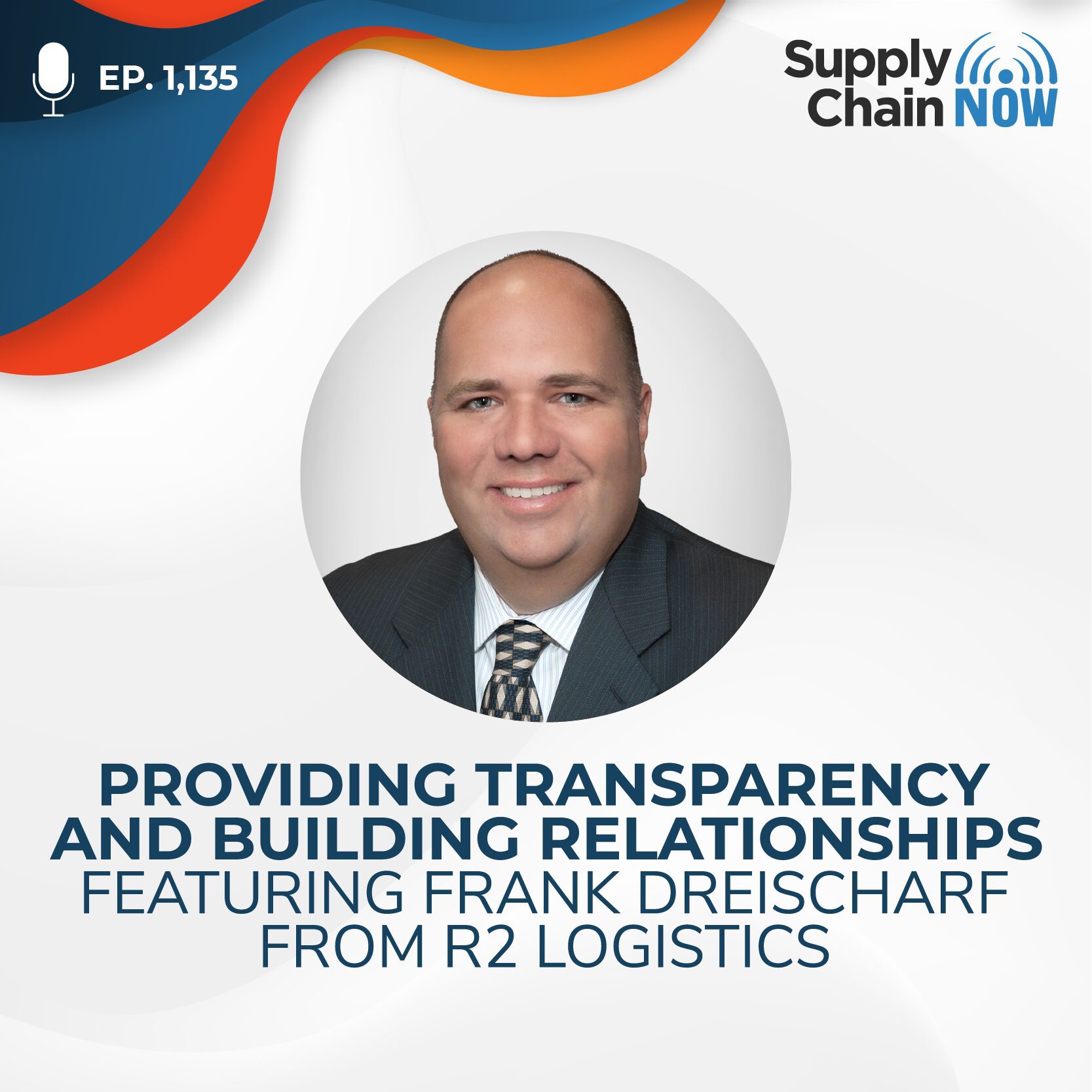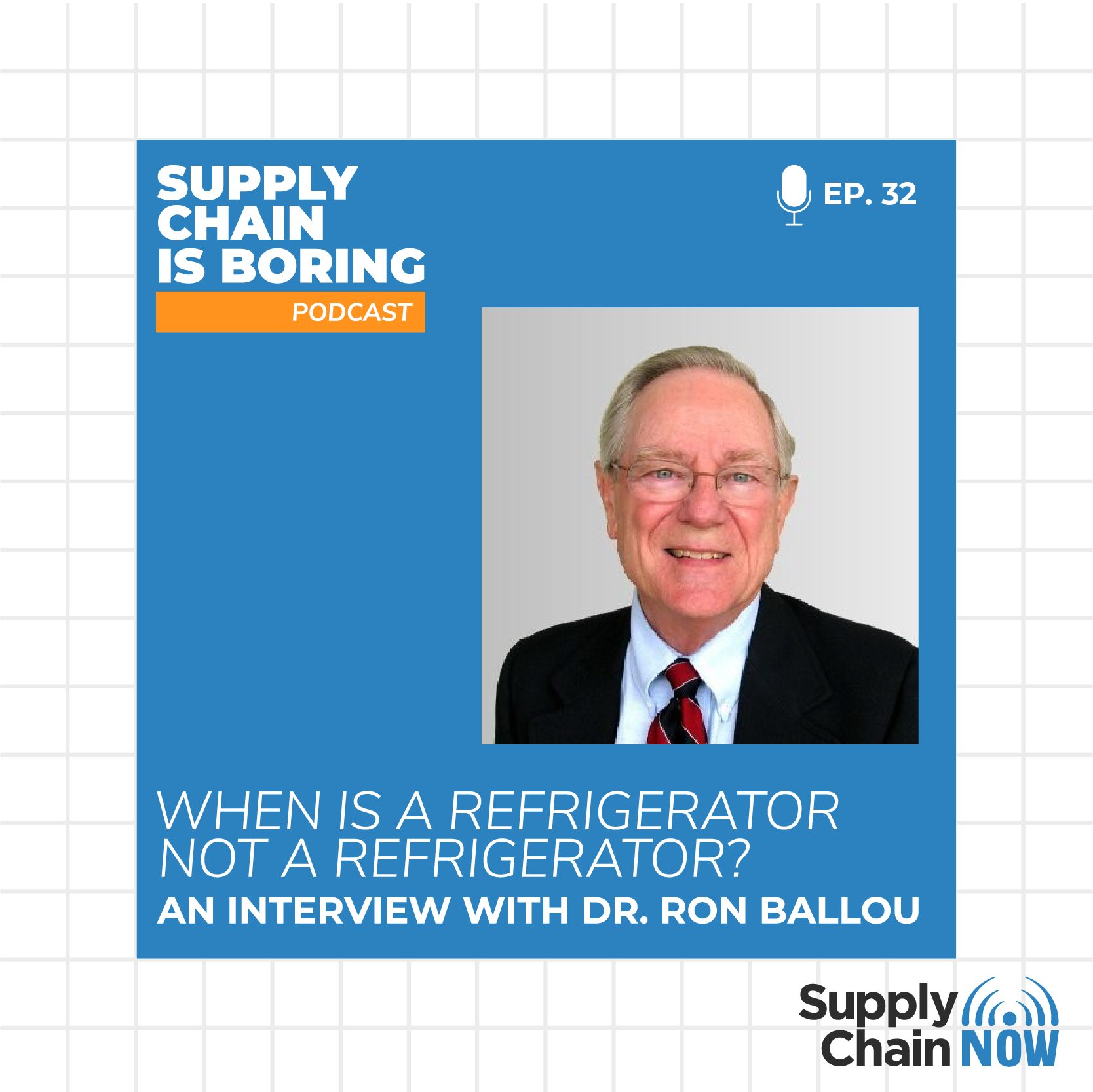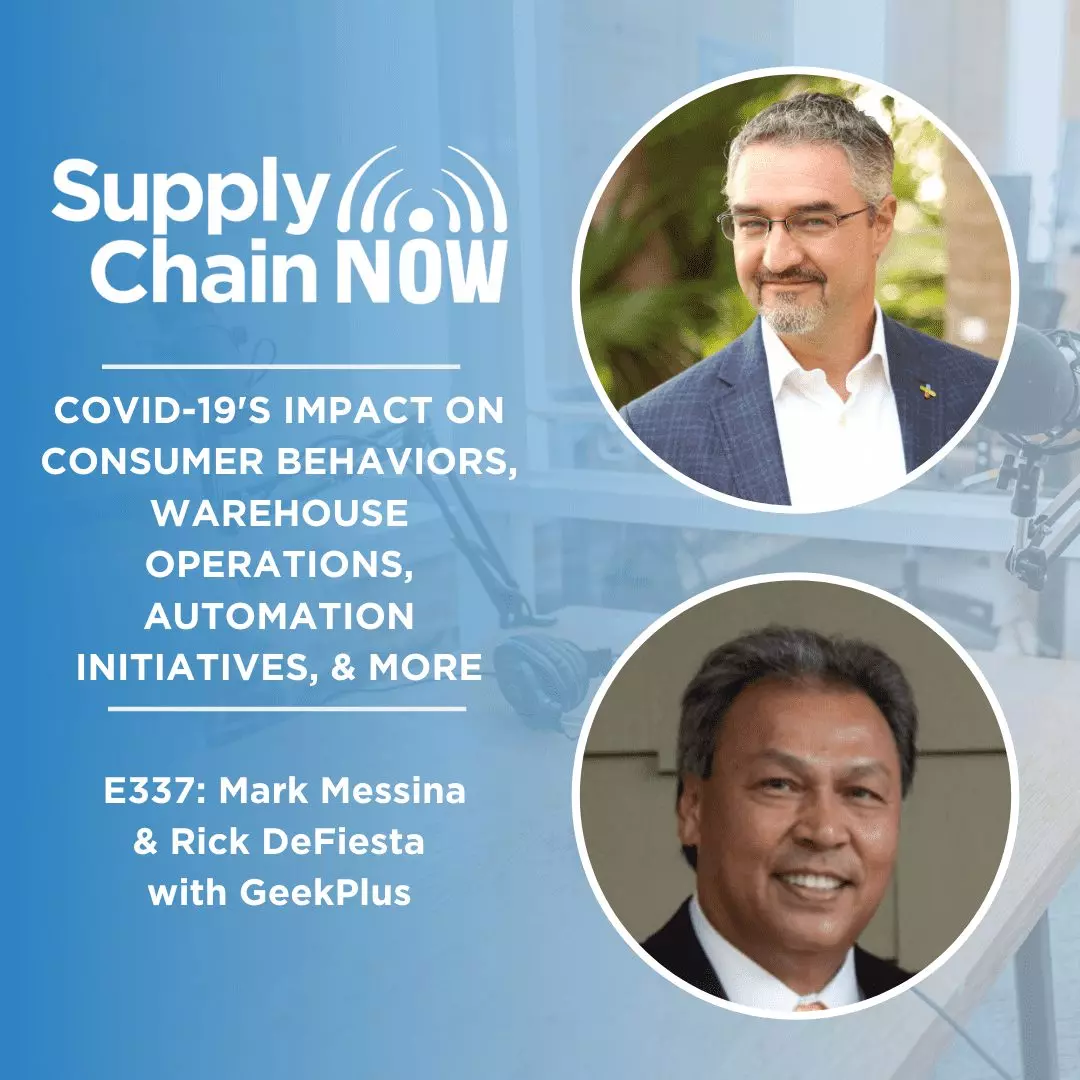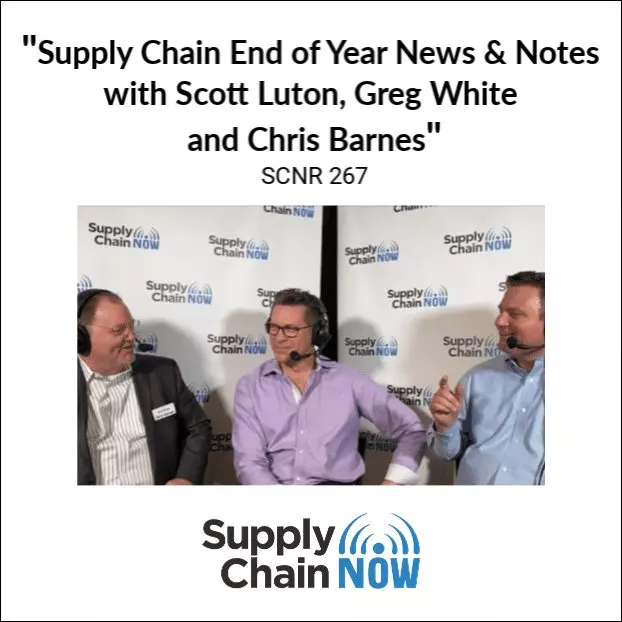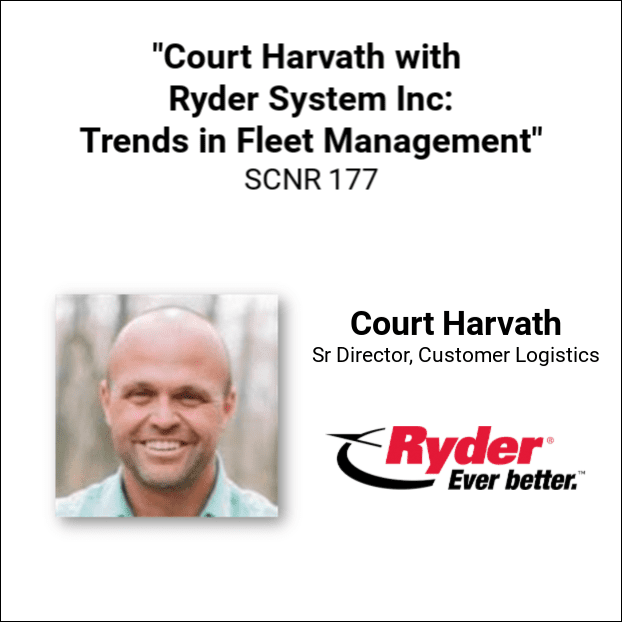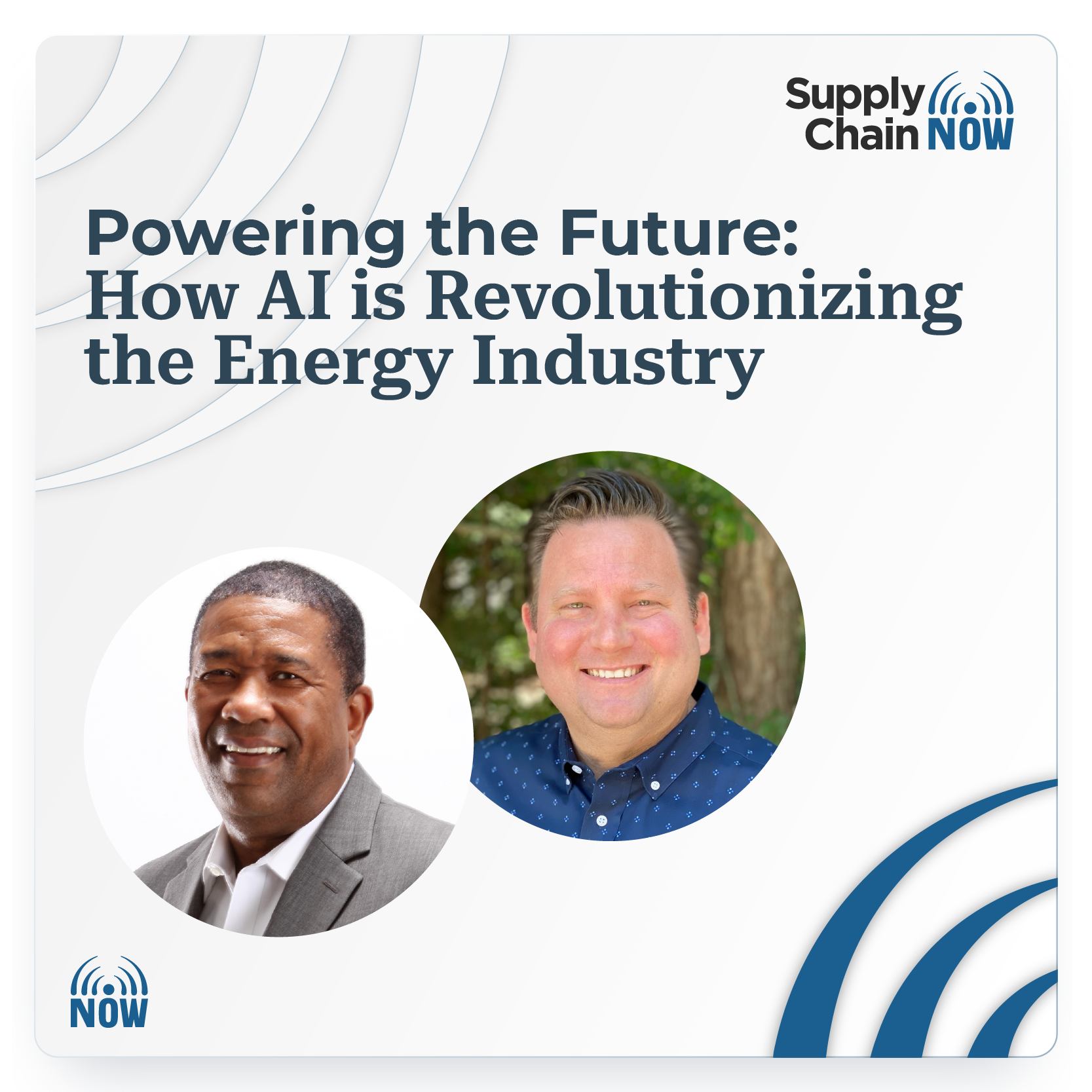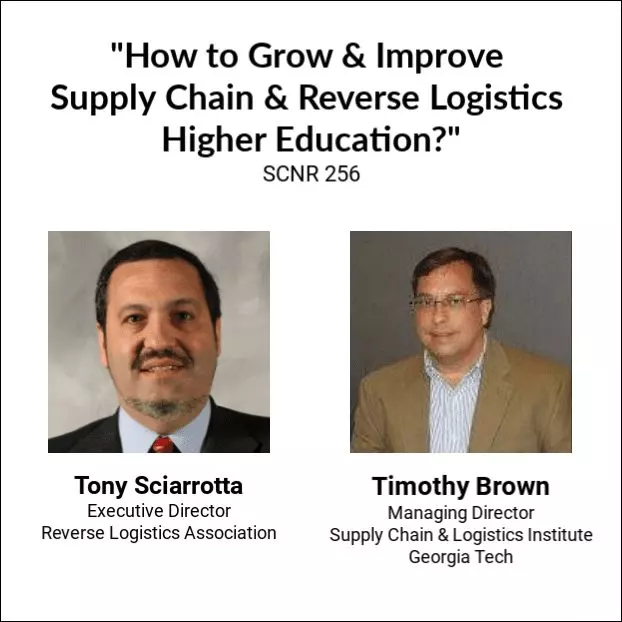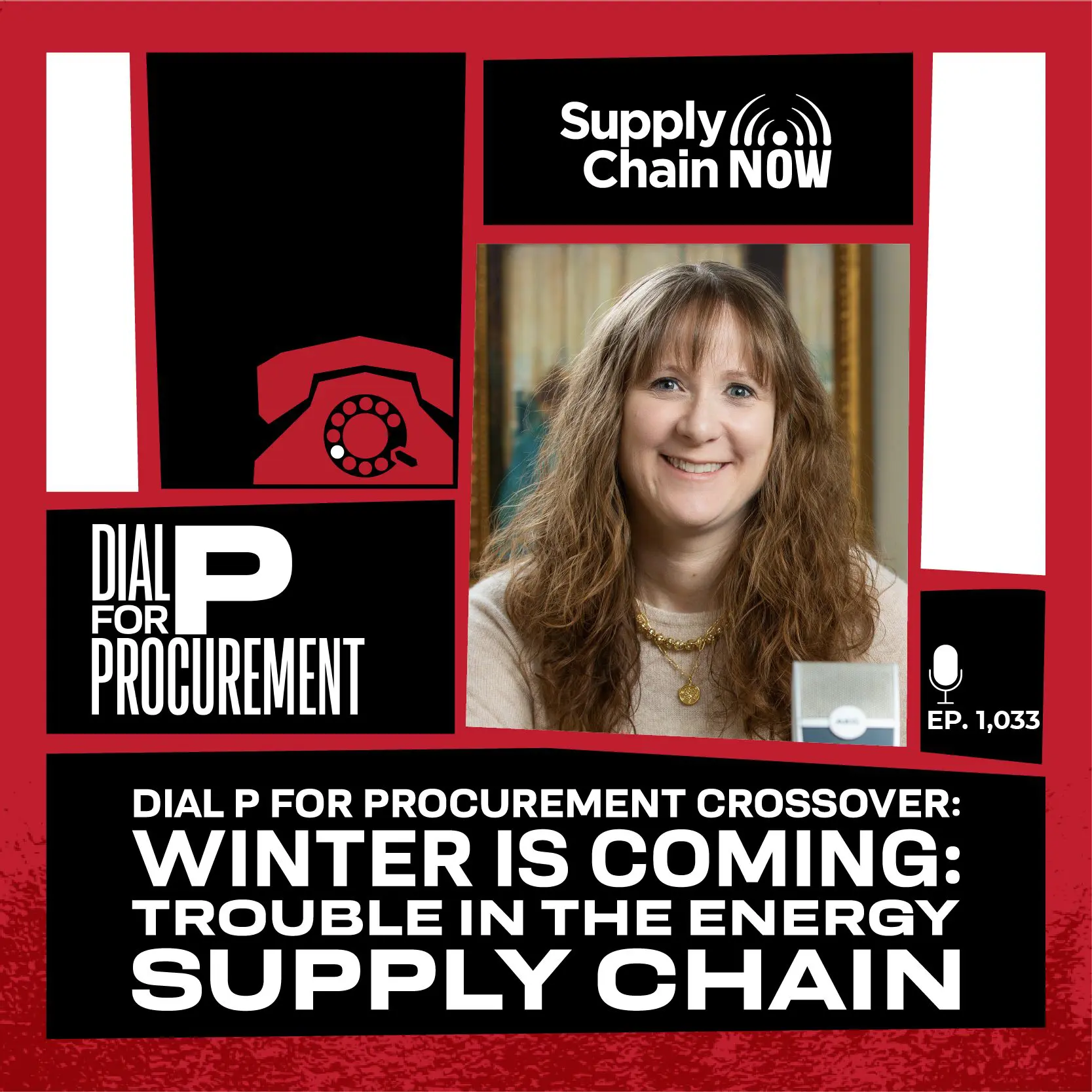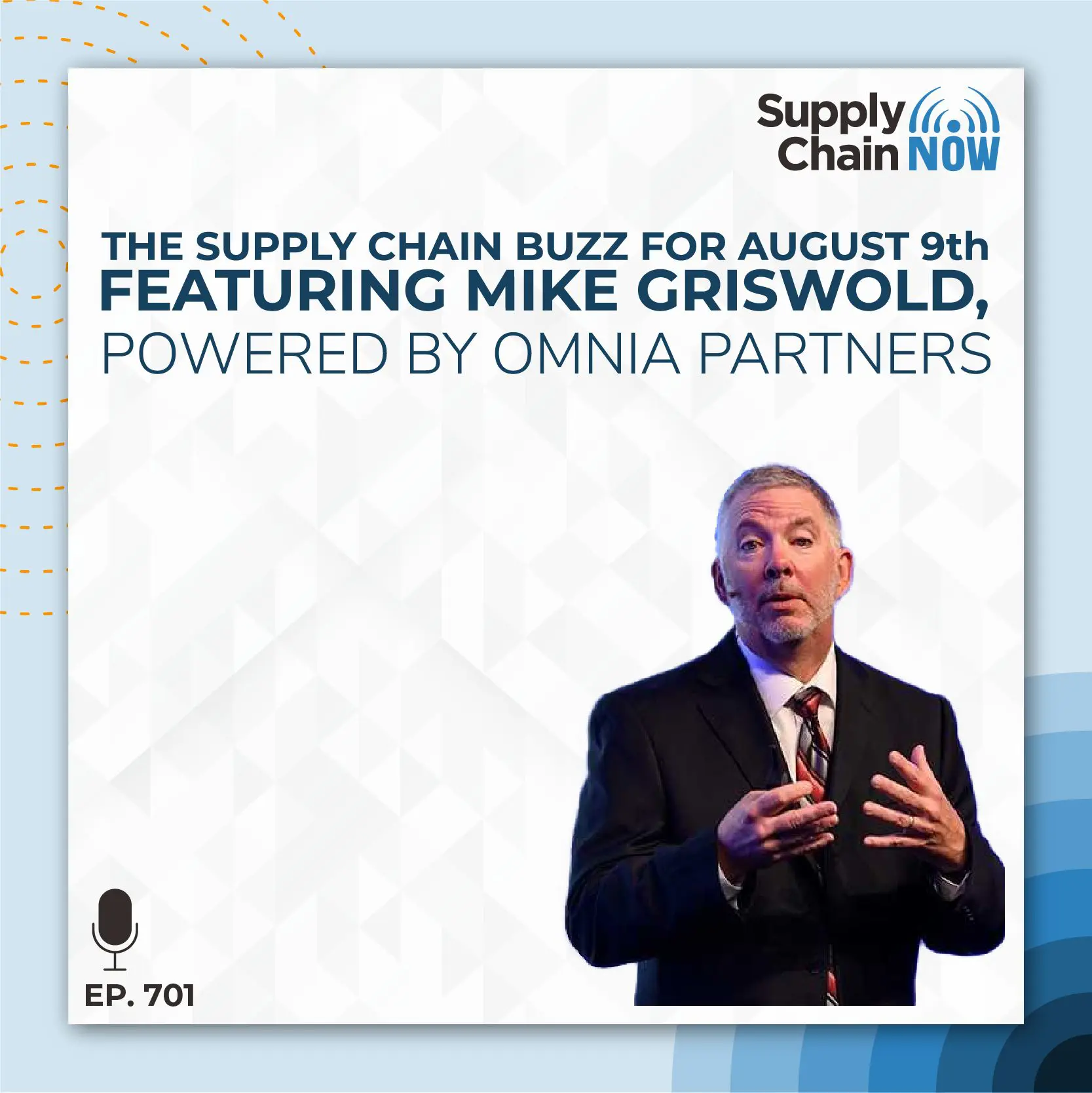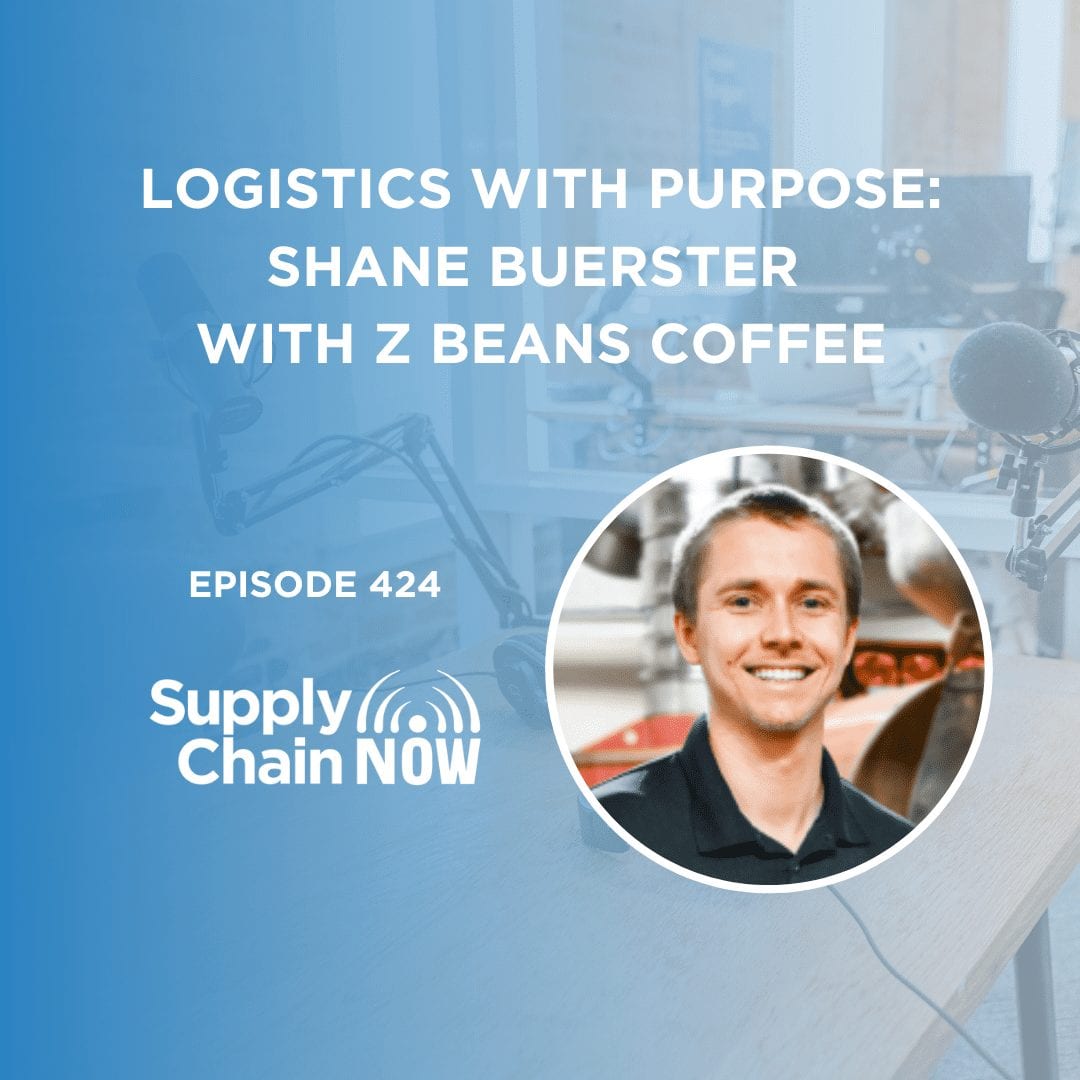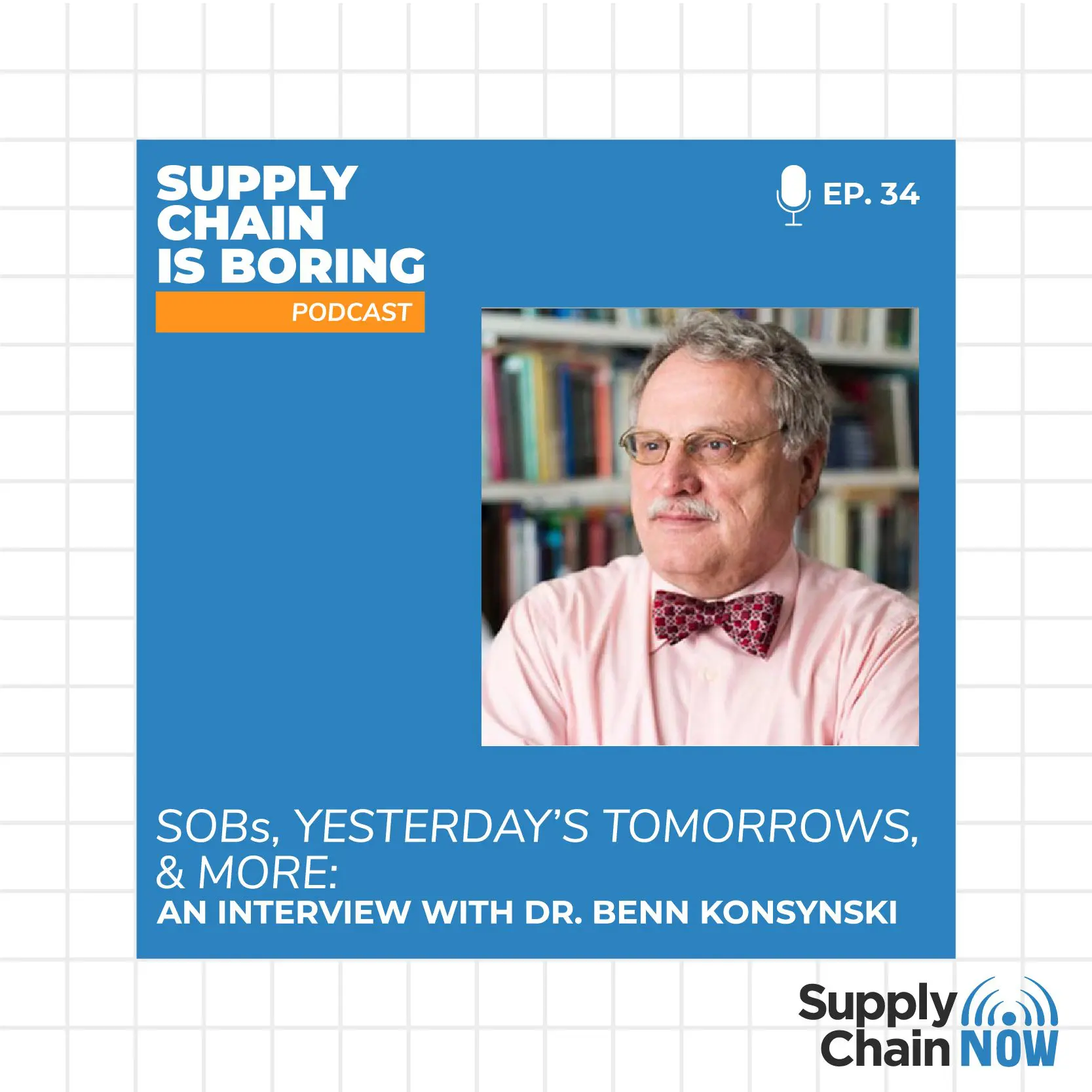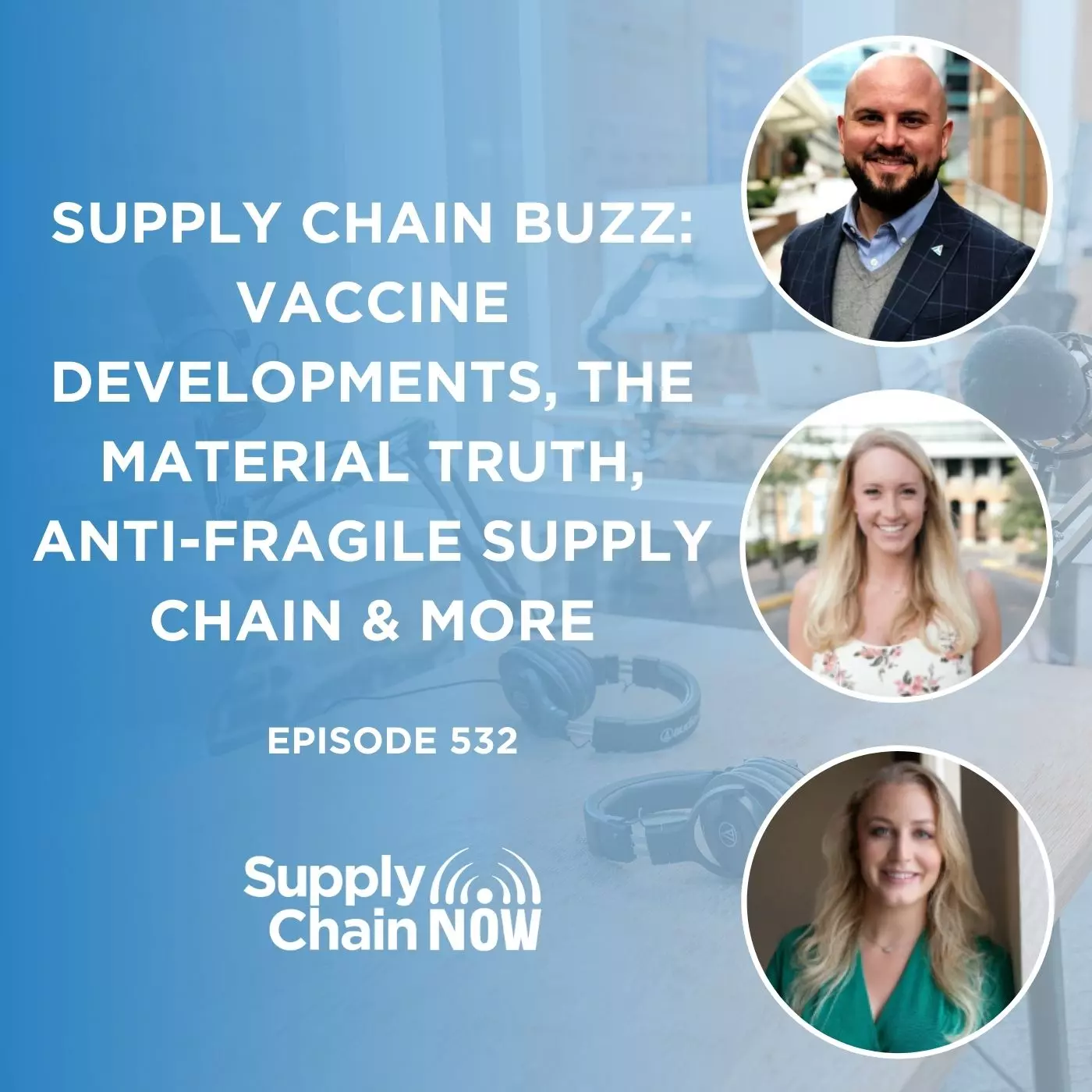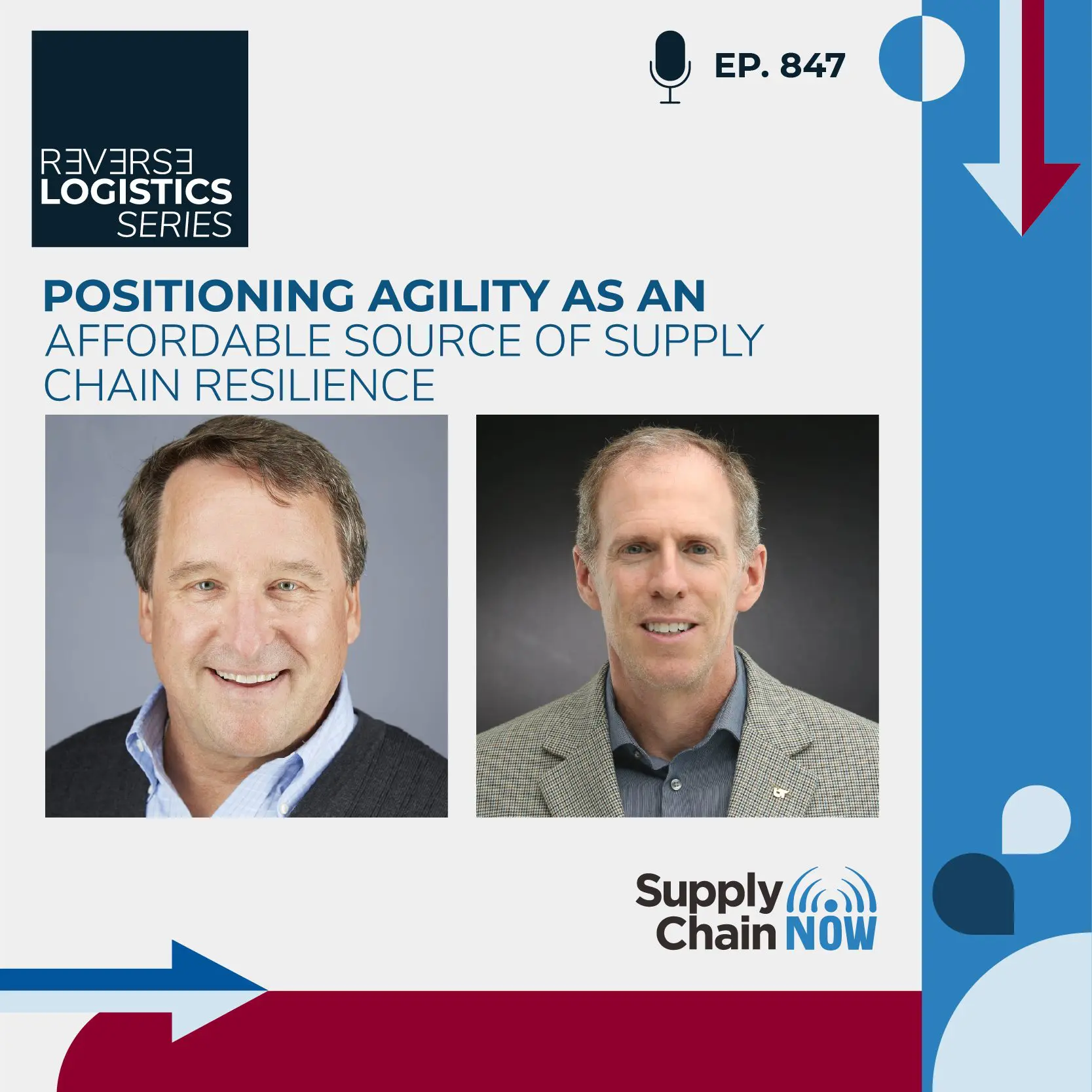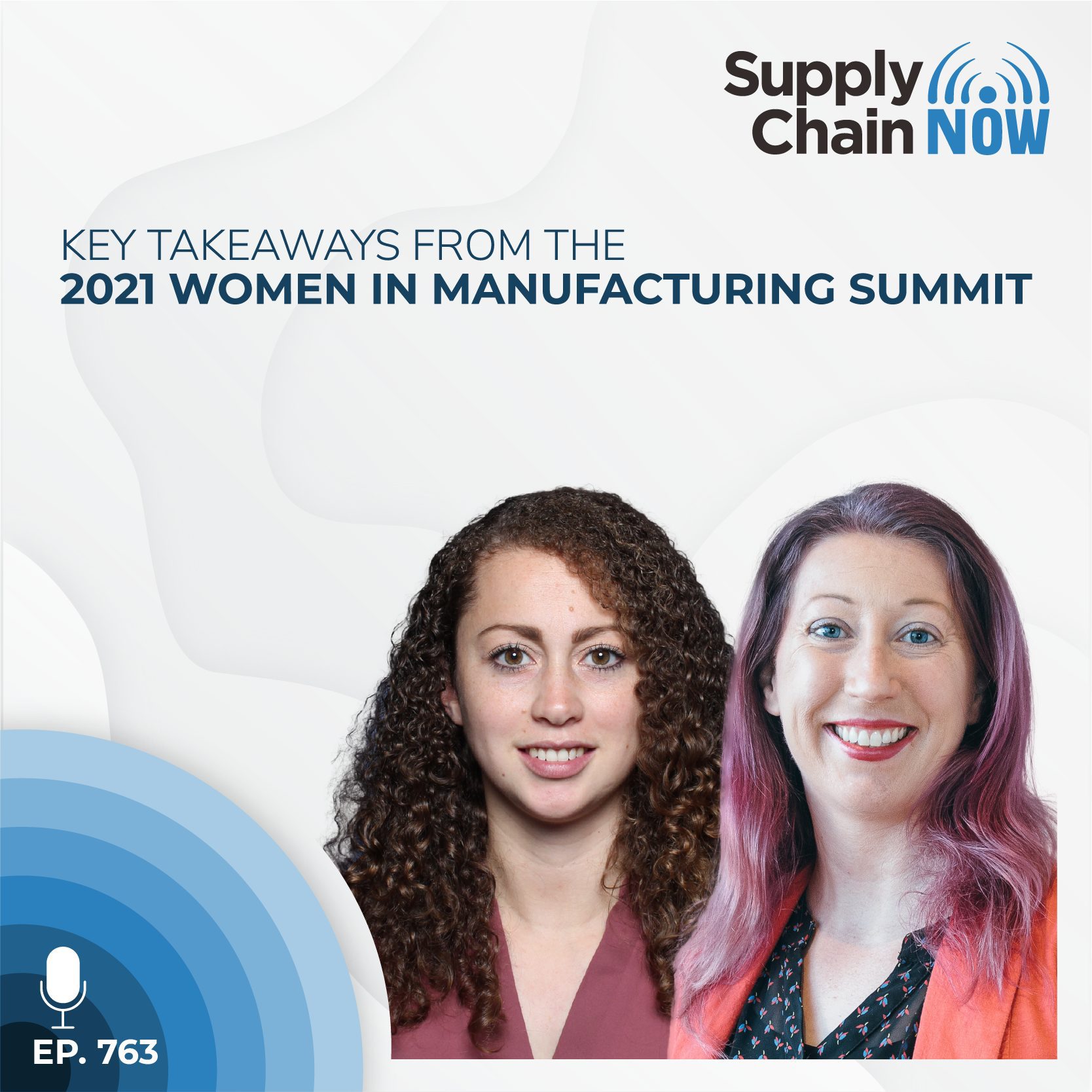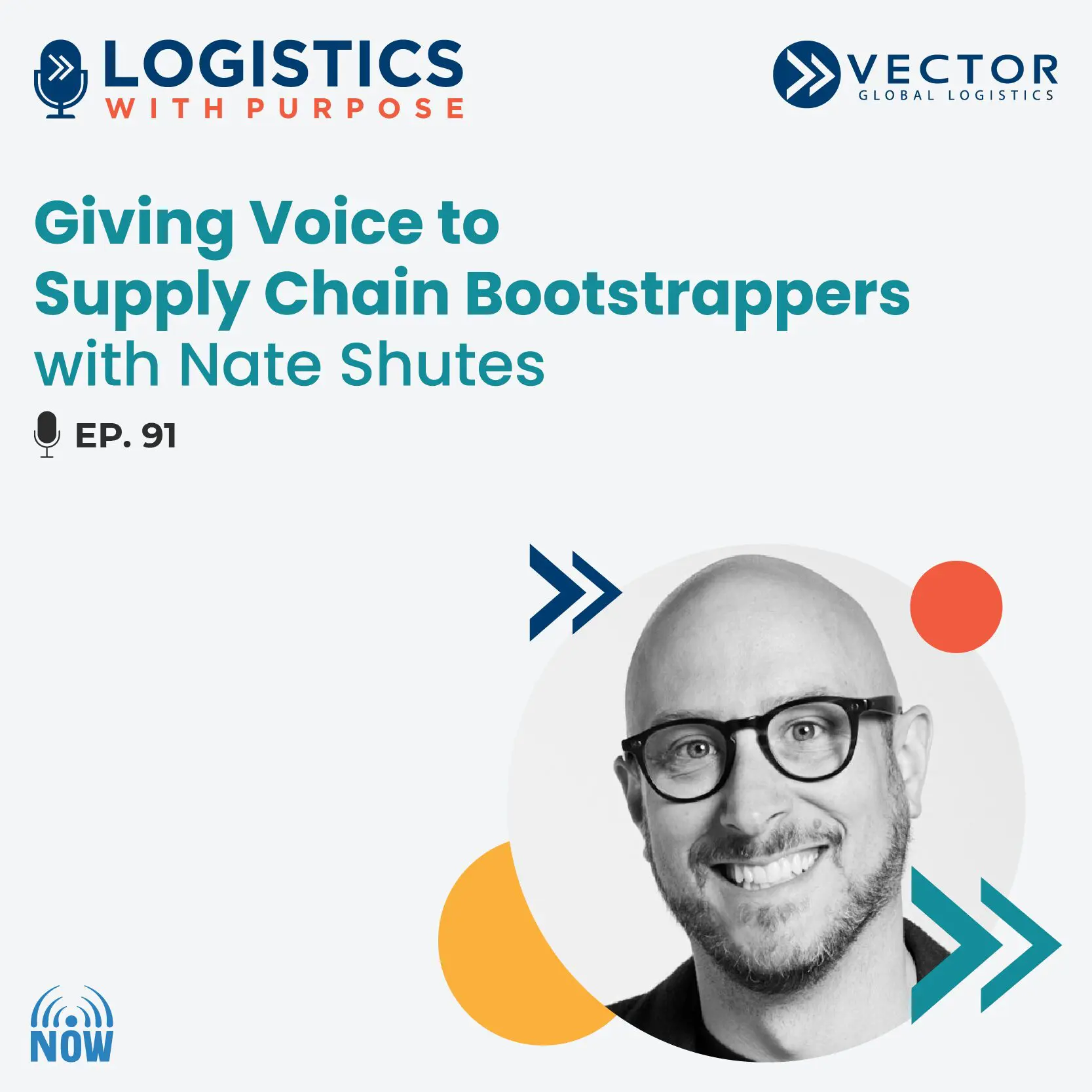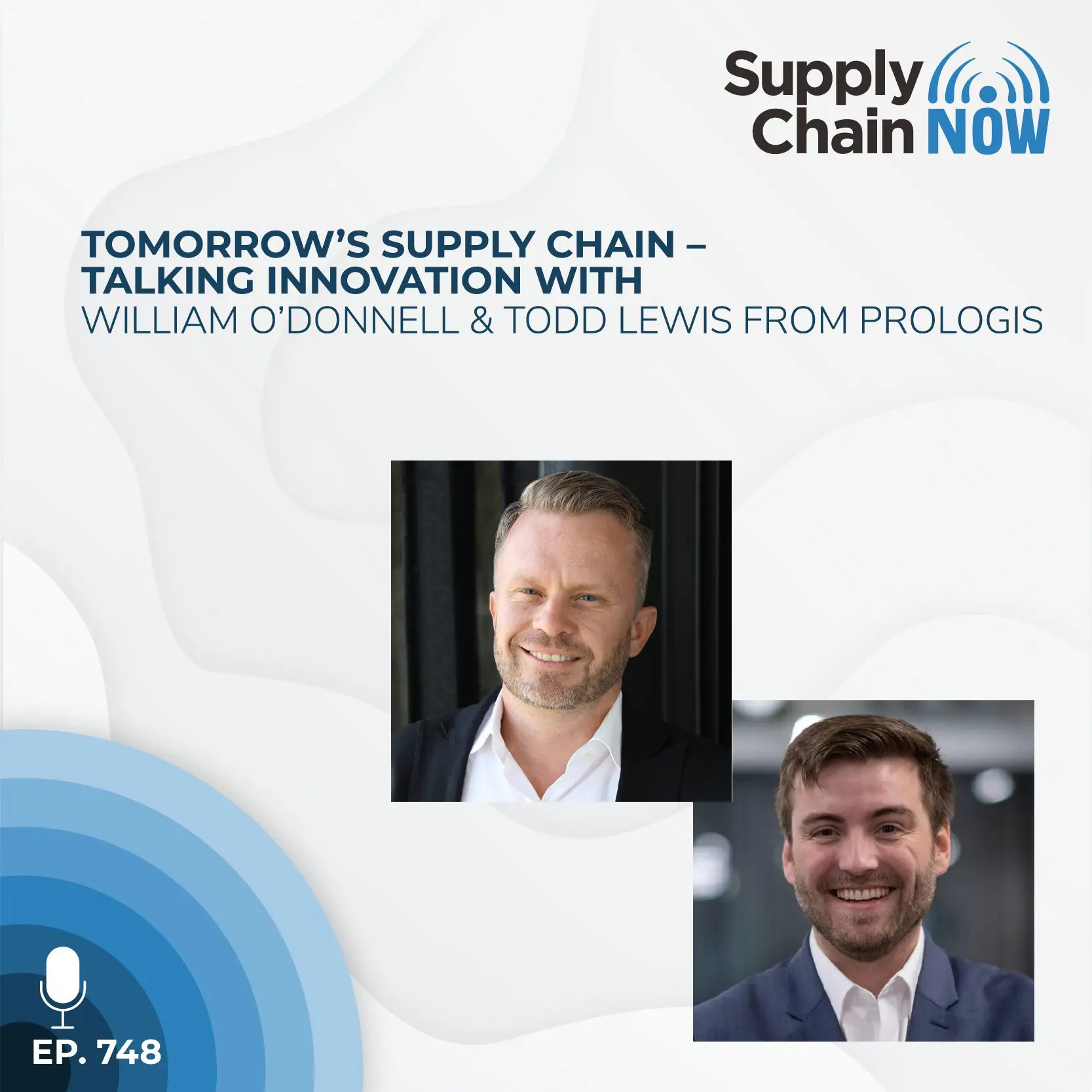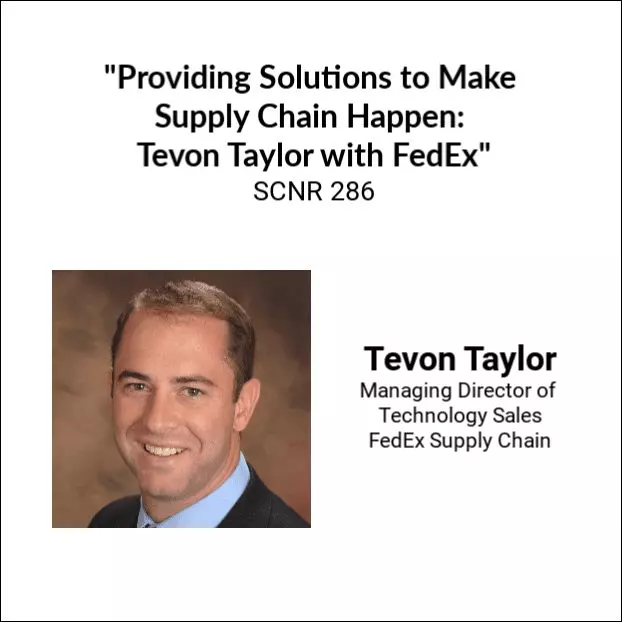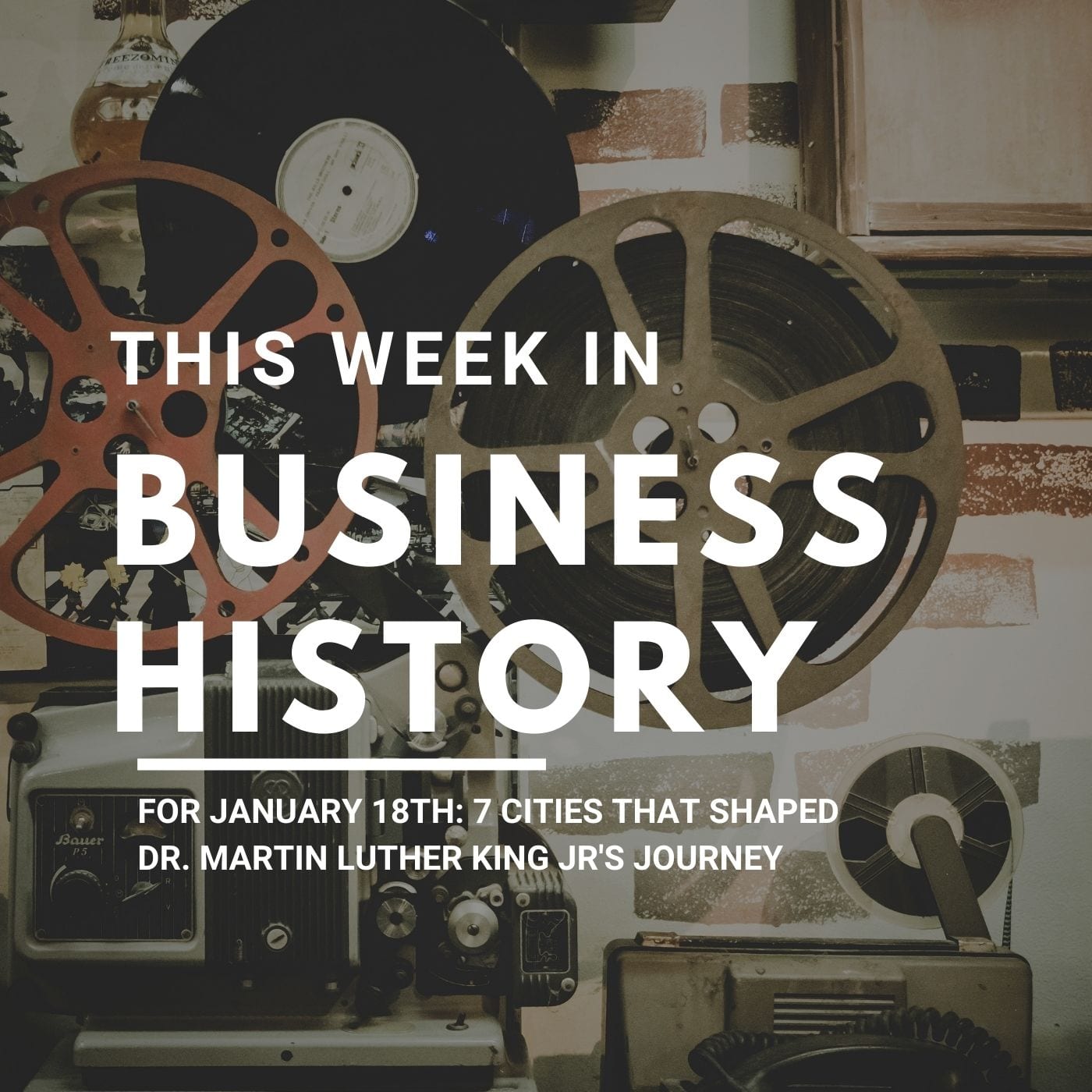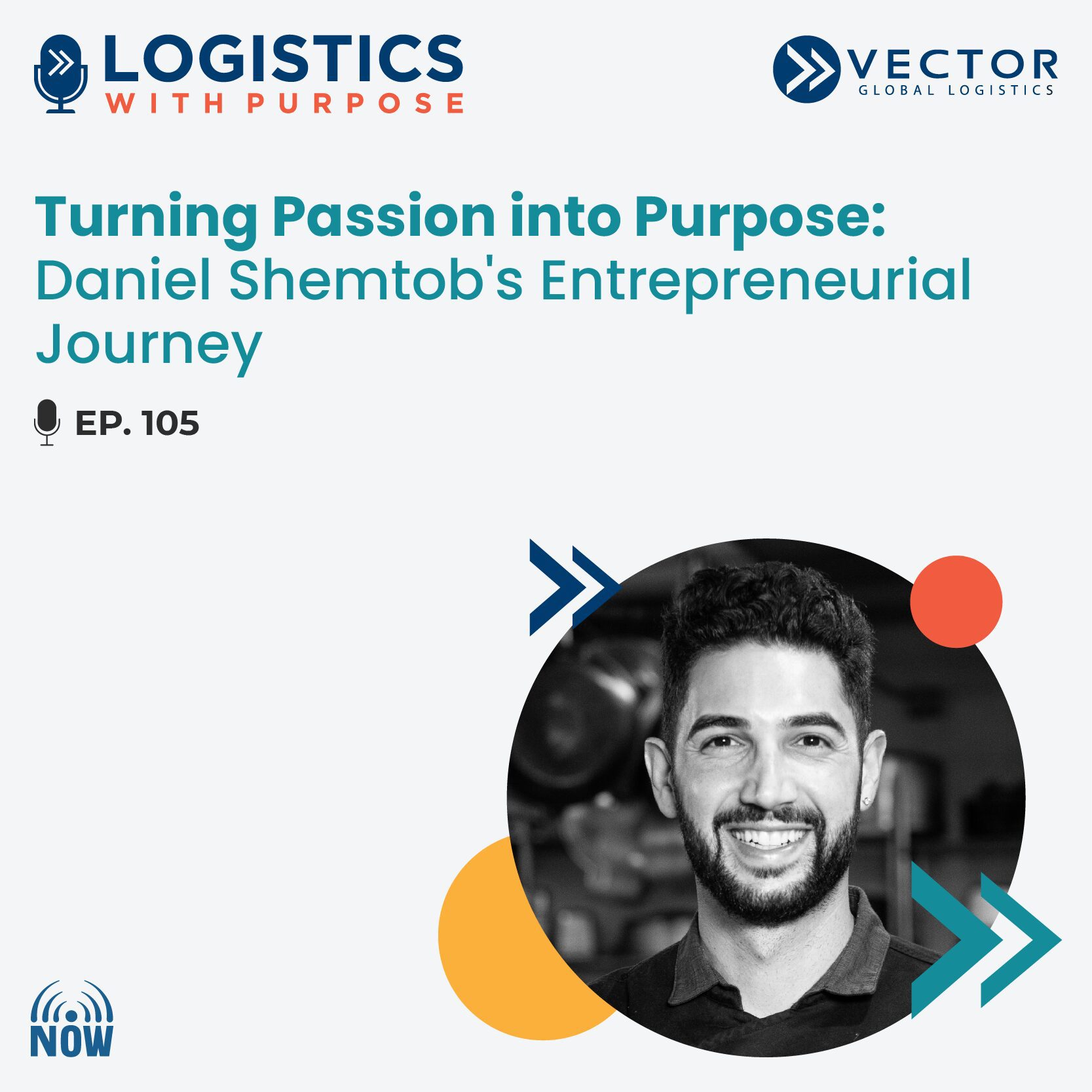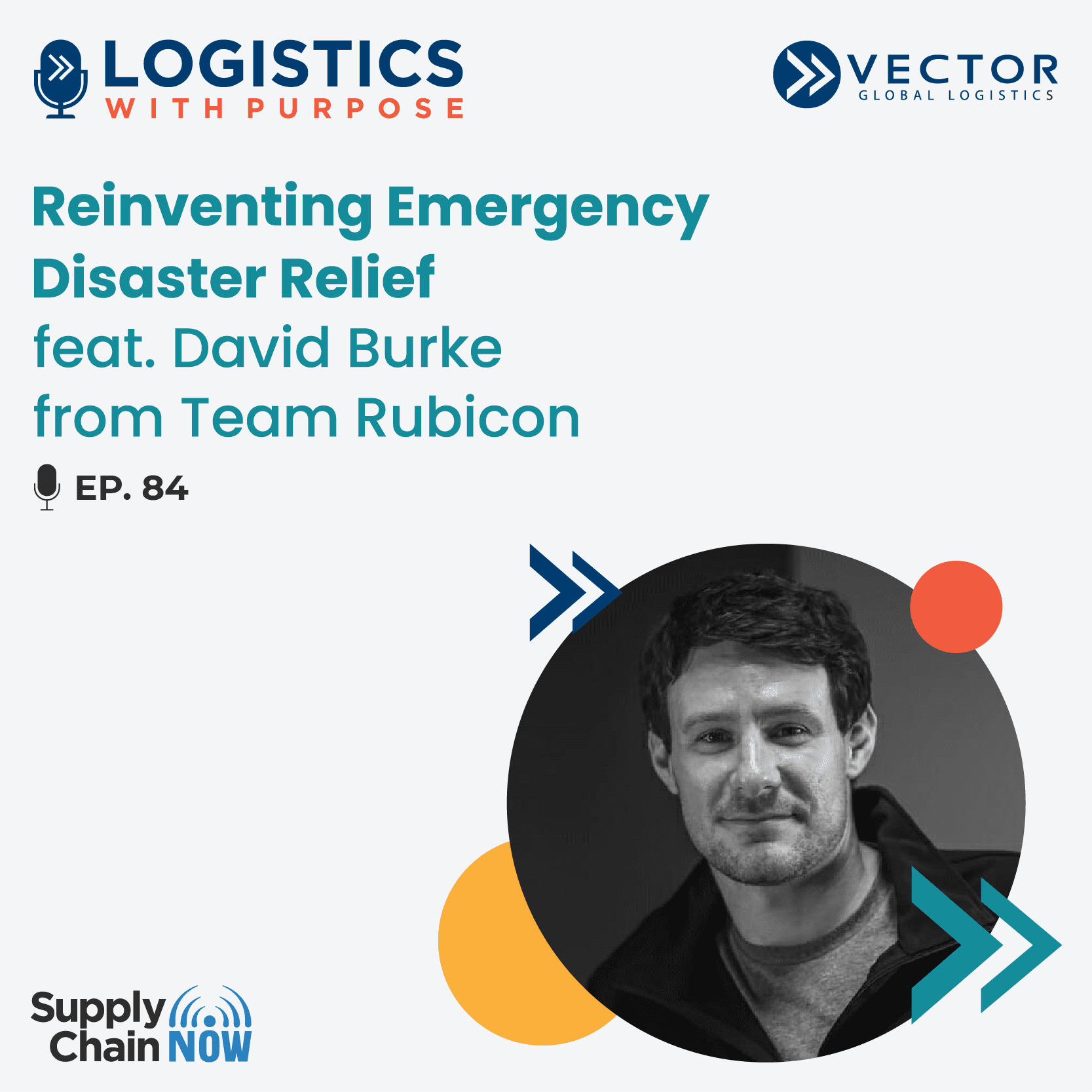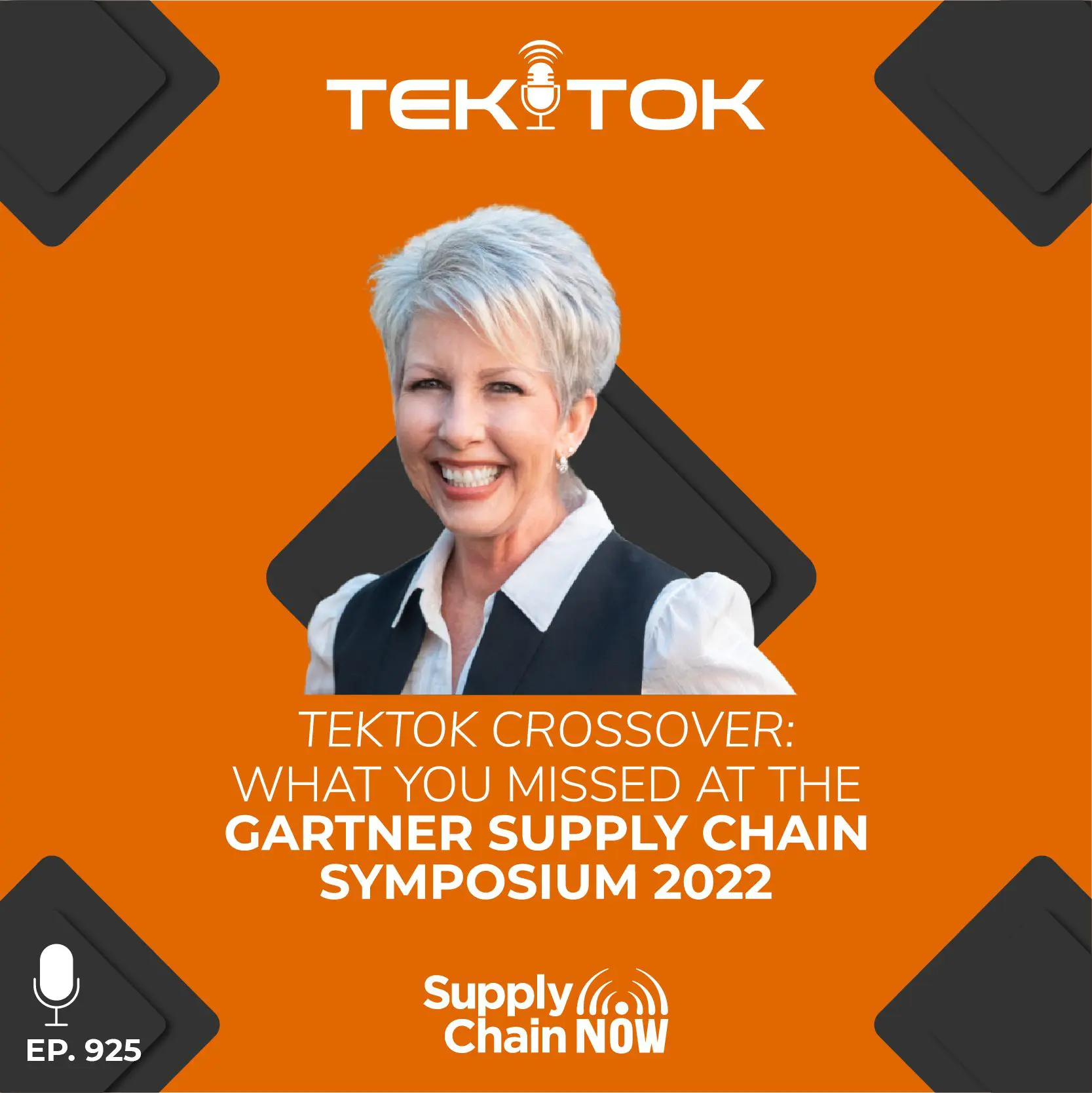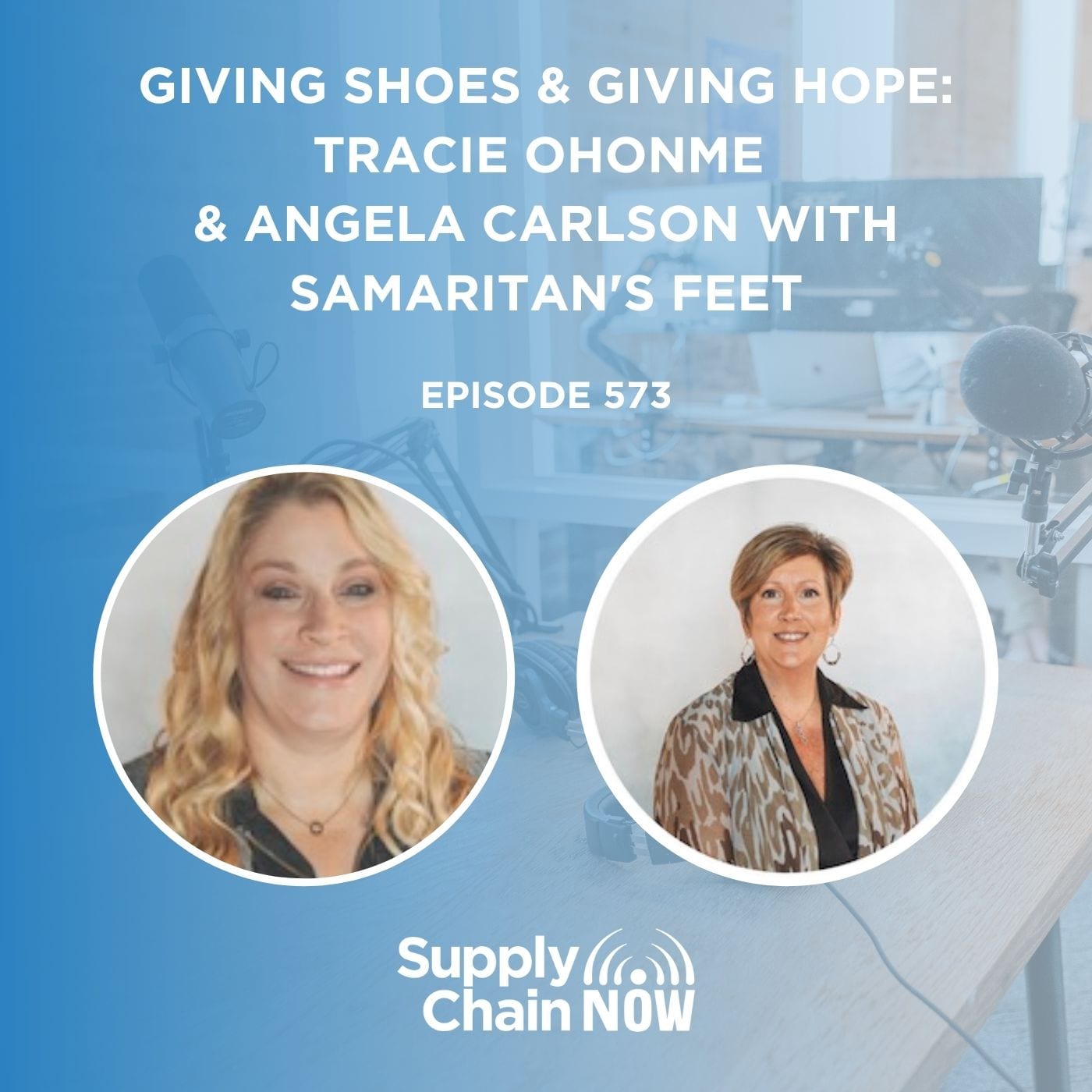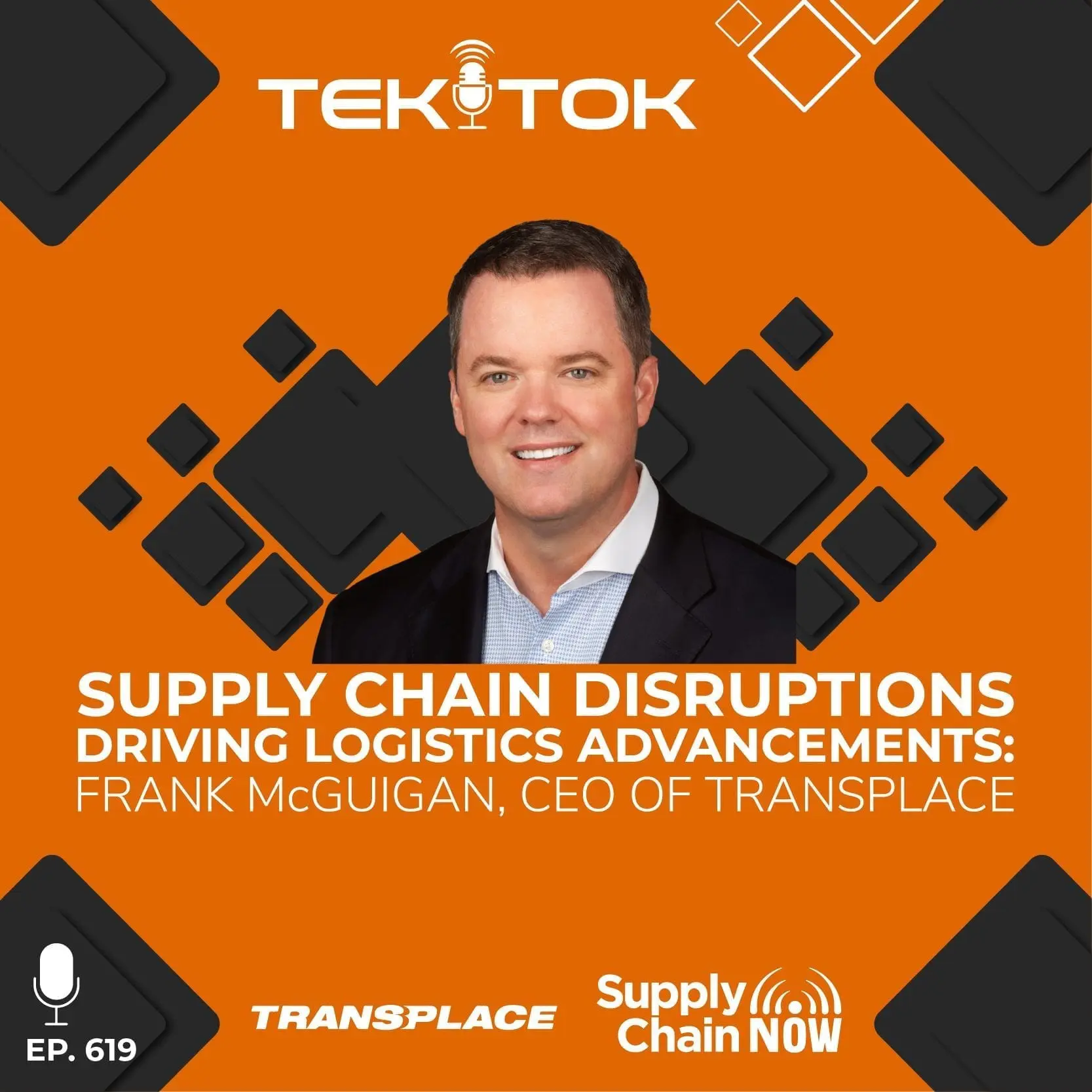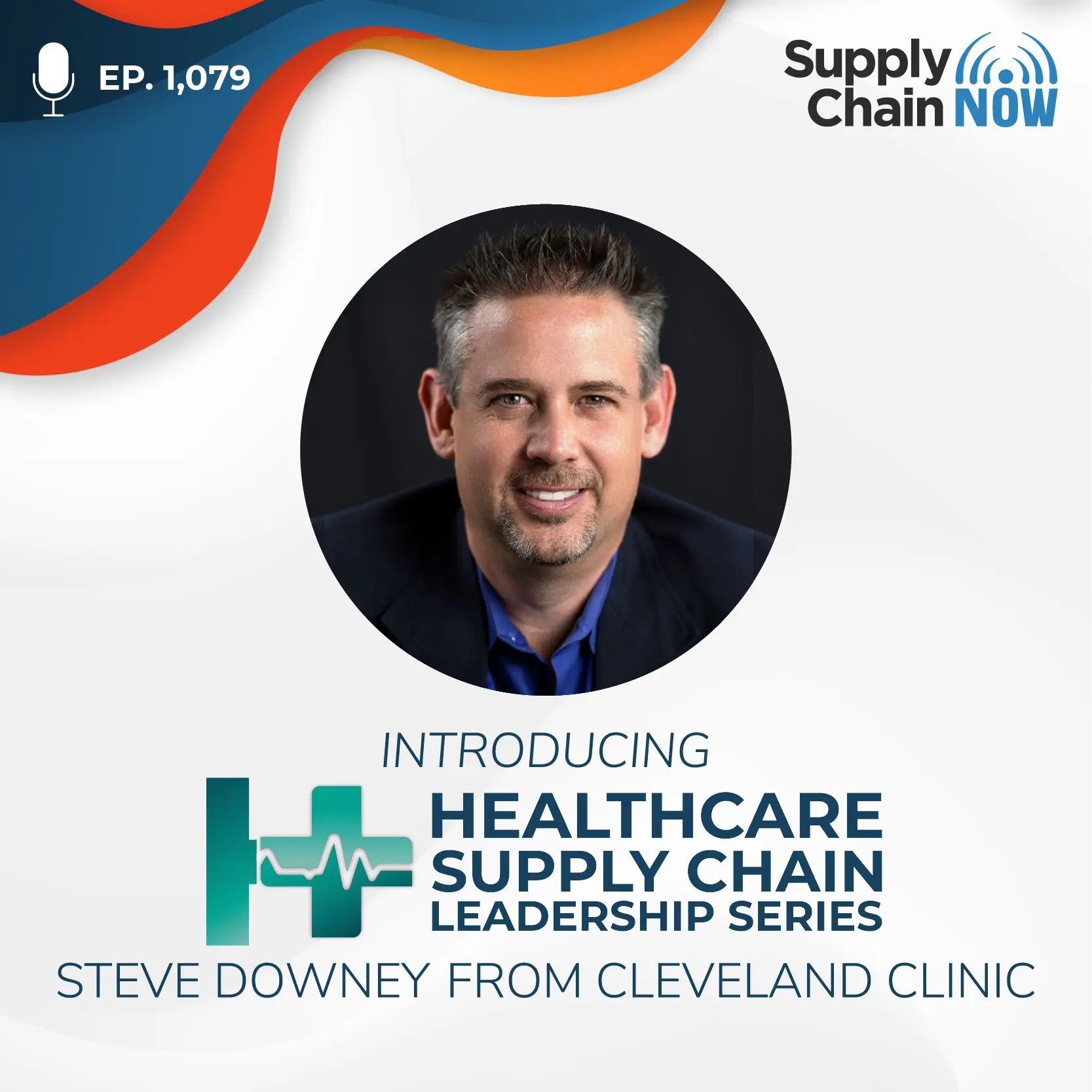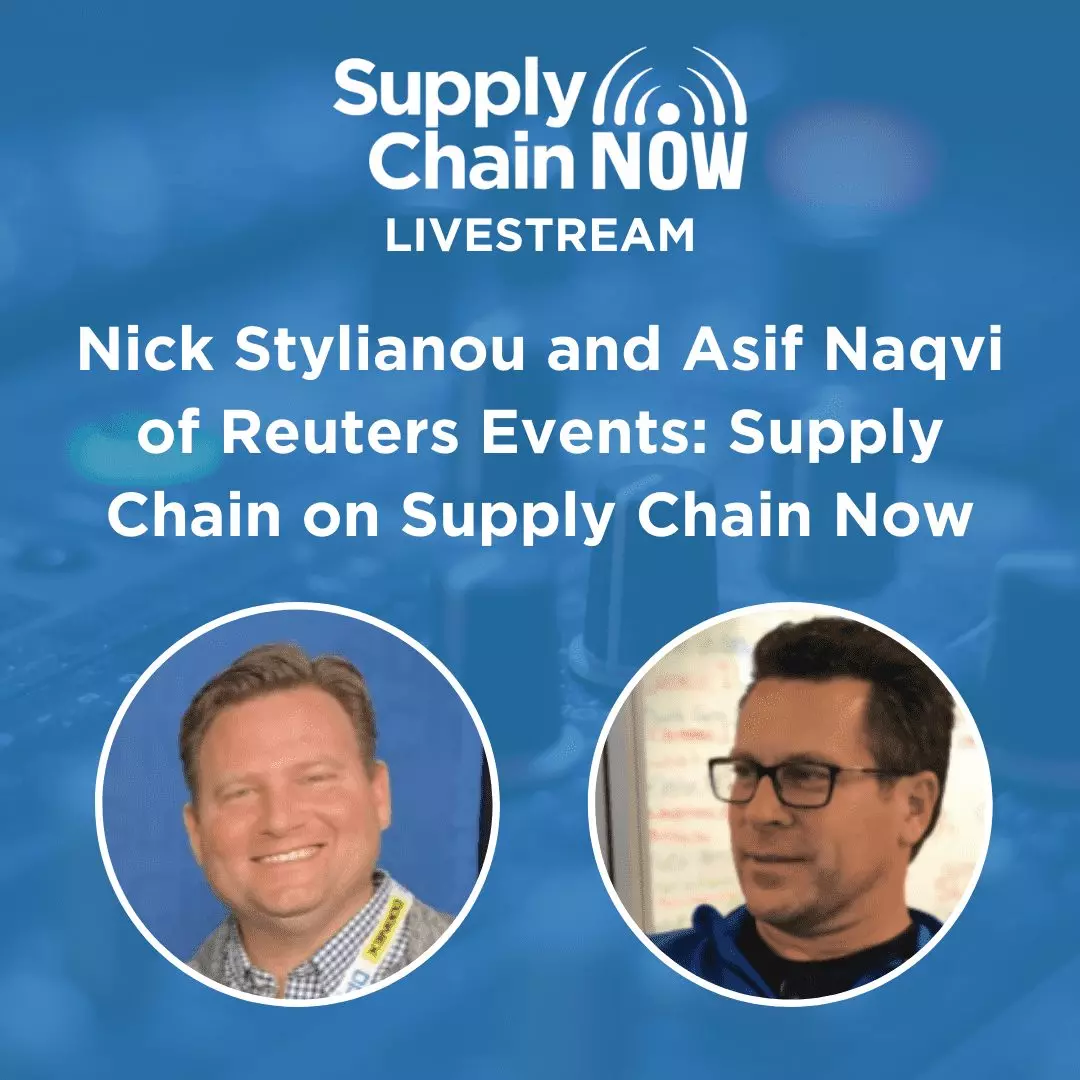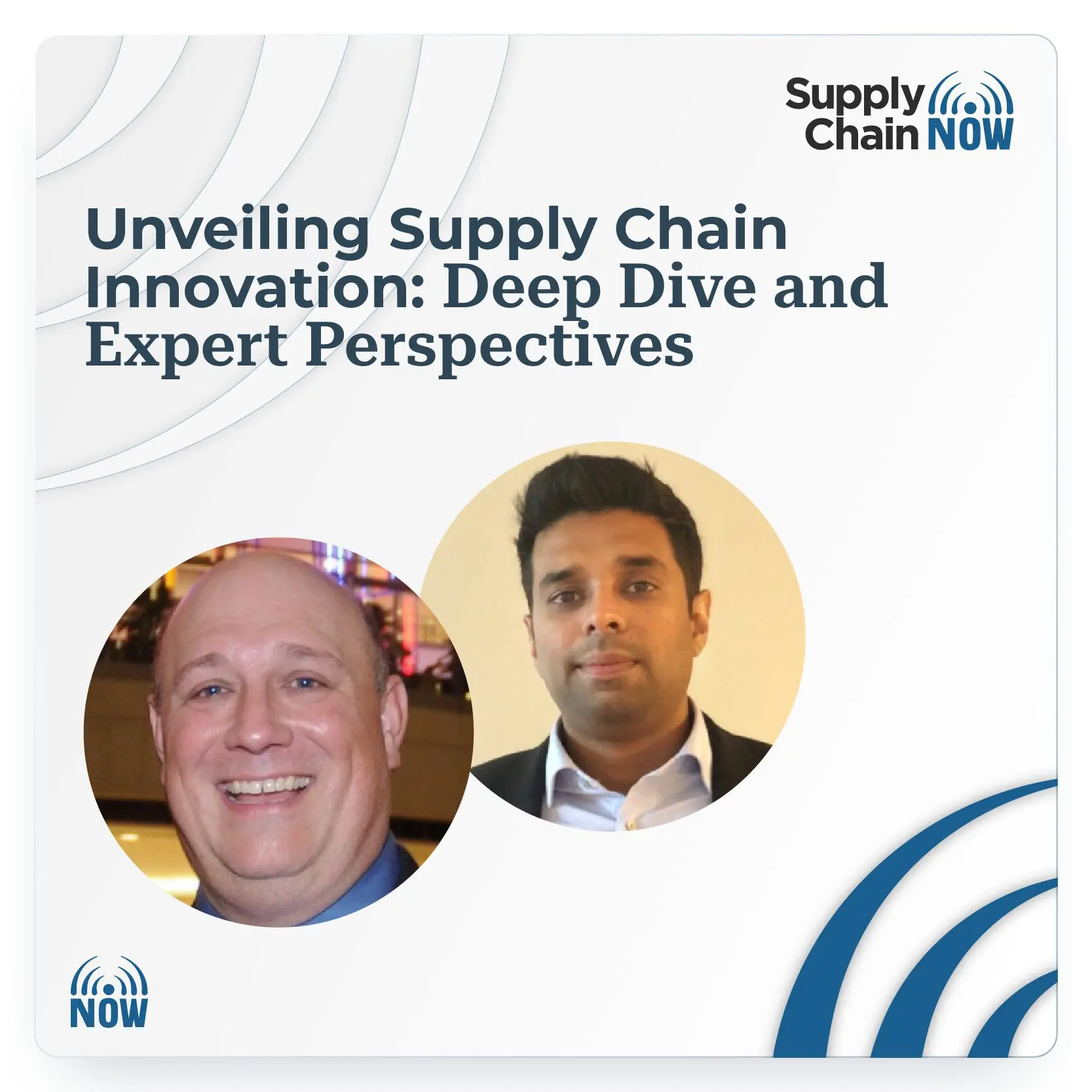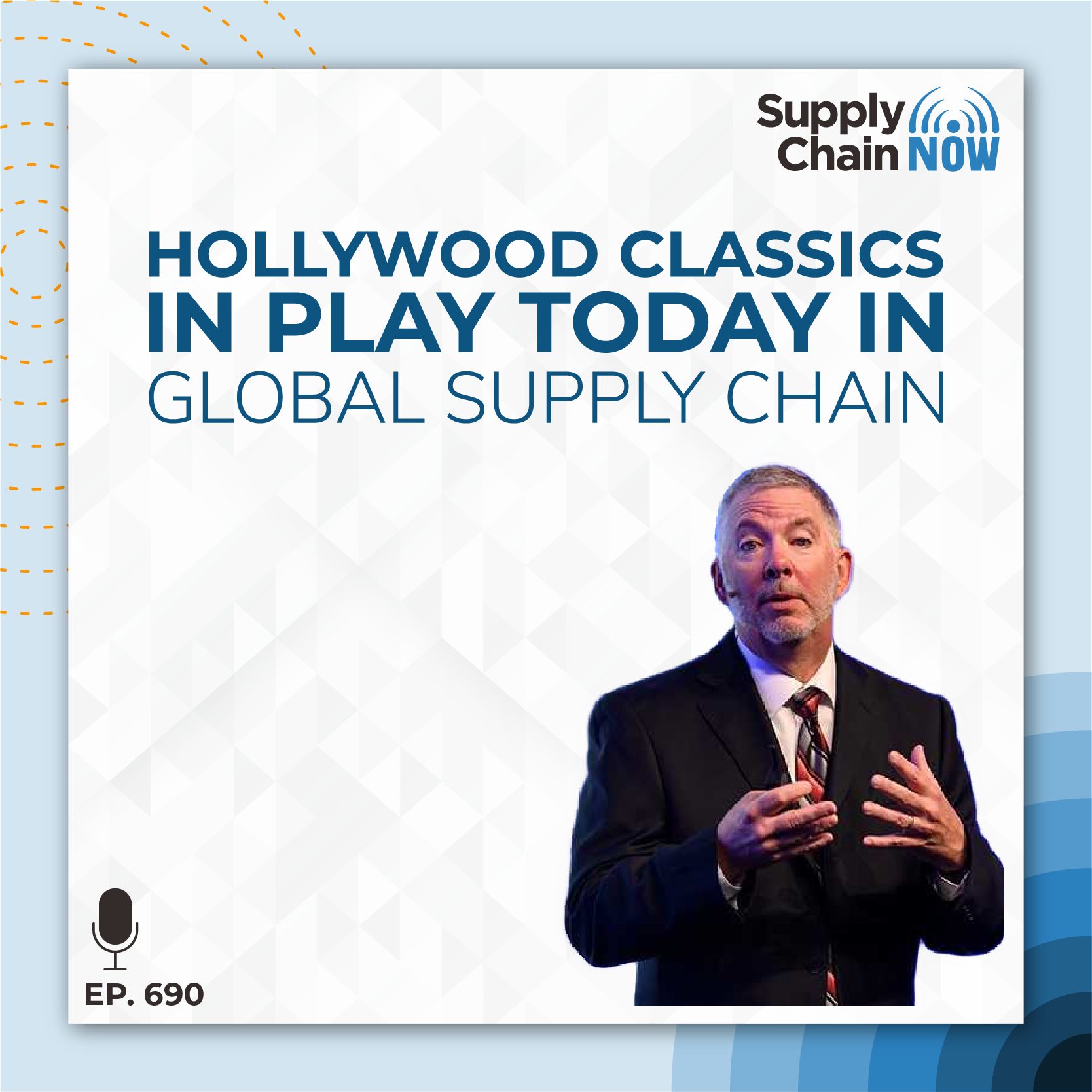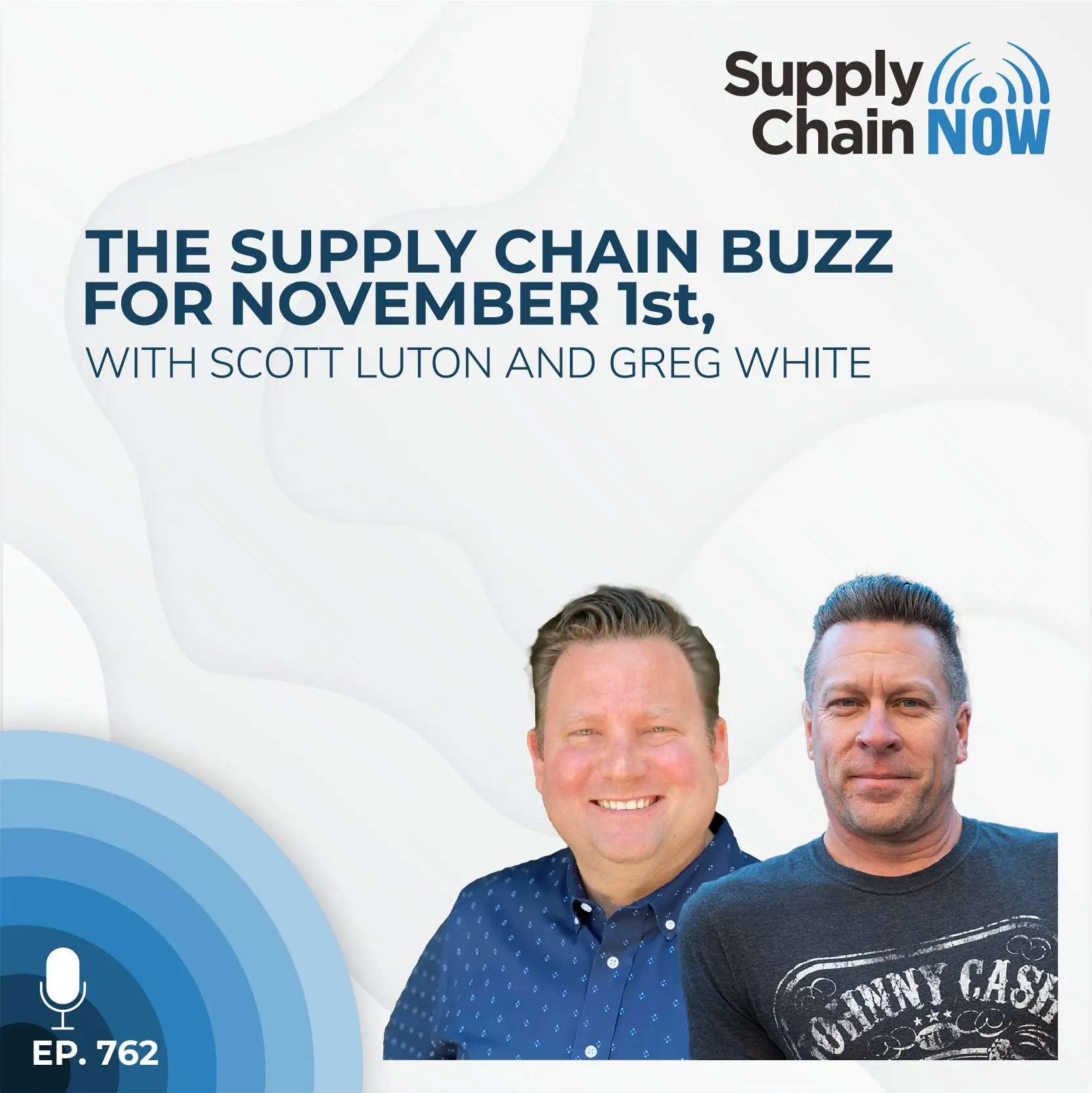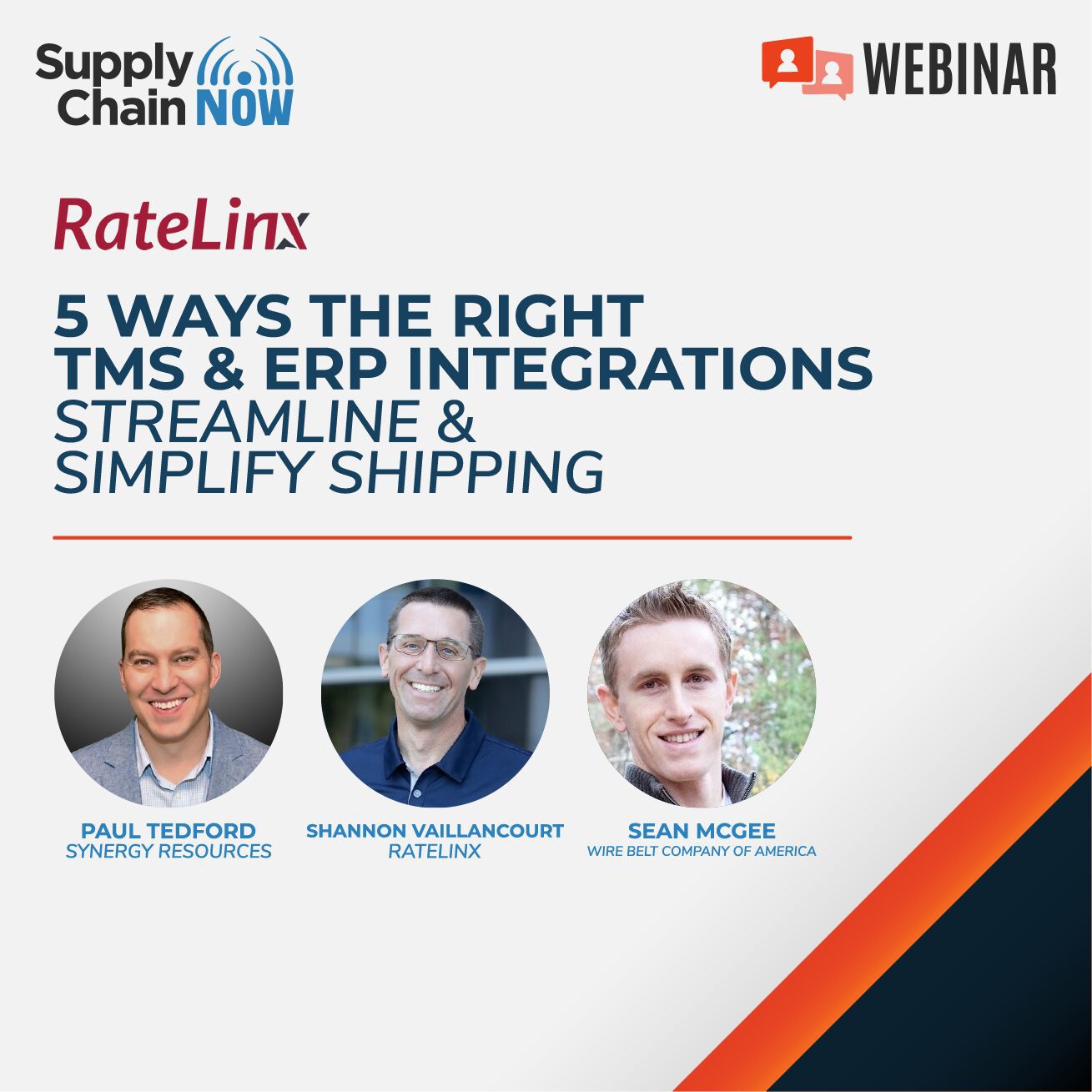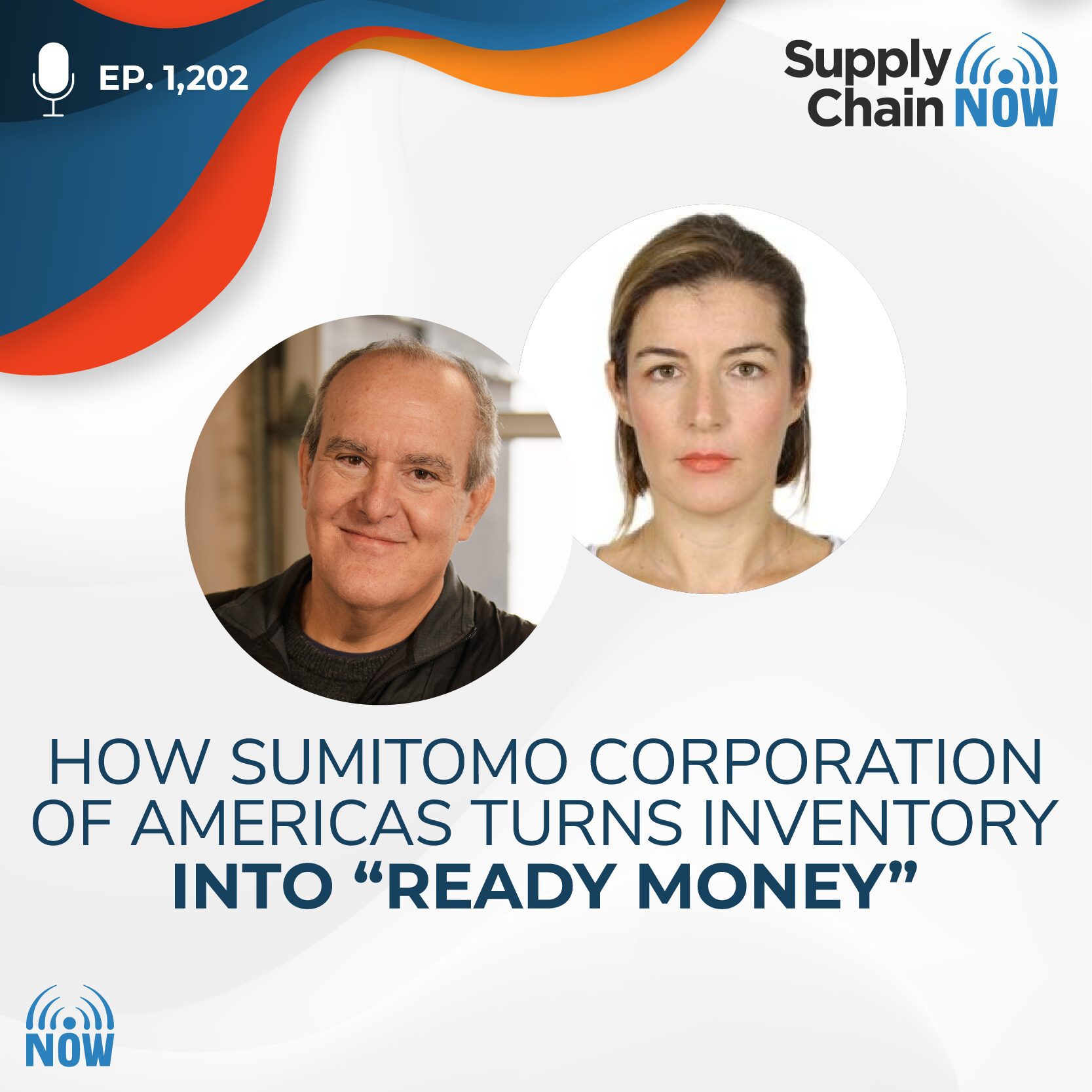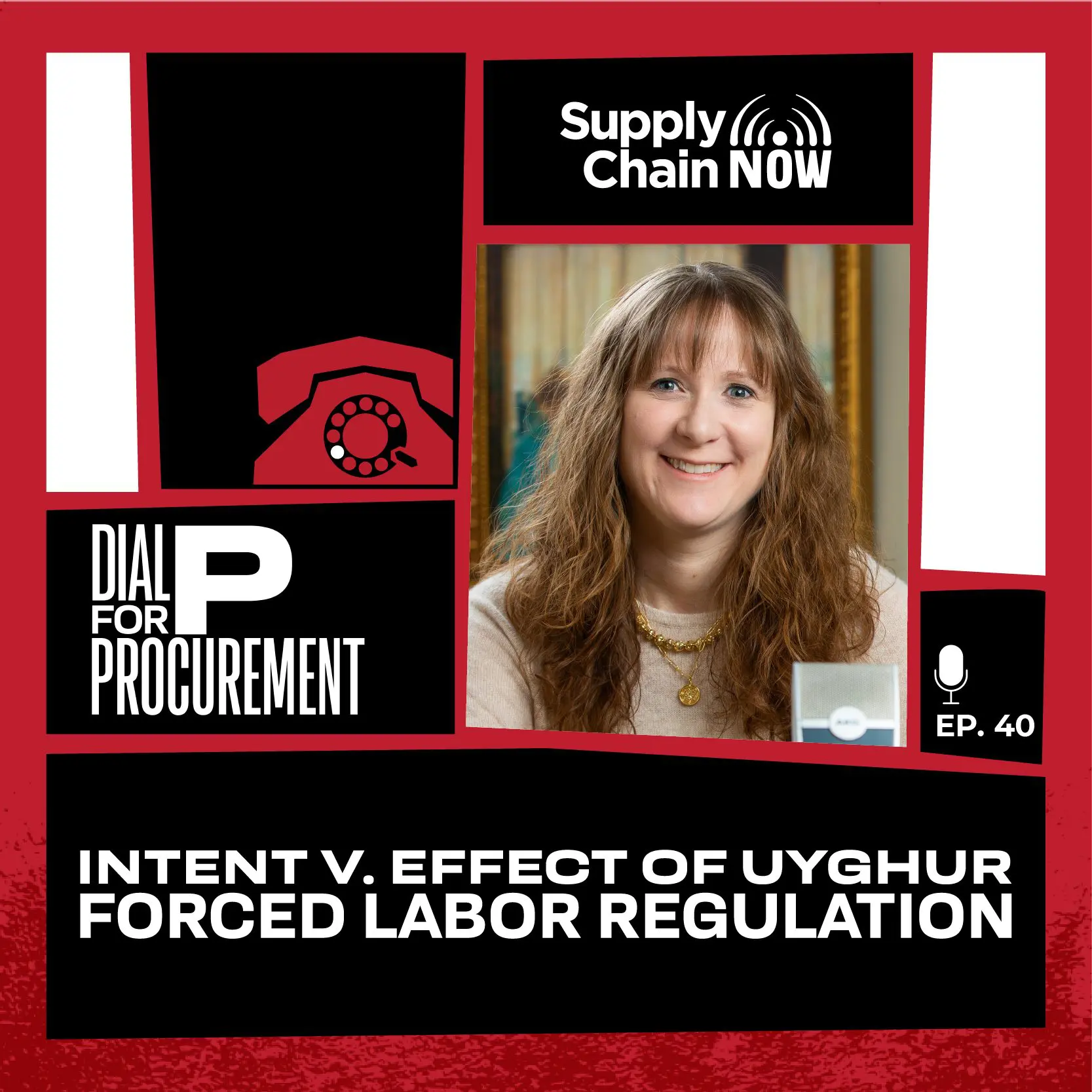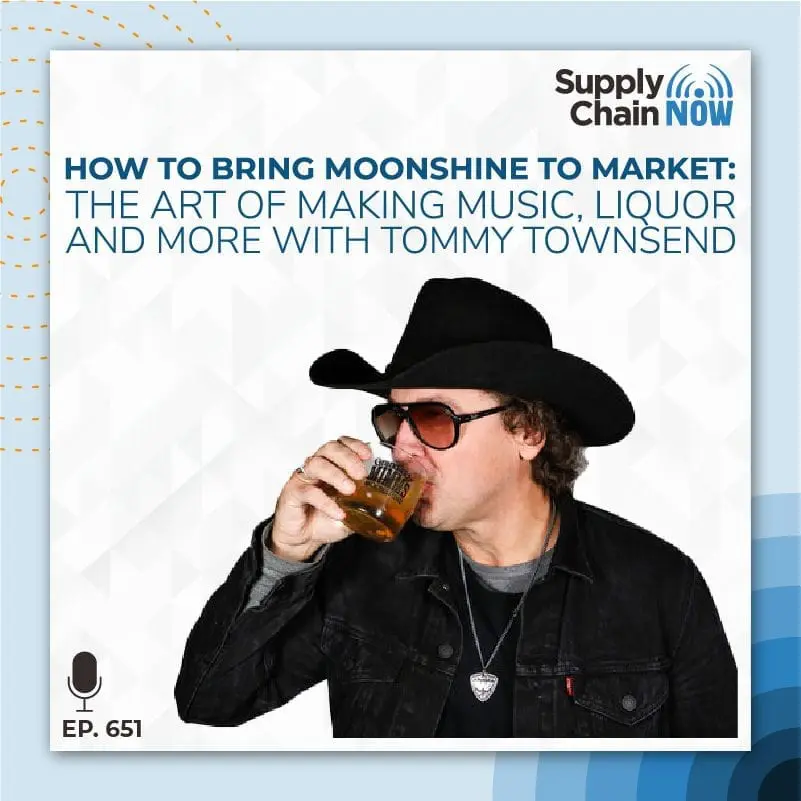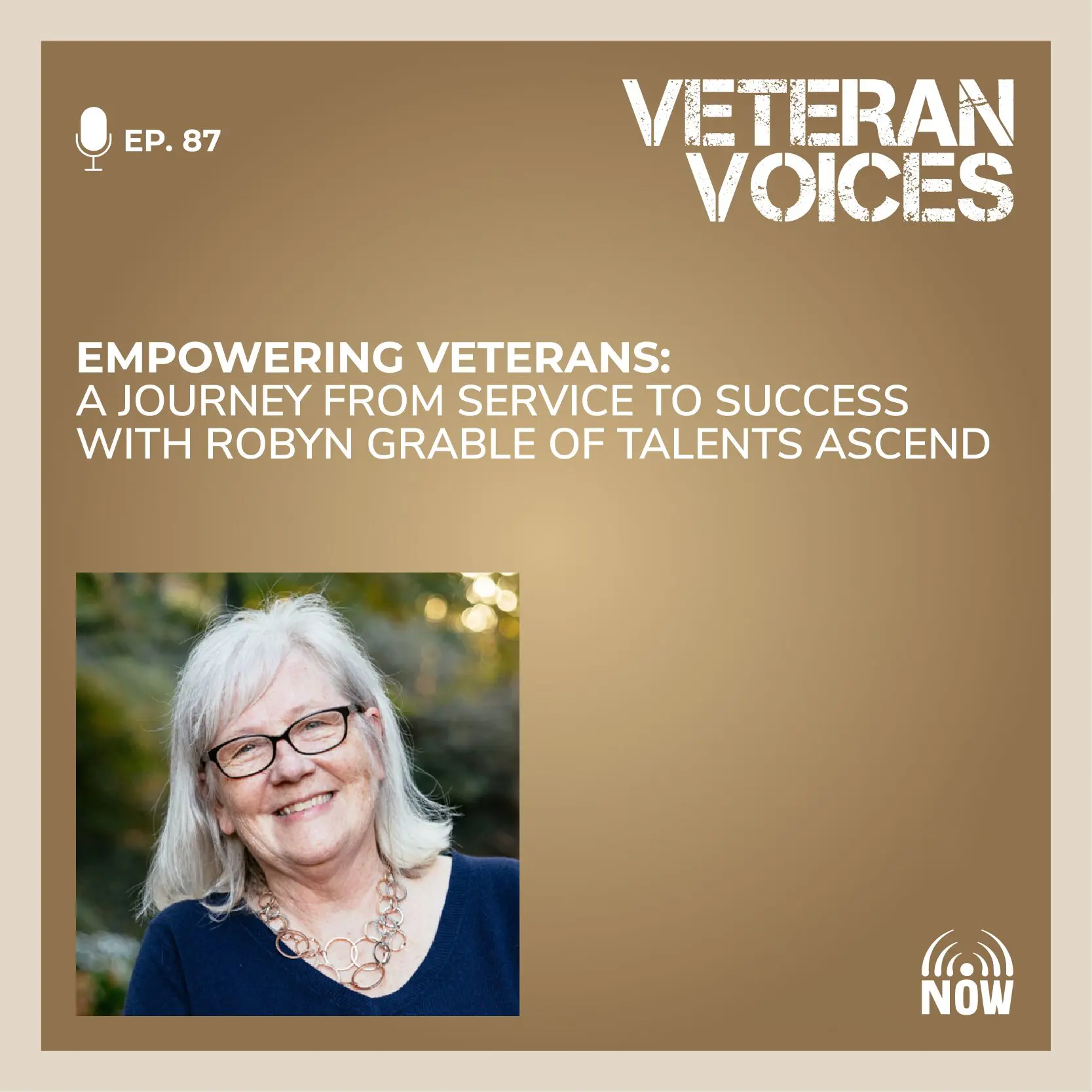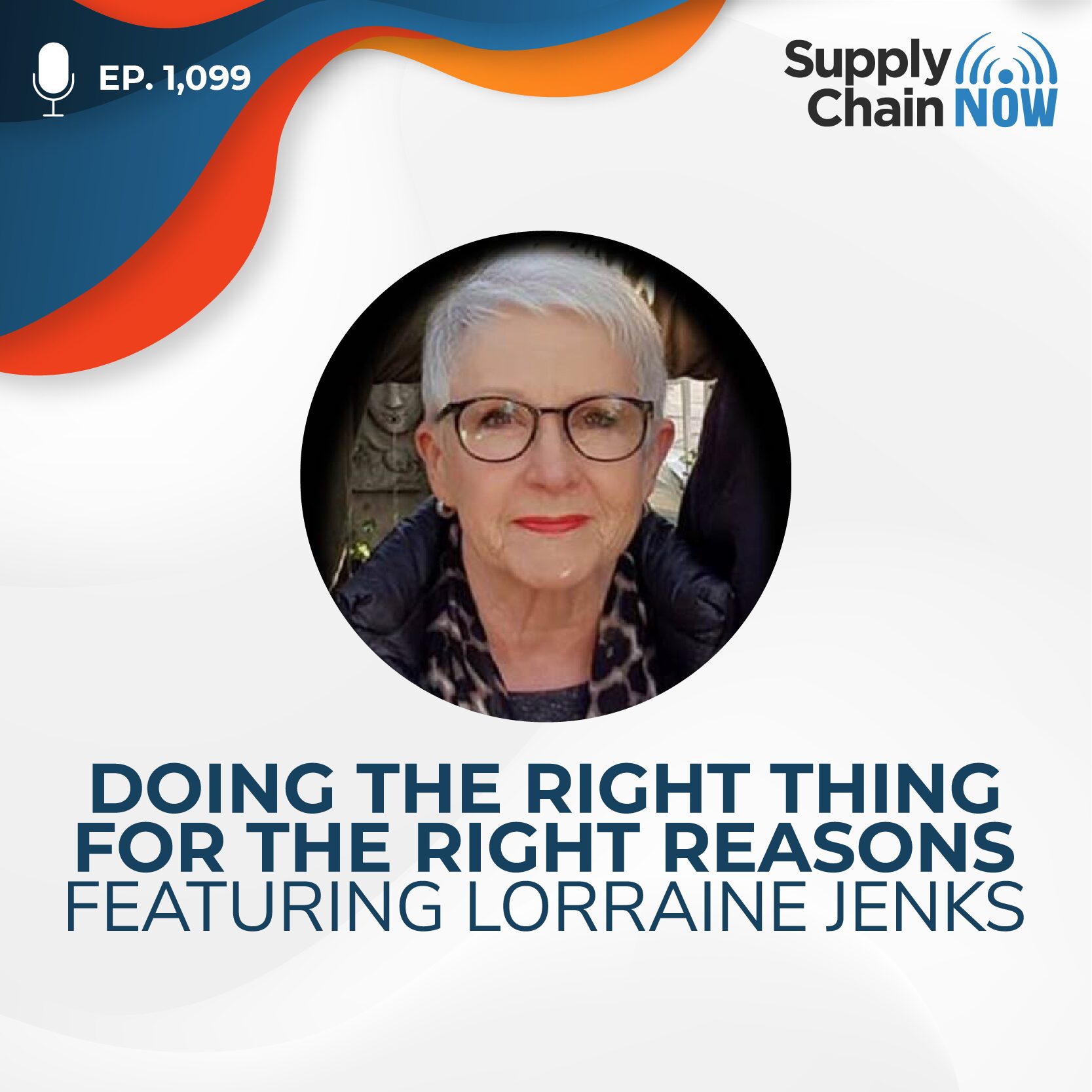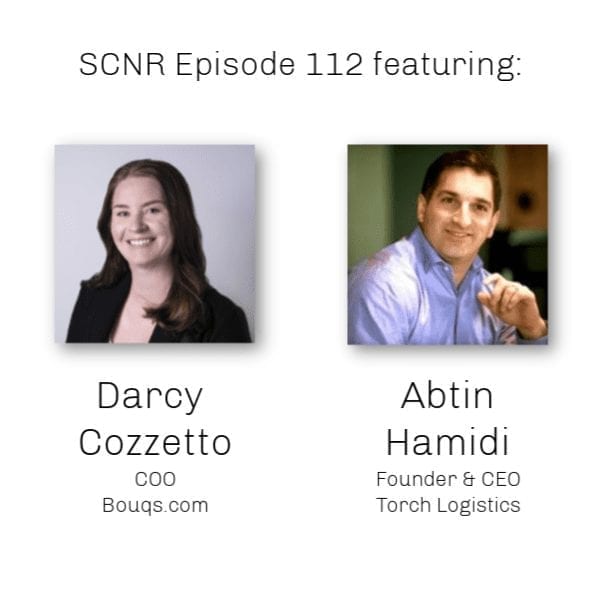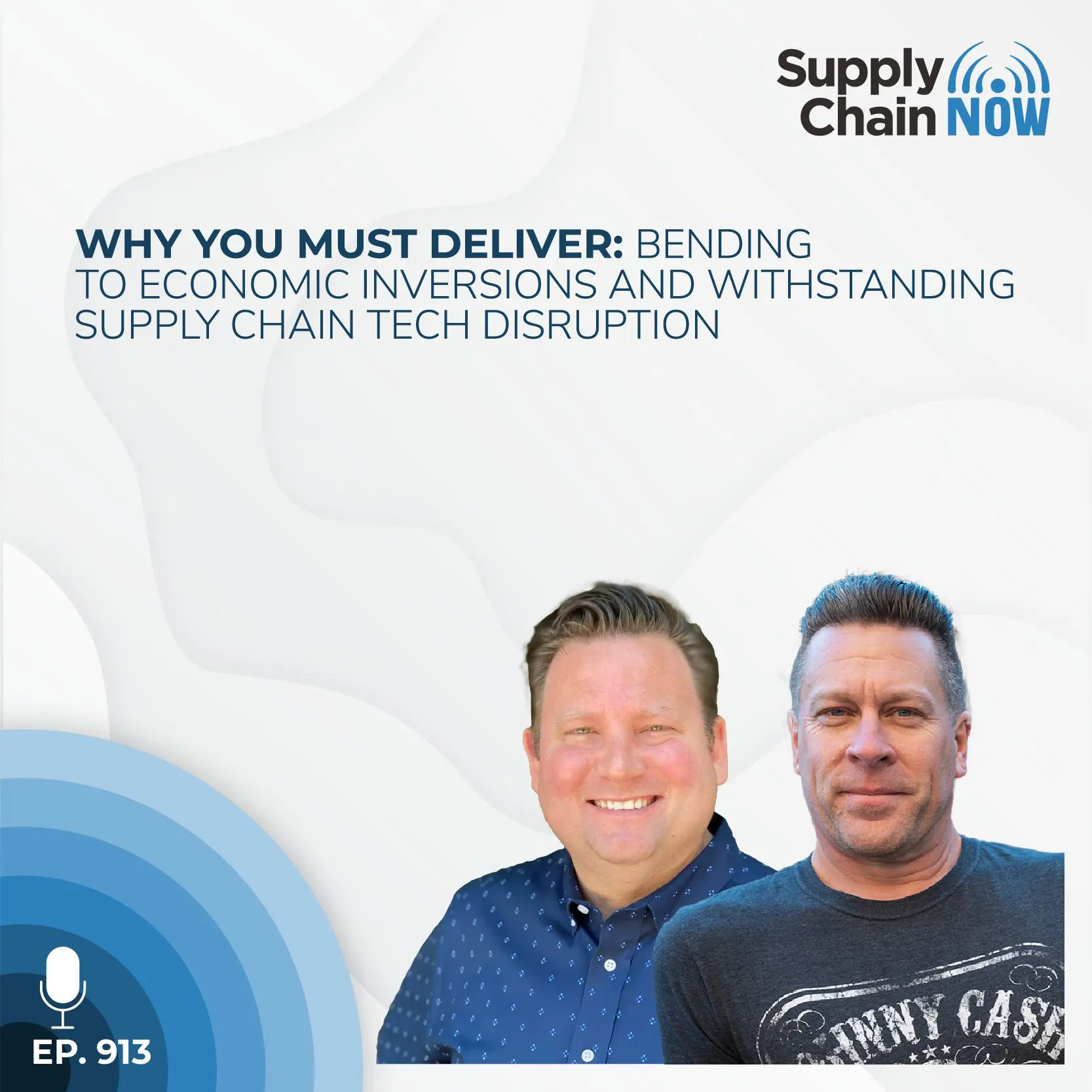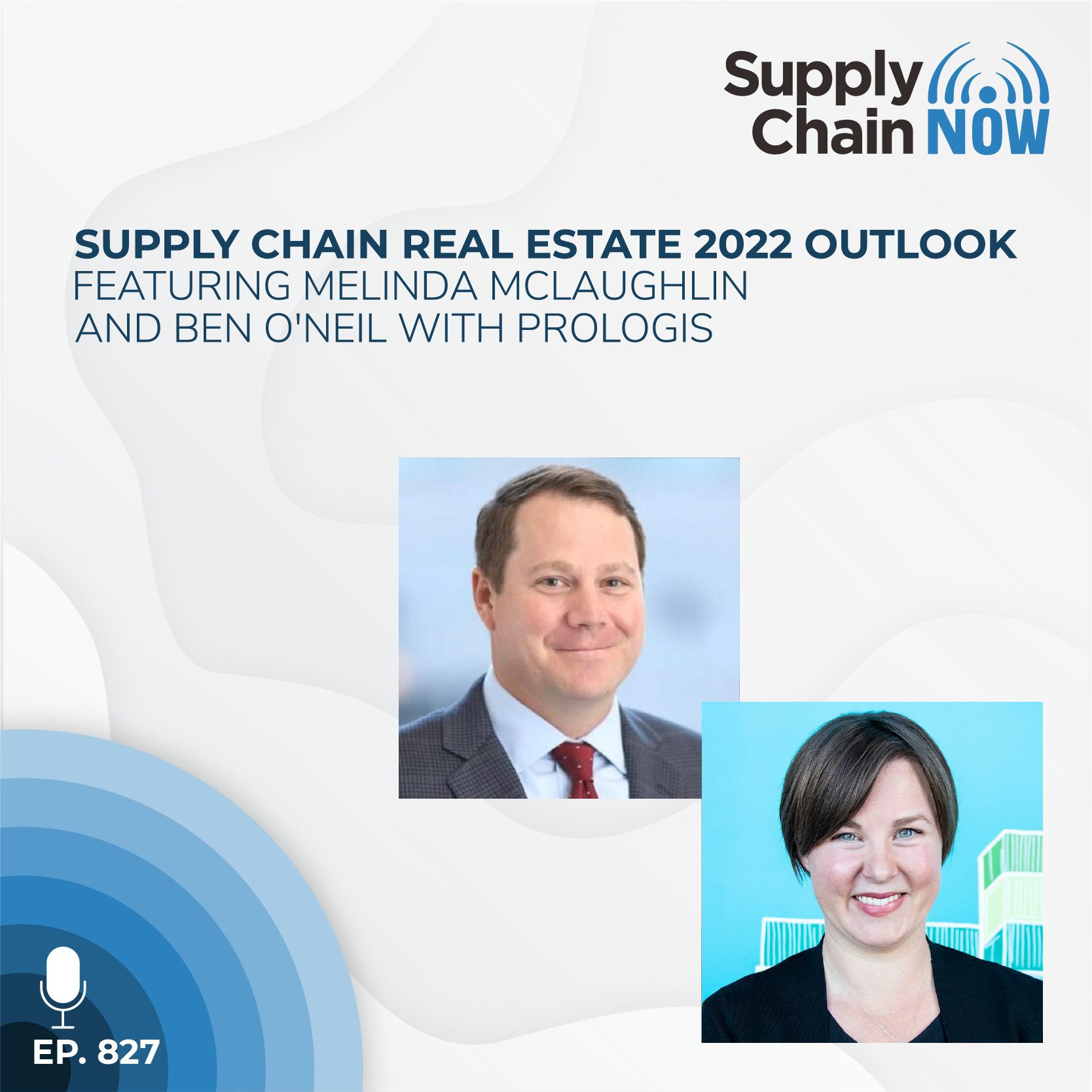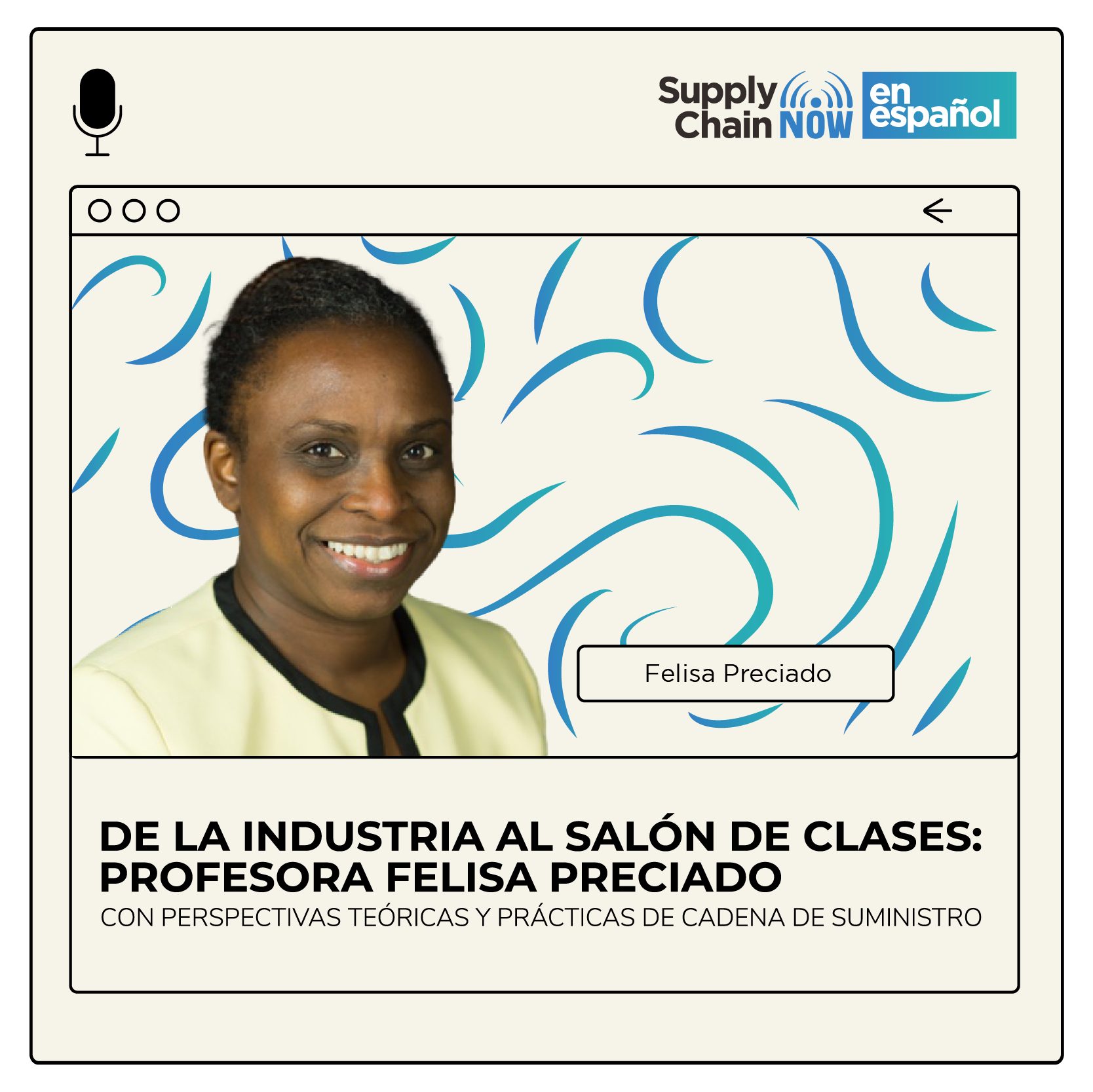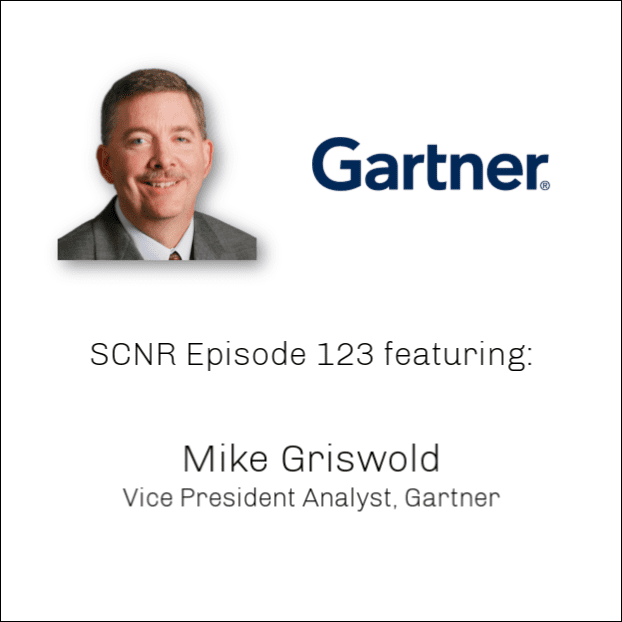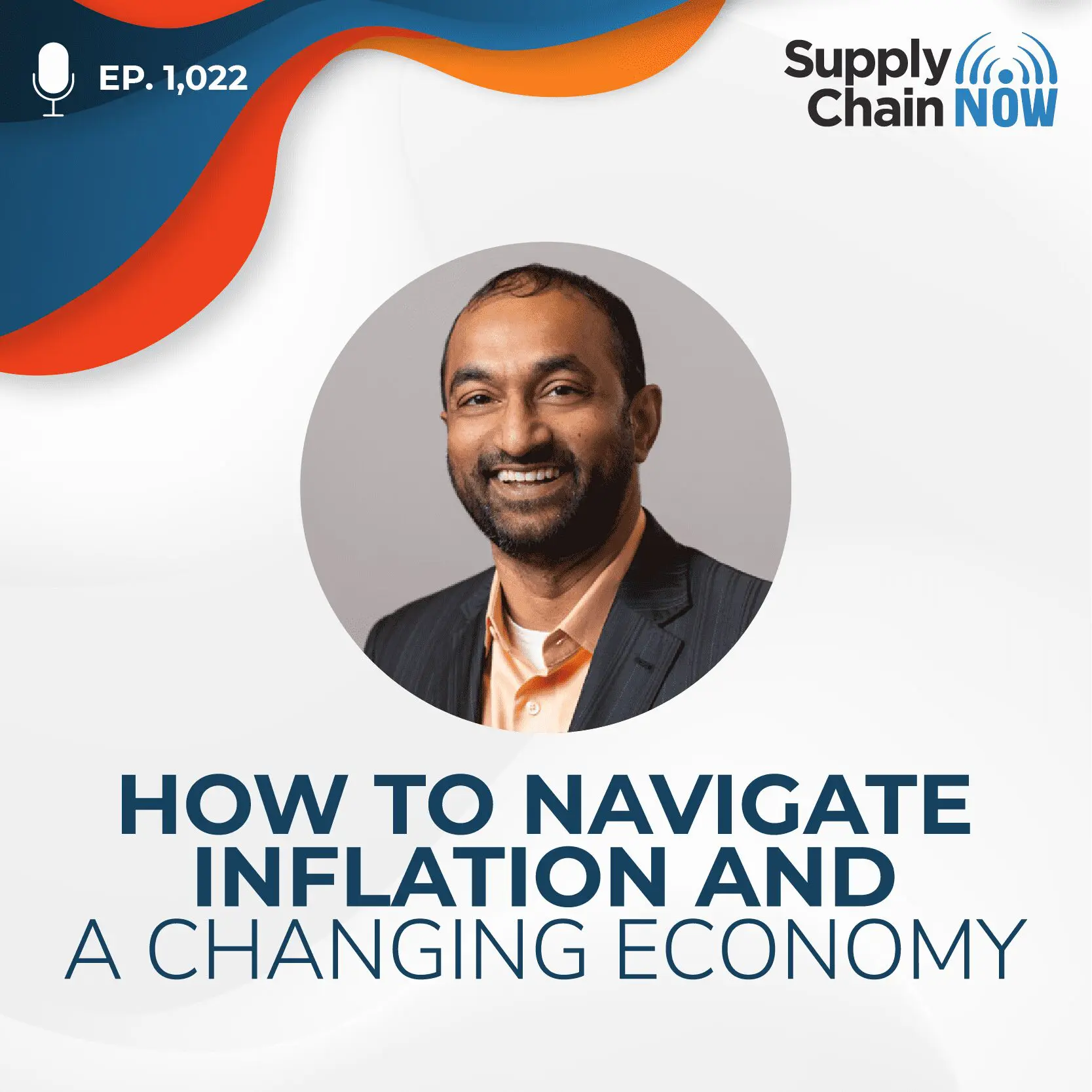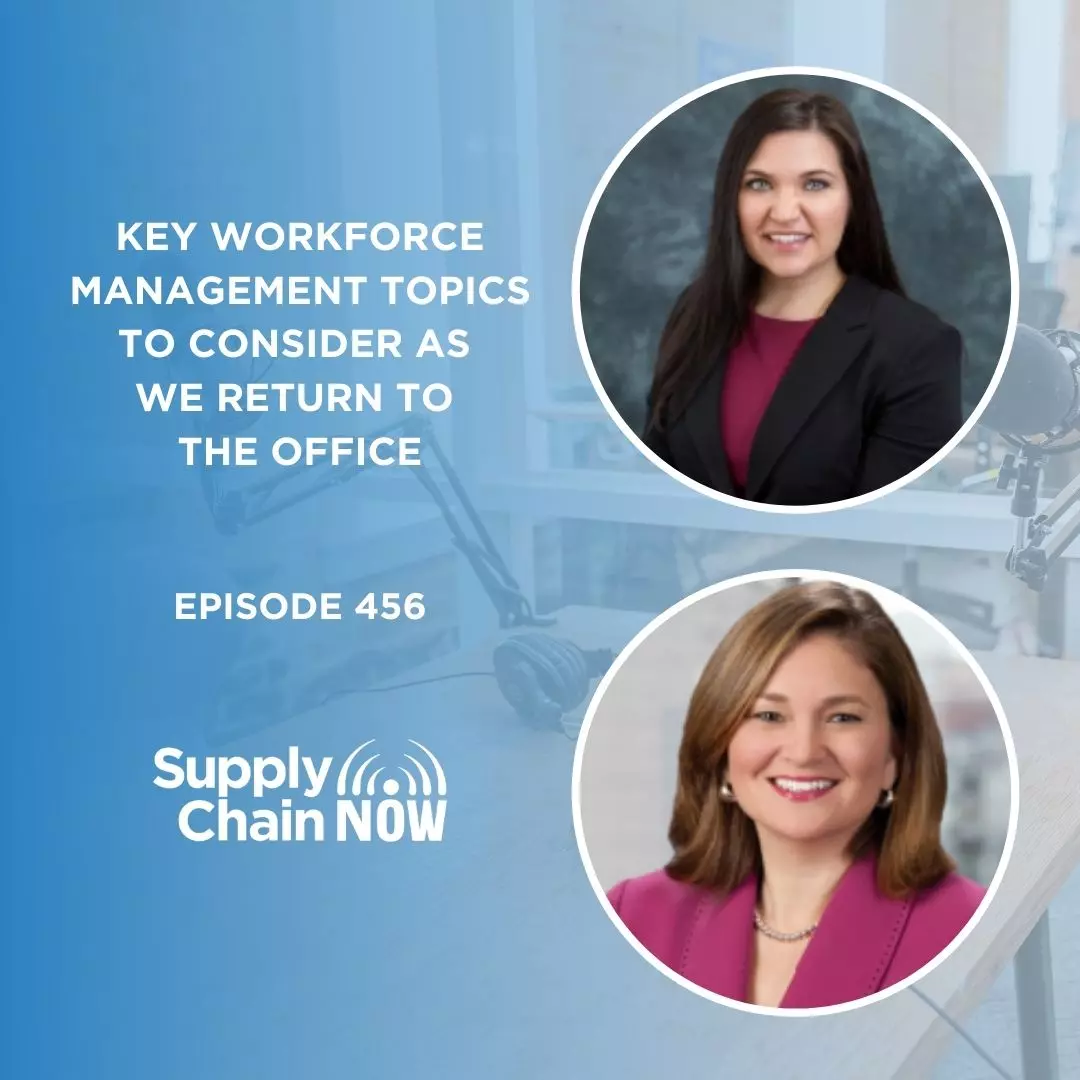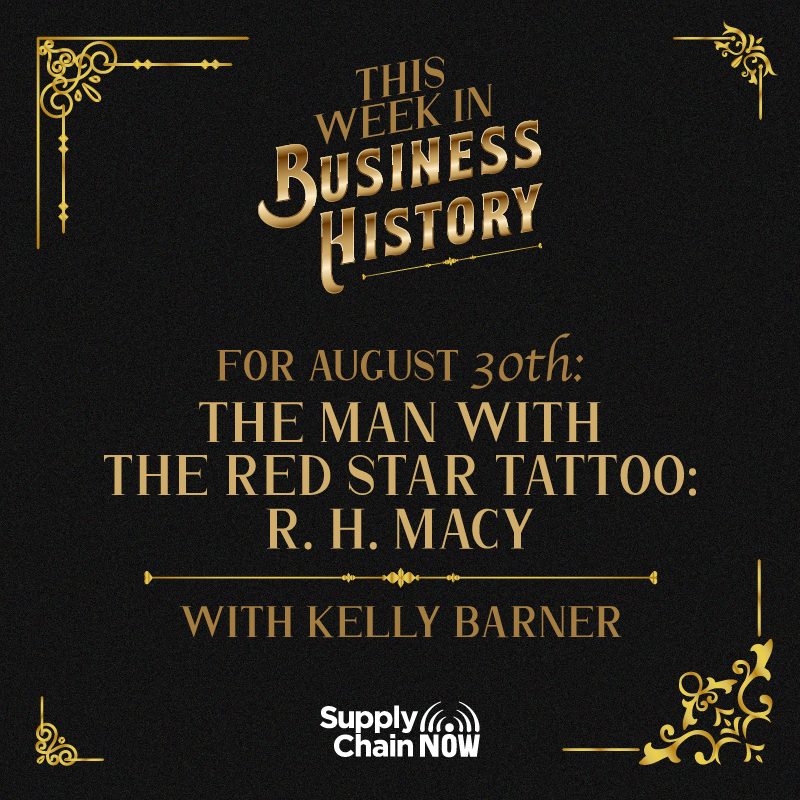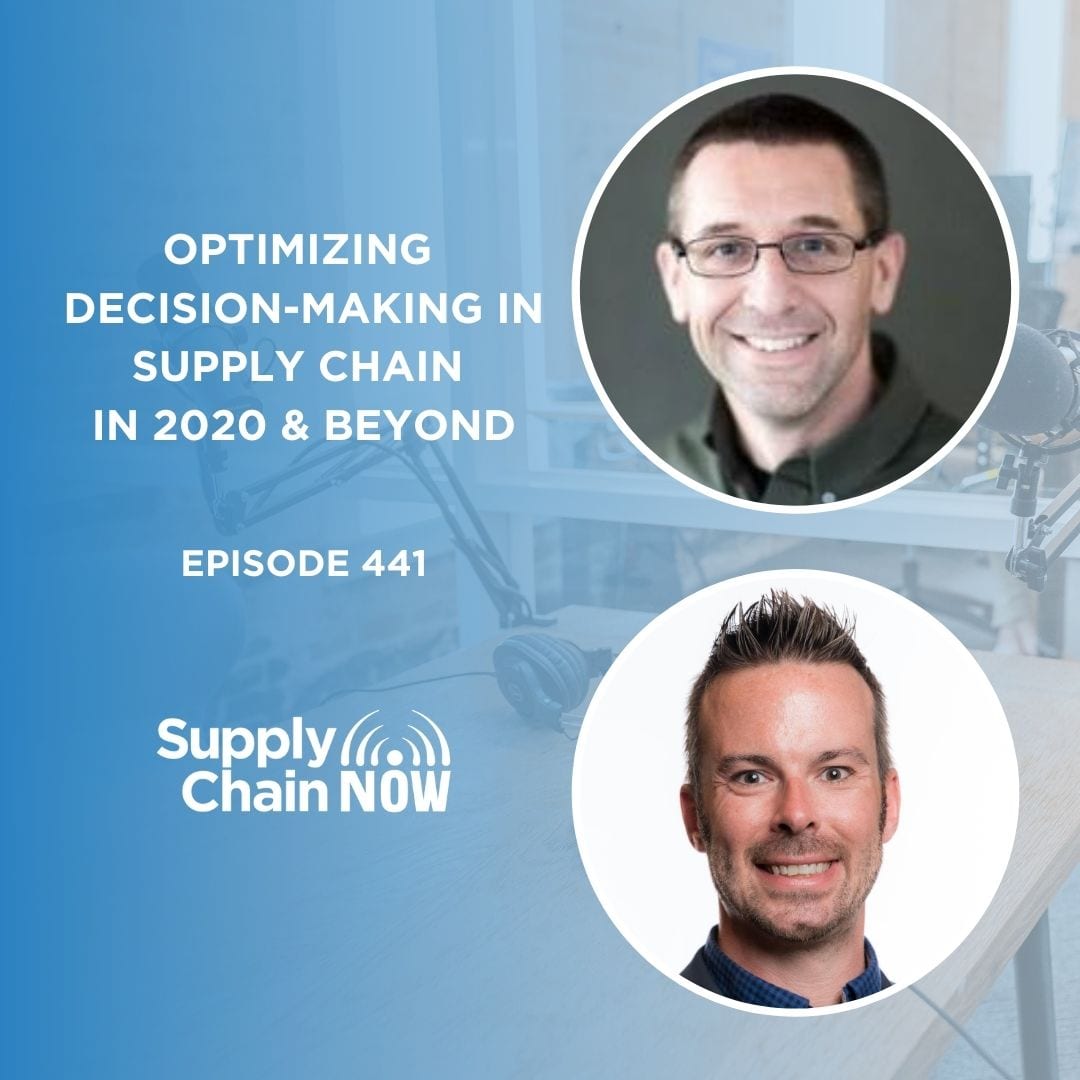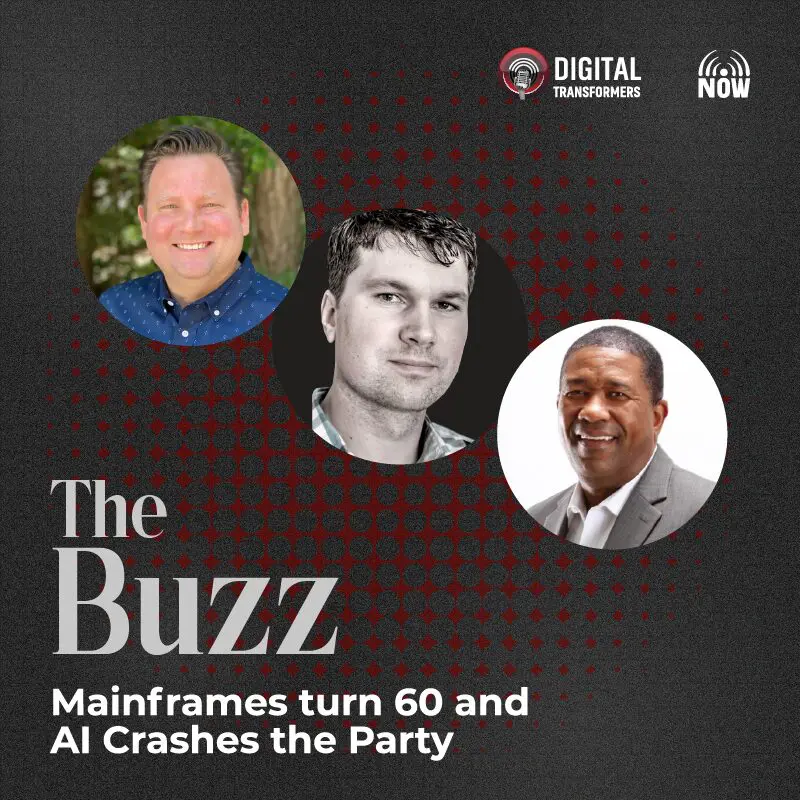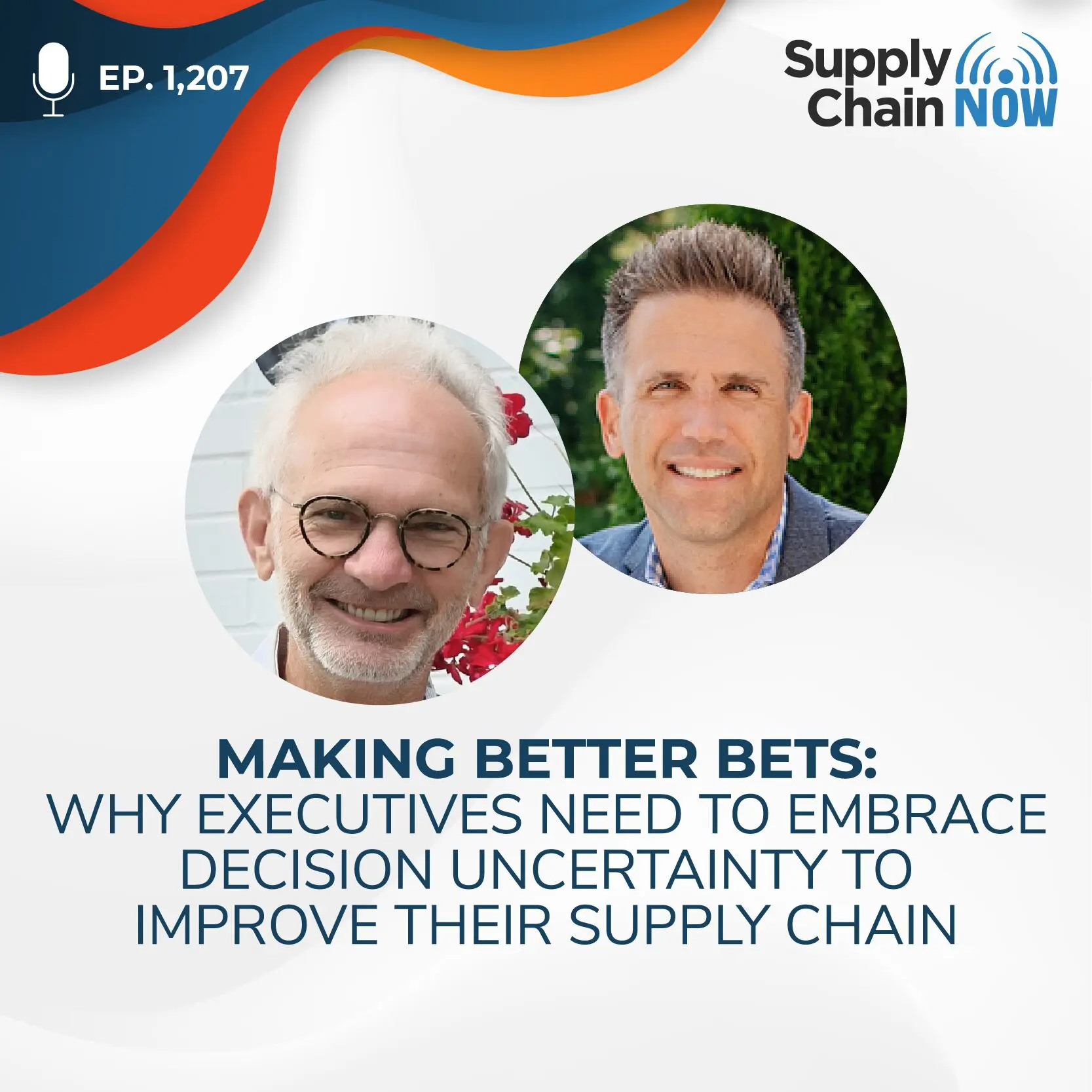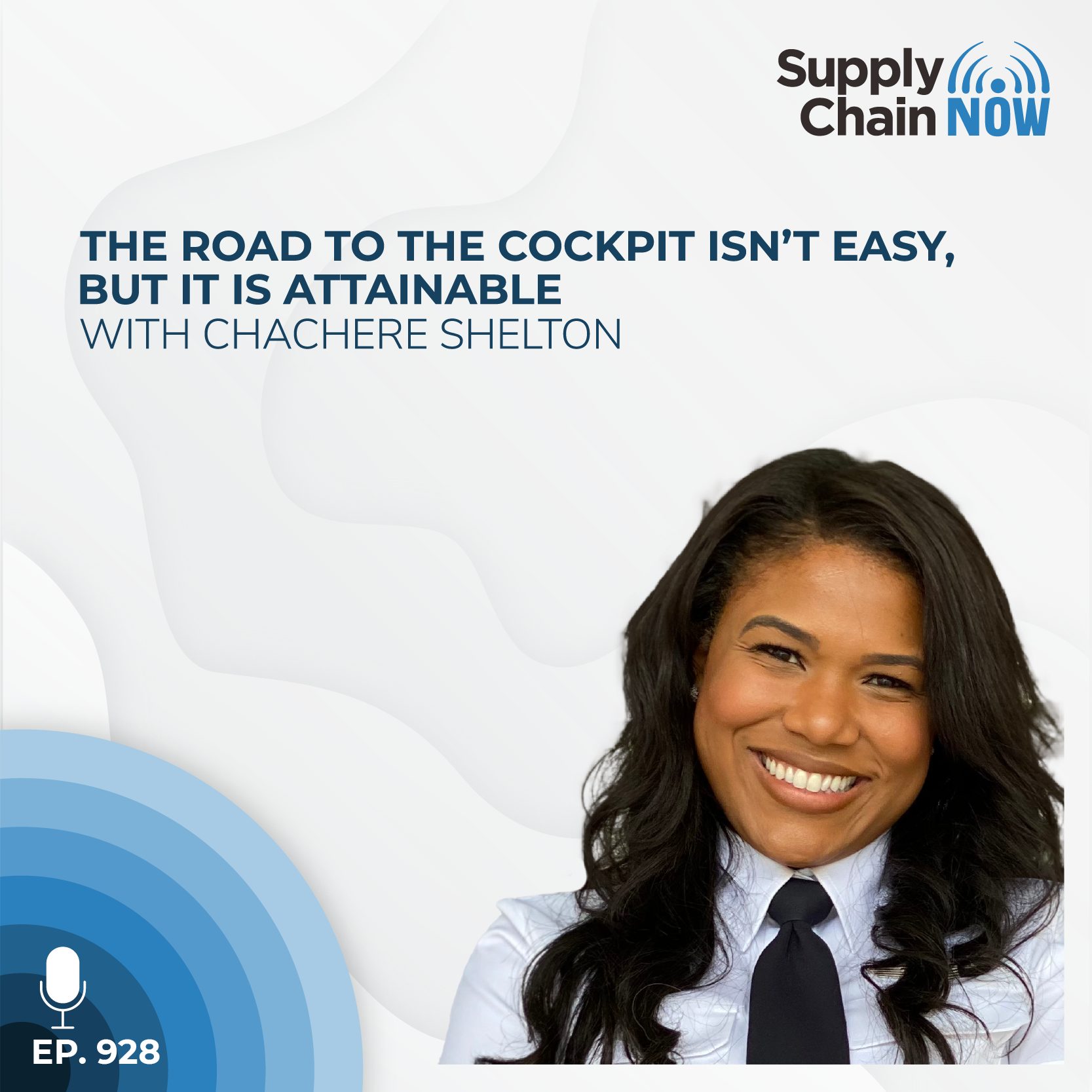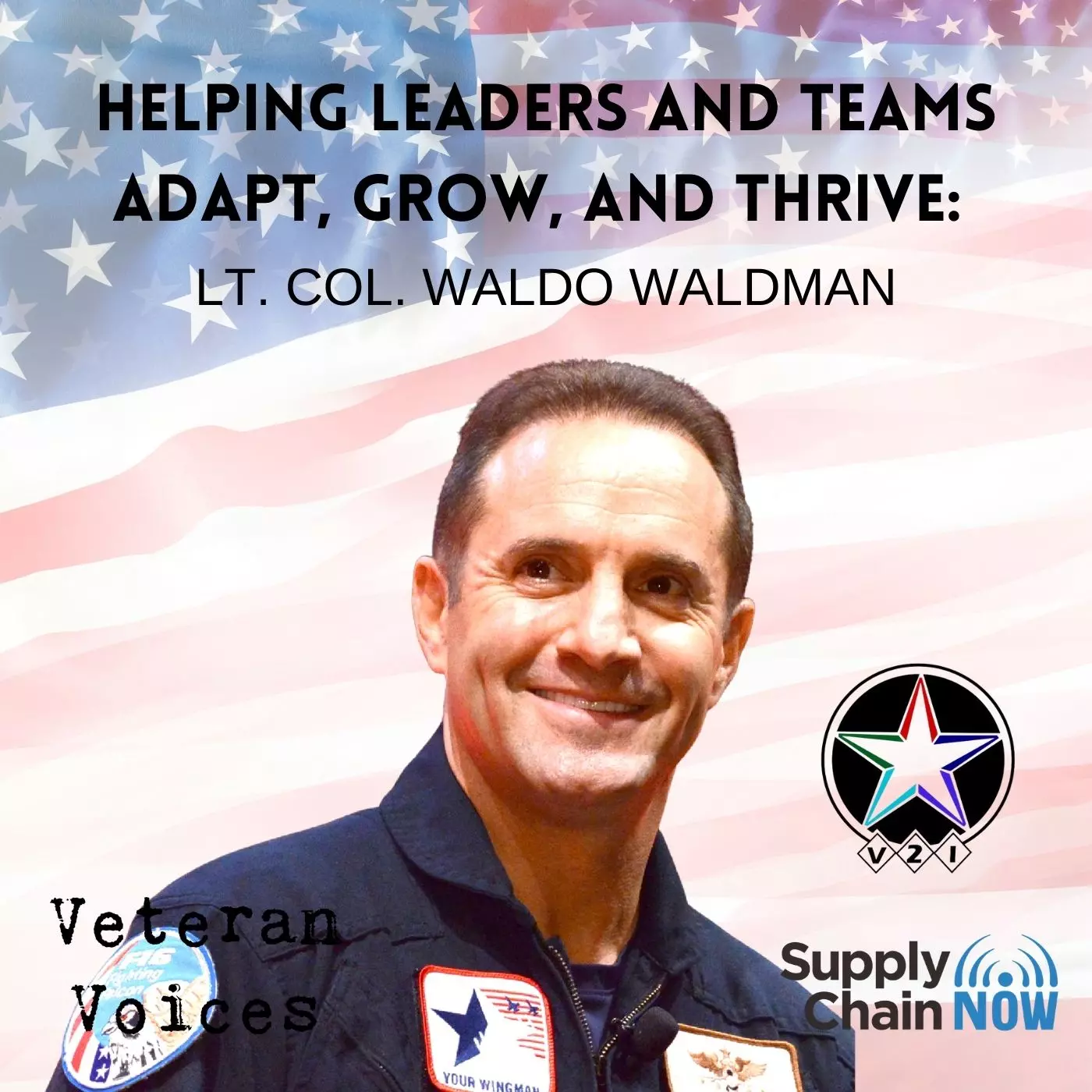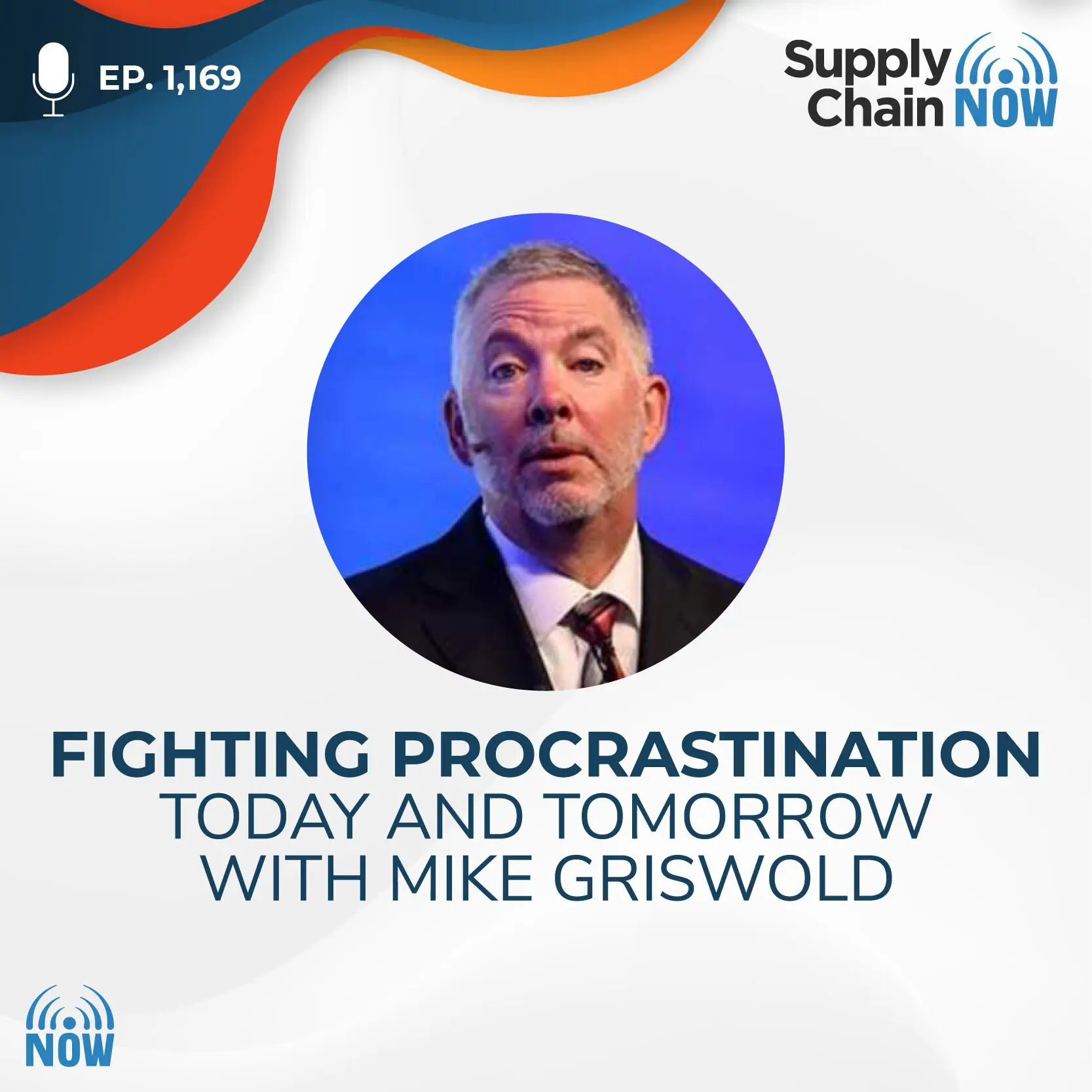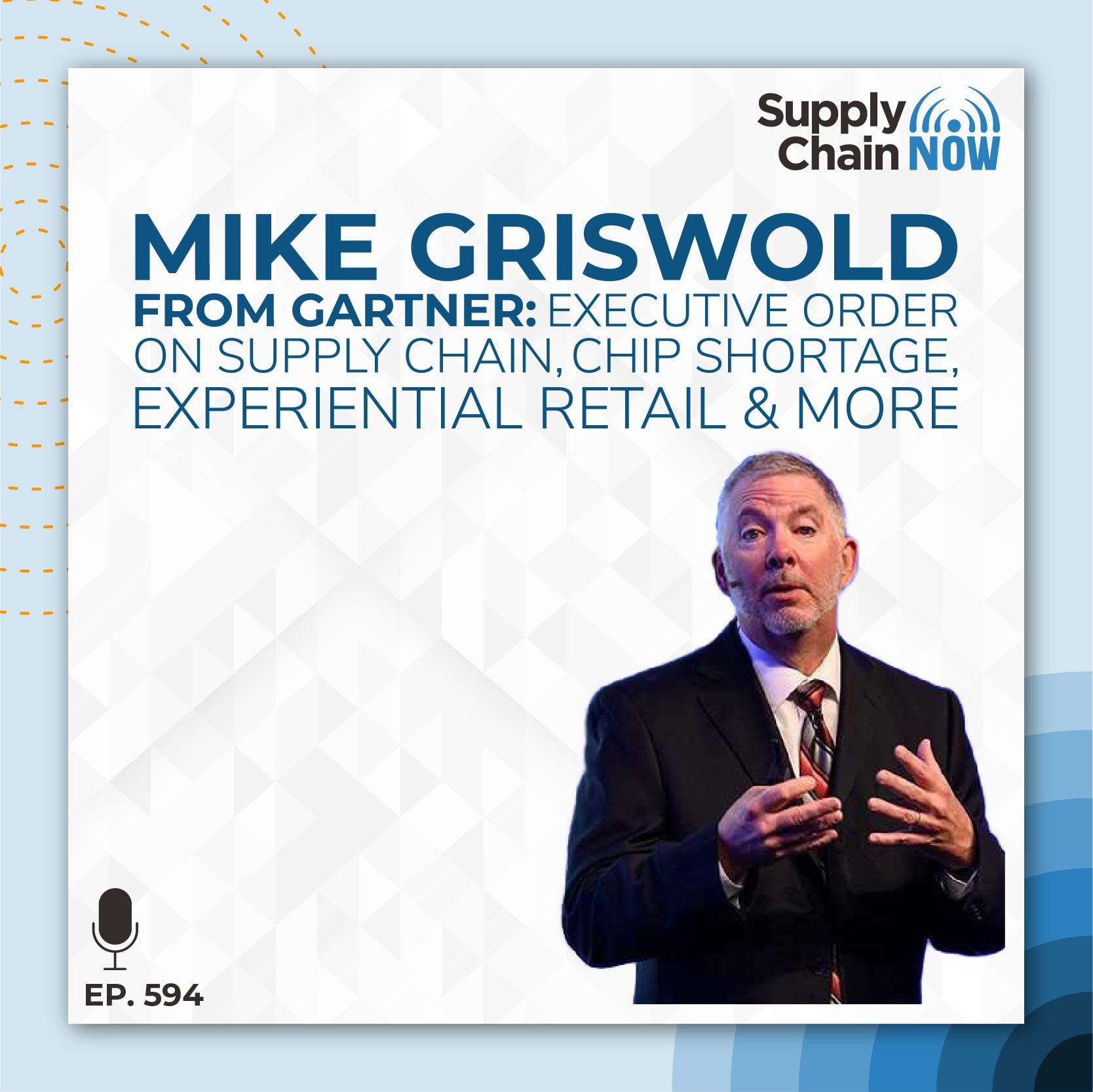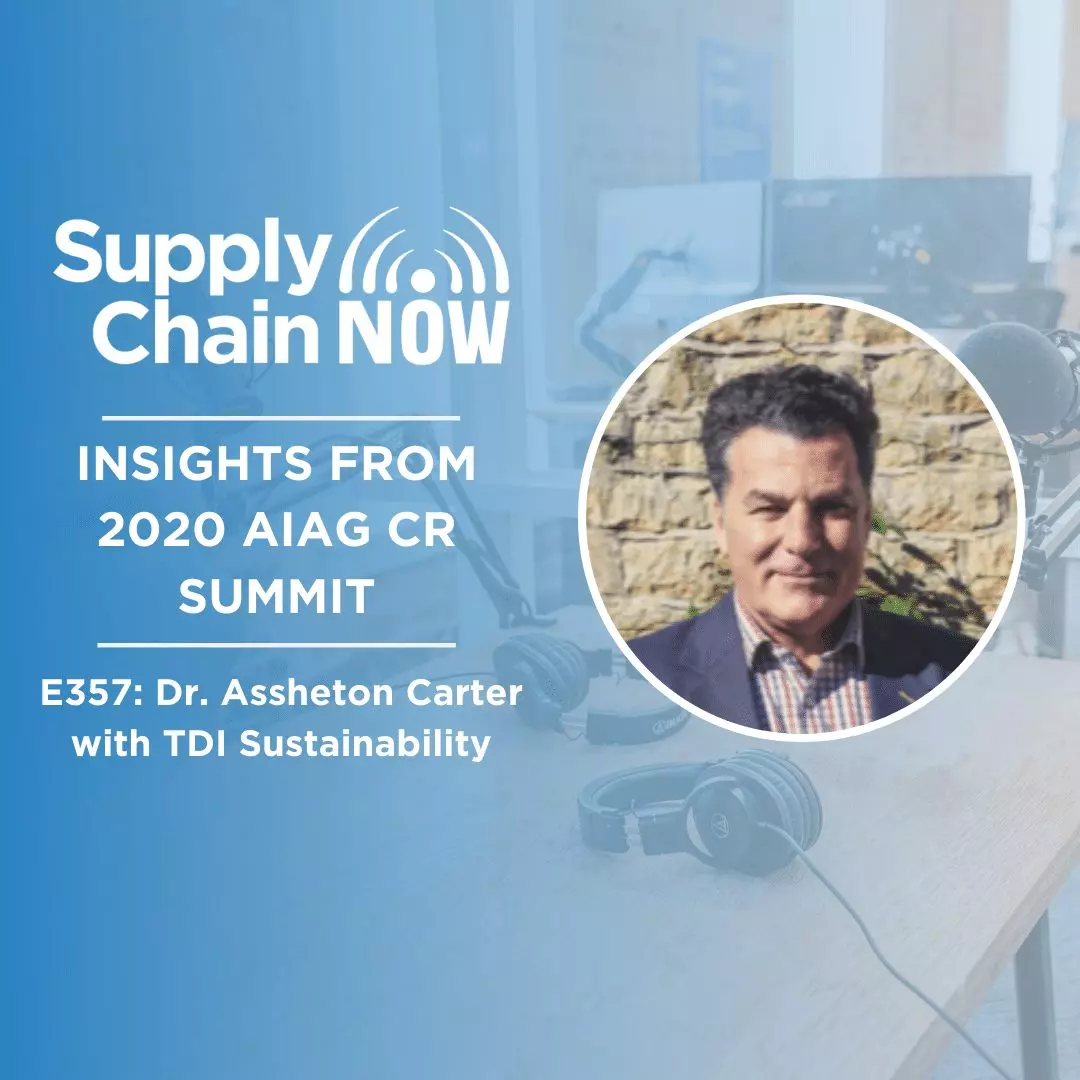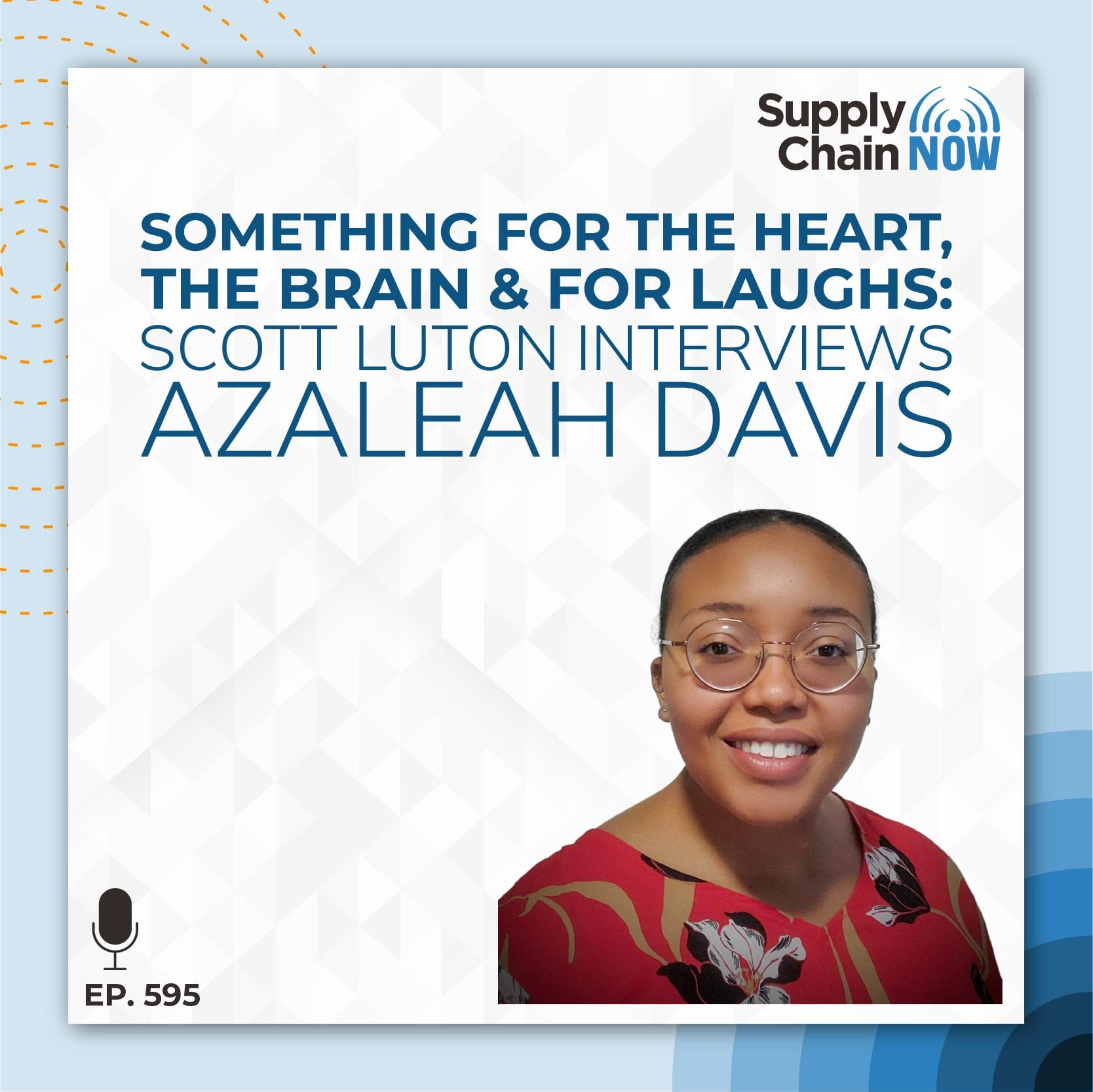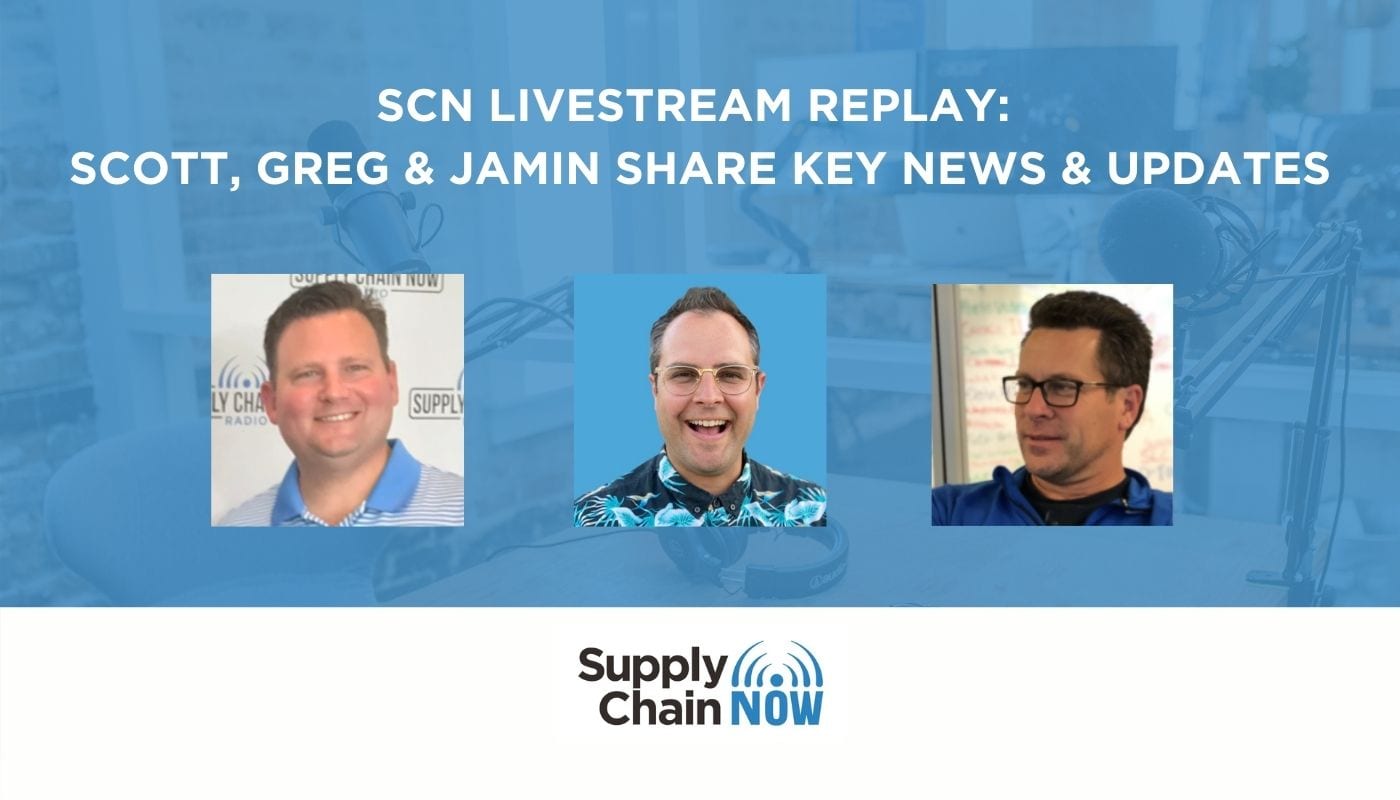
Episode Summary
“I’m surprisingly confident in us as an industry, because even though we can be a little squirrely and hard to wrangle, sometimes this is exactly the time when supply chain logistics and folks shine. We can really flex up and get things done. When there’s a lot of unknowns, we’re like no other industry.”
– Greg White
Supply chain has been ‘above the fold’ from a news perspective since the start of 2020, but all of the effort required to remain operational through the pandemic hasn’t slowed down the pace of innovation and business change.
Scott Luton, Greg White, and Jamin Alvidrez regularly host podcasts and livestreams where they ask supply chain leaders about their perspective on the industry, top business challenges, and what their priorities are. But what do the hosts think?
In this conversation, Scott, Greg, and Jamin discuss:
· The latest news on supply chain IPOs and investments, including some strokes of genius and a few really dumb decisions
· The impact that social media is having on the freight industry; how drivers are using their newfound ability to connect virtually to make their voices heard and the potential this creates for strikes
· The latest plans to coordinate all types of players in the supply chain to accelerate the distribution of the COVID-19 vaccine
Episode Transcript
Intro/Outro (00:00:05):
It’s time for supply chain. Now broadcasting live from the supply chain capital of the country. Atlanta, Georgia heard around the world. Supply chain. Now spotlights the best in all things. Supply chain, the people, the technologies, the best practices and the critical issues of the day. And now here are your hosts.
Scott Luton (00:00:41):
Hey, Hey, good. Thursday afternoon, Scott Luton. Jayman and Greg white with you here on supply chain. Now welcome to today’s live stream. Gentlemen, do you know, today’s theme is Nope. Pop quiz right off the bat hot takes. Right? This is going to be the ESPN show. We’re going to, who’s going to do the points on, uh, yeah, that’s all right. It is hot. Take Thursday here at supply chain now, and we’re all going to be continuing our work to increase your supply chain, uh, Q uh, and we’re going to touch on it all today from transportation to tech, to the vaccine distribution, and a lot more. So stay tuned, buckle up. And not only are we welcoming in our panels takes on what’s going on in the world, but want to hear yours as well. Yeah. So y’all get ready to contribute a quick programming note for get started here.
Scott Luton (00:01:31):
Of course, if you enjoy today’s live stream, be sure to search for supply chain. Now, wherever you get your podcasts from click subscribe. So you don’t miss a single thing, and we’d love to welcome you in on future live streams. Every every week, Monday, Thursday, 12 noon is currently standing live streams. And of course like yesterday’s Greg and like tomorrow’s Greg. We have a lot more to offer, uh, as we try to really serve as the voice of global supply chain. All right. Are we standing? Cause it looks like Jaymin might be standing, but I’m sitting.
Scott Luton (00:02:07):
I’m not, I’m just trying to look eager. I’m trying to stand up, man. Seriously. Well, let’s go, Royals got to represent Casey. That is right. You know, we touched on Kansas city and buck O’Neil in a recent this week in business history. Enjoyed that episode. Uh, well, I, I appreciate that, Jamie. Um, you know, you’ve heard Bucko Neil a thousand times, if you’re a sports fan and baseball fan, and I gotta tell ya, um, I didn’t fully appreciate the legacy behind, uh, what Bo Bucko Neil did in industry and for so many things. So you gotta, y’all gotta check out that episode this week in business history, but, um, what we want to do, let’s say loads, a few folks Jayman and Greg, and then we’ve got a couple of resources. We want to share it and we’re going to dive right in. So we’re gonna move quick here on this Thursday afternoon, host host sway. Ramos is back. The podcast star, uh, really have enjoyed him sharing all of his, uh, POV, uh, across the digital stratosphere here lately. Prateek. Great to have you always a pleasure to have you own our lives dreams as Sony, uh, from Nigeria. I think that he may be a first time, at least first time I’ve seen him
Greg White (00:03:18):
Come here. Yeah. First time
Scott Luton (00:03:21):
Look forward to you. Uh, of course Mike Guevara, who is a constant voice, especially when it comes to, uh, supply chain finance, it seems. Yeah.
Greg White (00:03:30):
Yeah. I think we need a new hashtag higher mic. Right? We had, we had a higher Ben hashtag, right? I agree. I think, I think Mike is, uh, open let’s call it open to new employment. Don’t tell the boss. Yes.
Scott Luton (00:03:47):
Well, great to have you here, Mike Ava Mervin of course. Great to have you Mervin as always rich Brown enjoyed you popping in on our live streams, Tom Raftery, Tom, we’re looking forward to you and Alexis joined and Greg and I on the sustainability focused, have we put it sustainability matters? Uh, kind of like an update on what’s going on as long as lot of Q and a from the audience. So look forward to you joining us tomorrow, Tom Daniel Hart net one final one here. It says, hello everyone. Another day supply chain info pack session. Daniel, Daniel. Appreciate your commentary yesterday on our special veterans day episode and one final Gary Smith, Gary Smith, uh, fresh off the keynote circuit has got his latest supply chain management review, uh, publication. We’re going to touch on here at the end. So Gary,
Greg White (00:04:38):
Have you with us? Listen up Gary.
Scott Luton (00:04:42):
Nope. All right. So we’re going to make these commercials very brief and painless, not really commercials. We’re really giving folks an opportunity to, uh, you know, strengthen our supply chain IQ. Uh, here, we’ve touched on this before Greg. It’s all about IOT. IOT has been around forever. Bob with open text is going to give us some of the latest cutting edge applications of IOT and industry November 19th. That’s just a week from today. Make sure you sign up. We’ve got the link in the show notes, Greg, one last comment from you.
Greg White (00:05:15):
Well, later in this episode, you’re going to hear why you ought to care about IOT and then make your decision on, on joining that that’s right.
Scott Luton (00:05:25):
Everyone’s got a decision to make. And then finally, 2020 say picks virtual conference, not just a hashtag, not just another webinar, uh, achieving perfect 2020 supply chain envision. Don’t we all wish we had that and bringing beyond sharing some of our latest observations from the world of supply chain leadership in particular, uh, trivia’s back hashtag trivia’s back should make several folks around here kind of happy. We’re big, big, I’m a big trivia nerd. So, all right. So, uh, Jaymin and Greg, great to have you here on the live stream, really excited about what we’re going to be tackling here today. Greg, I think you are going to lead off with our first, uh, hot take, right?
Greg White (00:06:10):
Yes. And you know, just so everyone knows not necessarily news. These are just takes on what’s going on in the marketplace and this as a, as a critical disclaimer, you may or may not hear some opinion here. So, uh, you know, as many of you know, I follow and participate in, in supply chain, startups and investment in supply chain, uh, technology in particular. And it just struck me over the course of the last few weeks that there has been a ton of activity relative to supply chain technology more than I have seen in this condensed time period. So easy to open has announced that they’re going public, Llamasoft got bought by Cooper. Uh, whether you like or hate that deal. Laura says, Siri hates that deal. Uh, I’m not, I’m speaking for, she’s not a huge fan of that concerns around it.
Scott Luton (00:07:05):
She said that she actually brought, literally brought her to tears when she first saw it.
Greg White (00:07:09):
Is that right? Yeah. And we’re going to get to hear from her on that because she’s going to be on Corrine’s show, correct. That’s right. She’s going to be on tech talks. So we’re going to get to hear about that rider, uh, opened a $50 million venture capital fund, and they’re not the first but specifically focused on supply chain techs and I’m hearing and experiencing startups that are getting a 30 X revenue valuation. So just to give you an idea, that’s a, that’s a $1 million company valued at $30 million. Wow. I mean, that is incredible by any standard in technology that is unicorn tight numbers. So we’re seeing not only activity, but enthusiasm as some of you probably know, I’ve recently become a venture partner at a, at a venture capital firm firms specifically to seek out supply chain technology companies to invest in. And there are some amazing ones out there. Um, and there is, there is a ton of activity and there is a ton of money on the sidelines, more funds coming by the way focused specifically on tech. Uh, and, and it is incredible what we’re seeing in supply chain.
Scott Luton (00:08:30):
So a quick two quick comics first, uh, my Ava says unicorns all over and then, uh, Daniel is kind of playing the role of Malcolm here. Uh, Daniel says her later comments and llama soft actually gave it a thumbs up.
Greg White (00:08:45):
Yeah, that’s really interesting. And you know, I think the important recognition here is there and Michael Mike is right. You know, there are unicorns over the place. There are, we’re used to seeing unicorns in consumer tech or FinTech financial technologies or, um, you know, a bazillion others, healthcare technologies and that sort of thing. But this is a very unique time, right? In supply chain technology. I mean, supply chain technology has been considered a laggard in terms of technology, a laggard in terms of innovation and certainly a laggard in terms of valuation. If you look at the tequila supply chain, tech supply chain, tequila, sunrise, supply chain tech stock index, I have got to shorten the name of that, um, which you can’t do yet though we’re working on it, but I can, you see a lot of companies you would not consider innovative or forward-looking, um, Kupa up until now would be considered one of those, but, uh, we’re starting to see some incredible companies go public and incredible companies start to come into their own in terms of valuation in these times, look, COVID hashtag COVID happened. Right. And, and that changed the game for supply chain. It’s not the supply chain is doing anything substantially different. It’s just the recognition by the greater marketplace. Yep.
Scott Luton (00:10:19):
Of course. Jameson, with your point of view and your expertise in logistics and transportation, I mean, I’m sure you’re seeing exactly what Greg seeing, especially in that component of global industry.
Greg White (00:10:30):
Yeah. I think a great set of, well, and what we’re seeing is, is two things converge. We were already going through a lot of change. Things were adapting, we’re moving to a new way of consuming goods and delivering them. And then the hashtag COVID happened. And those two things just, you know, exponentially accelerated, uh, change adoption, all that we’re really in a, uh, adapt and thrive time or adapt and die if you don’t adapt and die. Right.
Scott Luton (00:11:00):
So, um, a couple of quick comments not to, David’s talking about the Cooper deal still thinks he’s going to be too big, too fast. And then Mervyn is referring to your index. Uh, gr uh, Greg says that’s not gonna fit on a, t-shirt, uh, great to have
Greg White (00:11:19):
He’s on the size of t-shirt we’re going to sell it. And triple XL only that’s right.
Scott Luton (00:11:23):
All right. So before, so, so much going on there and Greg just scraping the tip of the iceberg. If folks want to learn more, especially a lot of what Greg mentioned, be sure to check out tequila, sunrise, you can subscribe to that wherever you get your podcasts from. Um, Greg, is it okay to move to our next segment here as we dive deeper into trends?
Greg White (00:11:43):
Yeah. Well, one final comment and that’s in regards to Jameson’s industry, you know, his focus on transportation, we saw a lot of movement in freight tech even to COVID. A lot of it was irrational exuberance. Um, the, the, the freight and freight tech was in all capital letters and the tech and in freight tech was in tiny, tiny font because it was more about freight than tech. Um, and that actually delayed the impact. Uh, it’s obviously impacted freight tech companies, um, in this year, but it also delayed the impact on supply chain in general, other aspects of supply chain tech, because that was a bit of a bust. I mean, SoftBank made a couple of really, really dumb investments and, uh, and that can actually set back and industry, but the industry, the good news is the industry appears to be recovering and freight tech seems to be raising the size of the font in tech, on freight tech. That, that is a really good point. I think a lot of, even this tech, it has been around, but it’s adoption is where the choke point has come into. And, uh, we, uh, in, in transportation, logistics have probably all been guilty of this one time or another. We have tech or new way of doing things, but then, uh, and we, we tout it and talk about it and show everyone. But then behind the scenes, we dive right back into an Excel spreadsheet.
Greg White (00:13:18):
I think this is really one of the, one of the things that’s really driving, not just innovation, surely don’t want to discredit that, but adoption and people’s either willingness or just have to, uh, have to, is often what it takes to create adoption on necessity’s the mother of invention, right?
Scott Luton (00:13:39):
And before we dive deeper, I want to feature this comment from Tim Bushway in st. Louis. He says Cooper has a very careful strategy of adding in technology to their existing platform. They would not have made this purchase without a solid plan,
Greg White (00:13:54):
An excellent point. And IBM has had a solid plan for every, every acquisition they’ve ever made and still vaporize the company. I mean, a lot of it is whether your plan is any good. I don’t doubt that there, that I don’t doubt that Coupa’s plan is any good regardless, David, there is, there is hope. Trust me, there are so, and, and if Laura’s a serious coming around on it, then I feel even better feeling good about this, Greg, I agree with Tim then that a company has to have a plan and every company does have a plan when they make an acquisition.
Scott Luton (00:14:27):
All right. But the wiring execution is, is, I mean the best plan
Greg White (00:14:32):
Integration can be is the most difficult thing in any kind of acquisition. Yeah. Mike Tyson has a great quote about having a plan right. All year.
Scott Luton (00:14:45):
So there was a great Facebook collage of some of his greatest knockouts and it, and, and my buddy Neil Shaw, who may be listening, shared it. And it really took me back to the late eighties, early nineties, when he was the baddest person on the face of the earth. And folks, there was a vibe about every fight in him walking to the ring. It was just such an iconic sports moment. So anyway, but I love that in boxing. Yes. Yes. Michael Spanx was on there, all, all of his other great fights, but anyway, so Jaymin, we got to keep driving for the sake of today’s live stream and y’all call on comments, keep it coming. That’s right. Uh, no pun intended jam and bliss dot into transportation.
Jamin Alvidrez (00:15:30):
All right. Uh, so something that’s been, uh, it kinda came on, uh, very quickly and almost in, in murmurs and still is a little unclear is, uh, stop the tires 2020. Um, it’s something we started hearing about late last week, just early this week, a driver strike, um, and diving in a little deeper. It was supposed to be a strike on veteran’s day yesterday, the 11th. And then, so I don’t get the dates wrong, uh, November 26th through 29th. So essentially Thanksgiving, uh, weekend. And, you know, it was as so many things in transportation and logistics, and I don’t mean this disrespectfully to any of us into it. Uh, there are so many different corners and pockets and getting us all together and moving in one direction and a clear message is so tough. So it’s not surprising that when news of some strike came out, it was very disorganized.
Jamin Alvidrez (00:16:27):
And lot of the drivers I’d talked to never even heard of this, but now, so through Facebook and, uh, and I don’t mean this is a joke Tik TOK, uh, the, some of the largest, uh, trucker owner operator communities are on a Tik TOK and Facebook. Um, so not trying, this is kind of my hot take, but a lot of times, uh, drivers owner operators get blamed if you will, for our industry being a laggard in technology and adoption. And I say, I don’t know, because they’re pretty hip and savvy with social and other tech. So I think there’s more to it. I don’t, I don’t know, want to put it at the feet of the drivers. Um, but yeah, so they, they are now saying, um, they have, uh, they’re very active on, on Twitter. The Facebook group has, uh, over 25,000 members. Um, and it, you know, the first murmurs among brokers at least was all, man, why are they striking about broker transparency or about rates?
Jamin Alvidrez (00:17:28):
That tends to be where we go to all of a sudden rates are what our fuel rates, but this is a political, um, kind of movement or call to action related around, um, uh, Antifa potential anti-fracking, um, laws and legislation from the Biden administration. And so that’s where it’s kind of in that preemptive strike, if you will. Yeah. And so, and that’s where I think some of the murkiness and the unclear this comes from, but, um, it, why I think it was of note. It’s interesting. And just looking back, uh, at the, the EEQ side of things, I think we’re seeing drivers and I’ll use that term broadly drivers, uh, start to use their voice, to talk about things outside of simply, um, uh, rates and fuel, uh, or capacity. You know, we, we tend to put them in that box and this isn’t to get political or say their movement is good, bad, or indifferent.
Jamin Alvidrez (00:18:29):
It is just interesting to see there’s one of the first strikes that we’ve really heard about that’s two, and this is how they’re expressing it to save 19 million jobs related to the fracking industry. So, uh, talking to two different ones across the industry, uh, uh, among shipper carrier broker, don’t expect it to truly be, uh, impactful in incapacitating like that, but it is interesting to start hearing, uh, drivers and, you know, when you get into the 20 thousands plus, uh, on a committee, that’s, uh, you know, there, there’s something to, to try to understand their, um, and to hear them talking about, uh, jobs as opposed to, to rates or fuel. I think it’s sort of, they’re, they’re learning to, uh, communicate with us. And I think we do need to listen in a sense to understand and see them as more than just a rate or a, a fuel surcharge.
Jamin Alvidrez (00:19:22):
Well, I can tell you that this is common in Europe and Latin America in Argentina a few years ago. And I think Brazil also, like they just completely shut down the country. I mean, not only would not roll trucks to carry goods, but they were blocking the roads with trucks. So, uh, you know, I mean, we’re talking about a group of people that have not only the greatest number, but the largest vehicles on the road. So if they decide to take an action, I mean, they can definitely have an impact. It’s an interest. That’s an interesting, seriously. It is kind of a preemptive strike if you will, it’s dynamic, but I see naturally where it would come from if they’ve been seeing what’s going on in Europe and Latin America.
Scott Luton (00:20:08):
Sure. We got, uh, uh, it is great to see more, uh, professionals, supply chain practitioners, you name it, find that voice and share that voice. And, and that’s so important. So looking forward to seeing, um, you know, the, the room or an aspect of all this kind of, that ambiguity, Jameson has been interested in the kind of monitoring
Jamin Alvidrez (00:20:30):
The finger on the pulse. Um, won’t take long to pull that momentum together in this day and age with social media is, as Jamie was talking about,
Scott Luton (00:20:40):
That’s a good point. Uh, Mervyn Daniel says, Hey, it’s drizzling in Dublin and I’m outside watching this episode just for what it’s worth. Also some Tom really
Jamin Alvidrez (00:20:50):
Bounce that it’s drizzling in Dublin this time of year Mervyn. That’s a given right. Uh,
Scott Luton (00:20:57):
Yeah, I’ll be in reference there.
Jamin Alvidrez (00:21:00):
Uh, Oh, I love that.
Scott Luton (00:21:03):
David says he’s not scared. He’s willing to bet his wallet that Lauren knows more than he does. Um, let’s see here. We’ve got, Mike says that, um, let me go back to the earlier comment here. Mike says driver strike happened in Brazil back in summer of 18. It completely messed up our supply chain with similar effects that we see today with COVID. That is, um, interesting comment.
Jamin Alvidrez (00:21:25):
There was in Brazil then. Yeah. Yep.
Scott Luton (00:21:28):
And then Mike says, you’re absolutely correct for Brazil, Greg. And then Tom says French truckers.
Jamin Alvidrez (00:21:32):
Yes. We’re really good at this. That’s right. Yeah. So, all right.
Scott Luton (00:21:37):
So, uh, before we switch over to a hot topic, uh, Jamie, any final thoughts on this first on, on your first, um,
Jamin Alvidrez (00:21:47):
POV here? No, just that, uh, I don’t think it will cause major disruption, but I do think, you know, drivers and all of us really right, are learning new forms of communicating, communicating at scale. So it’s interesting to see that evolve and develop and, uh, I’d encourage the response from, from all of us. And really I’m, I’m saying this to challenge myself is just to be listening, not to immediately have a, a visceral reaction one way or another based on what our personal business or opinions are, but to, uh, to listen and see if we can try and understand where we’re all coming from. Yeah.
Scott Luton (00:22:23):
Um, appreciate that perspective. Thanks for all the great comments. Uh, lots of interesting sidebar conversations included
Jamin Alvidrez (00:22:30):
CW McCall would be proud for people who don’t know, look up CW, McCall and convoy. Yes.
Scott Luton (00:22:39):
Well, we’ll see if we can’t get Malcolm on that. We’ll see. Yeah. Um, let’s talk about what is, uh, the supply chain Dobbs hottest story right now? How does trending story? I think Greg had mentioned he put this on social media before, which is probably what made it, the number one trending story, Greg,
Jamin Alvidrez (00:22:56):
Uh,
Scott Luton (00:22:58):
Tongue firmly planted in cheek
Jamin Alvidrez (00:22:59):
There. I should hope so. So a couple
Scott Luton (00:23:02):
Of, and this comes from Matt Leonard over at supply.
Jamin Alvidrez (00:23:05):
Great article thorough article.
Scott Luton (00:23:08):
Yep. So we’re going to give you just like a couple of quick highlights here. First off, as we all perhaps know, we’re still waiting for official FDA approval, which should take place as expected by early December, but once approved, here’s a couple of numbers for you. 12 trucks rolling per day from Pfizer’s formulation and bill facility in Kalamazoo, Michigan, 20 planes taking flight globally every single day. Pfizer has identified no additional logistics partners beyond DHL, FedEx, and ups. And from a volume standpoint, they expect to make 50, as much as 50 million vaccine doses in 2020, right. In a few weeks, however, is two doses per person. So that’s roughly 25 million folks, right? For 2021 full year, they’re projecting up the 1.3 billion and the effectiveness so far, which is very encouraging, 90% effective rate so far at preventing COVID-19 versus a placebo. So all that’s good news and, and very uplifting.
Scott Luton (00:24:11):
However, let’s kind of shift gears here, here in the States, the federal government, which has reported a month or so ago had chosen McKesson to lead distribution. The vaccine, they called it operation, um, warp speed, right. Was that, was that federal government, uh, framework, but did you know Jayman, uh, I didn’t really realize is Pfizer had opted out of operation warp speed and amongst the likely reasons there’s several is just the cold storage requirements. We’re talking minus 94 degrees Fahrenheit now. Um, and of course, by using, you know, kind of going outside and going non-direct, you’ve got, as we all know, you got points where you could raise the spoilage and, and average splits. Um, if you want to look at typical spoilage rates for other vaccines during transport, this is a great factoid from the article five, the 20%. So, uh, the cold storage requirements are intense.
Scott Luton (00:25:12):
And then one final thing article mentioned specific supply chain, infrastructure constraints, like reefer transportation, which right now is really tackling high demand and produce and foods. So, um, we’re going to tackle this Nobel mission. There’s going to be some gaps, just like we always uncover with any new supply chain rollout, especially one at this, um, uh, scale scale. Yeah, thank you. This scale. And of course, you know, not to be too dramatic, but this is, this is a, a top priority. So, so much good stuff here. The reporting Greg, to echo your comments is outstanding. Uh, the visibility on, on this, um, is probably more than folks would expect. So really, you know, we’ll see what happens when, when things start to roll here, you know, second week perhaps of December Greg, I know you’re chomping at the bit. We’ve talked a lot about this, uh, in recent months as the vaccine game plan started to come together quick.
Greg White (00:26:14):
Yeah. A couple of interesting things. One is the last article we discussed, they were talking about security decoys and things like that. It’s interesting that they, that they identified the point of origin for the shipments. And the other thing that’s interesting, and you have to read between the lines here. There are no other main logistics supply chain partners beyond those three big carriers, because the U S government that army was expected to participate in that. In fact, I saw, I think on 60 minutes, Sunday, they were talking to an army general and they asked him explicitly, will you, are you ready to distribute this vaccine? And he said, unequivocally, yes, but it appears that they will not be participating in that. Another, I think important point is the government was only hoping for 60, uh, 50 to 70%. Let’s just say 60% effectiveness. And, and, uh, Pfizer was targeting over 90% and they were disappointed with 90%. I mean, they’re one of their lead researchers was disappointed with 90%, but I think that’s an incredible, um, that’s just an incredible, um, accomplishment. It’s a bit of a misnomer by the way, they did receive some funding from the warp speed, uh, program. Um, but they did not sign the document or whatever. So there’s a little bit of misnomer there, but in any case that none of that is material. I think, uh, Tom Raftery made a good point in that is that, Oh, there you go. You, you are way ahead of me
Scott Luton (00:27:50):
What you’ve made. I mean, this echoes a point you’ve, you’ve been making
Greg White (00:27:53):
Four months. Yeah. But the good news here is that we know who is affected by this. We know people with co-morbidities over 65, especially over 85, um, are highly effected by this. And, um, 77% of the deaths for COVID-19 occur for a small, small portion of the population. And no deaths have occurred in 77% of the population. So, so, um, you know, it’s, it’s relatively easy to target this at the most vulnerable people. Uh, though the numbers are small, that’s better than nothing, which is what we had before. So right.
Scott Luton (00:28:37):
It reminds me of that, um, uh, invade, um, gosh, invasion from Mars attacks with, uh, Jack Nicholson. There’s a great moment there where, where Congress has been, I think it’s Congress has been destroyed by the alien and he goes we’ve yes, we’ve lost Congress. I’m paraphrasing, but we still have two out of three working branches of government. And that ain’t bad. It’s just a great moment right there in that movie. Um, all right. So Jamie, we’ve got a couple of comments I want to recognize, but, but
Greg White (00:29:07):
So a quick take from you, especially from that, you know, from what you’re seeing distribution wise as a supply chain, logistics and transportation nerd, this is going to be fascinating to watch play out. And I, while the, uh, the vaccine isn’t exact science, I, and the transportation and distribution will not be, it might be a little messy. I’m surprisingly confident and us as an industry, because even though we can be a little squirrely and hard to wrangle, sometimes this is exactly the time where supply chain logistics and folks shine,
Jamin Alvidrez (00:29:42):
Because we can really flex up and get things done. Uh, when it’s, when there’s a lot of unknowns, like no other industry. So it’ll be exciting where we’re really getting our at-bat again for the second time in 2020.
Scott Luton (00:29:56):
Excellent comments, Jamie, excellent comments. We’re going to rise to the challenge. We’re not this out. It’s not going to be easy and it’s going to come with its lumps, like any other thing, but we’ve got a knack for getting it done and thankful to all those outstanding global supply chain, practitioners and leaders. I want to share a couple of comments here. Daniel says current focus on the vaccine supply chain needs to also focus on the risks across the UN in supply chain, theft, tampering, cybersecurity, data, privacy, regulatory, you name it. It’s there. Sadly great point. Yeah,
Jamin Alvidrez (00:30:25):
I can’t, I can’t speak to focus, but I can speak to awareness and they definitely have the awareness of that. The X factor being rogue governments, and nobody can really overcome that once, once the goods cross into, um, a bad government’s borders, all bets are off.
Scott Luton (00:30:43):
Well, then to that point, you’ve got, um, you know, we all live here in the States. We’re going to be tracking that and, and the distribution here in States, but to your point, Greg, truly serving the world, uh, you’re going to have some regional challenges that are unique to som. So it’d be really interesting to see how this plays out, especially access and accessibility, which is important. Right. Um, Jim Benton says iNTRAXX from military sustainable brigade can add reefer capacity. Undoubtedly, they’re going to be, uh, uh, leveraging military assets. Uh, Keith Duckworth has given us a little trivia. We mentioned Kalamazoo, great city. He says, the name is native American name, meaning bowling pot or bowling water name because a native saw the kazoo river in the morning, but the fog rising. That is a cool, uh,
Jamin Alvidrez (00:31:31):
You’re coy.
Scott Luton (00:31:32):
I don’t know who, um, so we’re going back here, this comment back to the earlier, um, conversation around Kupa. And I don’t know who mentioned this, so maybe Amanda Clay, if you could drop this in the comments, agree on the IBM reference, this, this listener says it’s about track record. IBM has acquired and struggles to incorporate tech into a suite. Cooper has had a decent track record for incorporating technology that they acquire.
Jamin Alvidrez (00:31:58):
Yeah. And they’ve been really aggressive in the last 12 months. Yep.
Scott Luton (00:32:02):
And so here’s here, here, coming back forward and Hey, this is, these are winding conversations. Prateek asks what essentially is the trillion dollar question. I mean, it is a core concern related to the distribution of the vaccine beyond all the other concerns. And that’s the transportation that at negative 70 degrees Celsius, which I think the article we referenced, Greg, it mentioned three different temperature ranges, uh, based on a couple of different factors, but right. Um, uh, what’s, y’all’s take, I mean, uh,
Jamin Alvidrez (00:32:34):
Have you seen some of the, um, the whole column boxes to transport
Greg White (00:32:40):
That, uh, Pfizer had developed in, in unison with developing the vaccine to, uh, keep it at temp? Um, which I think is very fascinating. So innovation from all sides, uh, not just accepting that, Hey, this would have to go on a refrigerated truck, but what can we do, uh, beyond that? And, and I really think, uh, that’s a fascinating development there, as you said, that Jamie and I was imagining 53 foot reefers packed full of Yetis, right. Whatever it takes to get it done right. Seriously though, the vacuum, the vacuum, uh, dual wall vacuum type container is, is a viable solution for keeping things at temp, right? So that may be just simply an augmentation of regular re reefer because, um, you know, there is, there’s all sorts of levels of, of, um, cold chain logistics, zero sub zero super sub zero or whatever, sub sub zero or whatever they call it.
Greg White (00:33:44):
Um, and you know, they’re, they’re going to have to make provisions because I can’t believe that there is enough even with food service using food service capacity, can’t believe there’s enough sub in sub sub zero, uh, capacity out there. Although if it does come out in dribs and drabs, as Tom was talking about, then it could be a lot easier to carry than we think. And it is relatively small size to a lot of the other product that is stored at sub zero and sub zero. Yeah. The patent, they ha it’s an interesting, uh, box to transport it to, uh, to your point. It’s, it’s a little smaller self-contained box that I think will really, uh, Len tick control and attempt and making it, I misused the word easier, but easier to transport. Sure.
Scott Luton (00:34:32):
Agreed. So no shortage, well, looking forward to, uh, this, this, this is going to be an incredible business case study supply chain case study for, for decades to come. So we’ll all be, um, watching it roll out. So let’s keep driving. There’s a lot of comments I couldn’t quite get to including a few, sometimes our platform when it can, when it connects with social, we don’t have access to the profile. So that’s when we share comment and, and the, the picture of the name’s not there. So we try to attribute quotes as often as we can. So y’all keep the comments coming, Greg, we are going to move right along into the wonderful world of artificial intelligence. Tell us,
Greg White (00:35:11):
Well, you know, as long as we’re doing hot takes, right, I wanted to, I wanted to talk about the technologies that are being discussed these days and how they’re being deployed. We’re not going to go into great detail here, but look, everyone has heard AI, IOT, robotics, blockchain. Um, we’ve been talking a lot about the applicability and the, and the real practical applications of these technologies. In fact, um, we just dropped episode 21 of tequila, sunrise. Here’s a little shameless self promotion where we talk to Kevin L. Jackson and, and he is a blockchain and cloud technology expert from way back. So, uh, he talks a lot about digital transformation and, and, and, um, blockchain in particular. But I think the important thing to recognize when you, when you think about these technologies is that they are real, they are being used today, and they’re not necessarily what you think.
Greg White (00:36:10):
I mean, if you think about it, um, a, uh, a gaming, uh, wireless gaming device, that’s internet enabled that is IOT, right? Uh, your Samsung probably Samsung refrigerator that can tell you it’s time to buy more milk that’s IOT, your car that is, that is communicating. Um, if, especially if you have a Tesla, your car that is constantly communicating with the manufacturer, let you know the status of the vehicle, that’s IOT, there are real and, and, and significant, uh, applications, even light bulbs or IOT now. And all of those things can tell us things about how to, how to facilitate supply chain, activity, planning, transactions, that sort of thing. And, um, and, and there, you know, and there’s some other things that I think are worth clarifying AI. For instance, we think AI is the replacement of human intelligence, or as I call it the other AI actual intelligence.
Greg White (00:37:14):
Um, but, uh, AI is more like your children than it is like how right. It is learning from us or learning from data constantly. And it is effectively a child that has to be taught things. AI does not come out of the box. And this has been a myth that has, has hamstrung some large, large companies, because they didn’t understand what AI was about. AI has to learn. It has to learn about the specific circumstance. And in fact, uh, it can be wrong. And, and what I’ve recently discovered, I did not realize this is that AI can receive the same inputs of data. And in an early stage of learning, it might give two different answers. Just like you might, if you’re just learning how to do math, right. What’s two, what’s two times three, six what’s three times two. I don’t know because nobody’s ever told me that before.
Greg White (00:38:08):
I mean, it’s simple things like that, um, that we have to think about. So these are not end all be all types of technologies, but they are coming, they are coming fast and it is inevitable that they will be included. And one that I have robotics of course, is one robotics and automation and autonomy are, I kind of put those into similar categories. Those are inevitable for a number of reasons, robotics inevitable, because the largest, the largest generation in the history of earth is leaving the workforce at the rate of 10,000 per day. And the, the next largest generation isn’t big enough to replace them. And doesn’t want to do the work that baby boomers have done. Yep. Uh, autonomous Jameson. I’m not going to make any friends in your industry, but it is inevitable that our autonomous will take over the transportation industry, planes already fly themselves.
Greg White (00:39:08):
Pilots only take off and land aircraft ships drive themselves have for centuries actually had autopilot or right on auto navigation. Um, and trucks will do likewise. Now we can talk about how that will come to be how long till that comes to be. And when it comes to be, what will it be like? Which by the way, I like to toss this out there for your consideration, Jamie. And I think that trucking will become much like shipping wherein there is a Harbor pilot, someone who knows the treacherous streets of Los Angeles or Atlanta or Chicago or Dublin, um, who can, who can shuttle that vehicle to its final destination, but autonomy will drive it largely on the, on the, um, long run parts of the road. I send the memo to my knees as robots. What’s that
Scott Luton (00:40:05):
Who’s going to send the memo to my knees, to relinquish control of the steering wheel. That we’re not Thomas. I’ve gotten really good at navigating the highway.
Greg White (00:40:15):
See, that’s why autonomous that’s. Why is inevitable? There’s too many people driving just saying, or, or while watching this show
Scott Luton (00:40:28):
We got, so you’re inspiring a ton of comments here at Jaymin. We’ll get you to weigh in here momentarily and responded for move to the next segment. Our great friend, Sahid, Siaad IOT is everything nowadays, especially in home like smart homes, et cetera. Excellent point. And he also enjoys this topic in particular. So I OD you’re going to have to share your, um, your podcast program with our comments here.
Greg White (00:40:52):
So I appreciate the deference, but just Greg is good. Okay.
Scott Luton (00:40:56):
Yes, I’m with ya. I’m with ya. Uh, T now Tom gives you a great example, an application. So his son’s blood sugar monitor is IOT’s type one diabetic. It measures his blood sugar levels once a minute, and sends that data to a personal private health cloud, uh, personalized medicine, outstanding. That’s, that’s what that’s, where we’re headed. Um, and
Greg White (00:41:21):
Also a gamer.
Scott Luton (00:41:23):
So Daniel’s got it. Yes.
Greg White (00:41:26):
Connected with his game and his and his, uh, IOT device. Yep.
Scott Luton (00:41:31):
Uh, Mike says he’s interested to see IOT AI and 3d printing, how it’s all gonna fit together, going forward in particular, I would add in healthcare so much opportunity there, and we’re going to touch on that. And with one of the stories towards the end of today’s lives,
Jamin Alvidrez (00:41:46):
Can I make one quick point on AI and AI is sometimes a, these technologies can be misused or unnecessarily use AI as a good example of where, um, in the supply chain, in particular, there are deterministic factors that you don’t need AI to learn. Because for instance, when I was ordering goods, if I wanted a case of oil, which is 12 cans in a case, I had to order a pallet of oil, 1,440 cans on a pallet. So I don’t need AI to guess for my manufacturer or for me what I’m going to order when I need to order, because that is a deterministic calculation. So it’s more of the ethereal, more of the, um, the vague or, uh, uh, intuitional type discussions, type decisions that are made in supply chain, where AI comes into play. If you’re out there building AI solutions, I would encourage you to figure out whether you’re dealing with a determination deterministic aspect or an intuitional aspect or other scientific terms are nice.
Scott Luton (00:42:54):
So we were 45 minutes in Jameson. Let’s hit your topic, and then we’re going to do a round up.
Jamin Alvidrez (00:43:01):
Absolutely. So, uh, I’m talking about, uh, big, bad Amazon as some would call them. But this was interesting. Uh, this week there was a slide that had gone viral, um, from a presentation that venture firms, social capital was sharing, giving insight on how Amazon through their history has taken their, uh, every major cost and turned it into a source of revenue. And the light is shining right now on their transportation services. So they started in 2015, um, to try to take more of that in house, um, as it was one of their biggest expenses in 2019. There’s an interesting stat in this article, it’s from, uh, the hustle.co, uh, invite you to check it out short little article. So in the first nine months of 2020, uh, Amazon shipping costs amounted to 40 billion with a B, and, and it gives a reference, a reference point.
Jamin Alvidrez (00:44:00):
Uh, 2019 FedEx has revenue for 2019, uh, was, uh, 70 billion. So it gives you some insight of just how large of a player, like we all know they’re a large player, but that is huge, right? So, um, they now are, they’ve handled two thirds of their middle mile line haul this year so far, which again is a big chunk. And now they’re looking to, uh, offer those services external and they have identified a goal to be a top five, uh, transportation provider. Uh, they started in April on the East coast doing some moves, and now they’re expanding, uh, in North America going nationally. So it’ll be interesting to see that develop. Now, some people will have a response that, Oh man, Amazon’s coming and, uh, we’re screwed. And I think that, uh, that could not oversimplify it, but maybe that would be inappropriate response if we aren’t willing to adapt and see this as a chance to be pushed a little bit, because one thing, you know, we can debate all day about different sides of Amazon and how they’ve executed, but they execute on what they set out to do.
Jamin Alvidrez (00:45:15):
And they really, uh, are beholden to a consistent and good customer experience. And I think as an industry, we at times, uh, have not been the strongest in paying attention to both a consistent and a, uh, solid customer experience. So I think this can be an opportunity and a reminder for us all, to be pushed and to take some of this tech, uh, and things that have, why, why are we using it, or why are we not using it? And what does it ultimately, uh, do if anything, for the customer and, and, uh, so, uh, not to be over idealistic, but I do believe that those who take this approach as a good, a good push, because Amazon’s coming one way, whether it’s a success or not, we can, we can debate, right. But, but they’re, they’re coming to play they’re here. And I think we can use this to, to really be reminded of that customer experience in areas where we can, uh, uh, get better ourselves as different providers in this space,
Scott Luton (00:46:17):
Love that. And Jaman feel free to be over idealistic. I love that, you know, uh, is so important.
Jamin Alvidrez (00:46:25):
You’re talking about Amazon, they can do anything, right?
Scott Luton (00:46:29):
So as you were sharing Jaymin, I was trying to grab those graphics and share it right here in the live stream. And my lack of, uh, skills prevented me. So what I did is we dropped the link to the, to the article you’re that you’re speaking to in the comments of folks can check that out really interesting stuff there. Um, all right. So, so much going on, uh, you know, every time we wrap up when these live streams, I’m up seven new stories pop into my brain, Oh, we should talk about this and that, and this, you can never, never get it all in that. And that’s, that’s part of the beauty of global supply chain. There’s really something for everybody. So what we want to do in this final segment, we’re going to go through three really quick hitters. And just to share a couple of pieces of content with folks, a couple of, uh, points of view that, that, um, I found interesting, at least the first one, uh, is all about Vietnam. Have, if we’ve heard Vietnam mentioned once we’ve heard, it mentioned 1 million times, right? Probably going back 18, maybe two years. Well, this article that comes to us from, uh, Greg check my pronunciation, is it Nikkei? Asia Nikkei, Nikkei. Thank you. I knew I’ve put the wrong
Jamin Alvidrez (00:47:42):
Yeah. On the wrong label. Right?
Scott Luton (00:47:46):
So this article, I always know when Amanda gets tickled, when I hear her from her office around the corner, um, this, this, so was Vietnam. The question they’re asking here is Vietnam ready for a slew of new manufacturing business. Cause it’s there and it’s a lot more is coming. So Vietnam is poised to be the fastest growing economy in the world, right around the corner. But there’s been some concerns and constraints that have come to the surface workforce, vetted suppliers. We’ve all known the concern of that here in the last 12 months or so, and then land. But Vietnam is the terminal. Like this phrase here, they’ve really rallied around this phrase, quote, build the, build the nest to welcome the Eagles. I love that that’s some, uh, idealistic
Jamin Alvidrez (00:48:35):
Positive. That’s a cool way to say build it. And they will come. I like that.
Scott Luton (00:48:39):
That’s right. Another baseball, uh, um, uh, reference there. Great movie. Uh, what was the name of that movie, Greg? What, uh,
Jamin Alvidrez (00:48:52):
Bill. Bill the drinks.
Scott Luton (00:48:54):
Yes. Thank you very much. All right. So Vietnam, uh, lots of good stuff there. It’s a good problem to have. They’re going, gonna have to figure out to really optimize and take advantage of all the volume headed their way. Secondly, we’ve, we’ve touched on of course, healthcare supply chain with, as we’re talking about the vaccine distribution, our dear friend, Tim Ingram, which I don’t think is only the livestream where this a day we want, we want to spotlight more about healthcare supply chain in 2021, but let’s start here. So let’s talk healthcare supply chain, a little tip of the hat there to Sarah Barnes Humphrey. We all know the big gaps that the pandemic has unveiled within our medical supply chains here on the heels of veteran’s day, though, we find out that the department of veterans affairs, we call here the department of veterans affairs.
Scott Luton (00:49:39):
The VA is working on those gaps prior to the pandemic. It already been working on 3d printing for medical manufacturing. So the shutdown was actually a huge shot in the arm as was, as they had to focus on those efforts a lot more, not, not as a backup plan anymore. They’re working on identifying what might be the next big shortage and then stockpiling digitally, which I love to be ready to act. So that means designs, 3d printing parameters and material specs amongst other things. So they are really, the VA is to some degree on the cutting edge of the ever evolving medical supply chain, Greg and Jamie. And I thought that was pretty cool. All right. Quick comment, Greg. I know you’re dying and I know you’re also dying to have a mask. It looks like this beautiful 3d piece. Imagine having imagined single and dating in this environment,
Jamin Alvidrez (00:50:29):
You have one hand behind your back, right? People can’t tell whether I’m smiling or frowning at them. When I am out, I do love that you can, you can appear much tougher if you accidentally run into somebody’s grocery cart. So yeah, I mean, I think all of these innovations are, are important. And, and, you know, as some of the comments in the stream are telling us, there’s two sides to every story here, right? I mean, there there’s some limitations in Vietnam. Um, obviously we’re talking about yet another government and, uh, organization attempting to take the four on something, which is always a challenge to put it as nicely as I can. Right. Um, and, but look, I think the important thing is people are looking and moving forward forward.
Scott Luton (00:51:20):
Yes, you’re foreshadowing the final quick hit, but Jaymin we’ll get you to weigh in before I move to that final one. Jamie, what are you, whether it’s Vietnam or whether it’s 3d printing and healthcare, what, what’s the key takeaway
Jamin Alvidrez (00:51:33):
Vietnam loved their attitude? I think that’s a good example for all of us and actually supports what we were talking about earlier. The attitude that global supply chain and logistics has of, of, uh, accepting those challenges with a nimble mentality, Hey, we’re going to get this done. It’s just the house and the Watson wins, but Hey, let’s, let’s get after it. So I really appreciate that attitude and approach
Scott Luton (00:51:58):
Agreed and, you know, um, I’m hoping, and, and this might be over idealistic as well, uh, as a veteran and I’ve interacted a bit with the VA here and there and had my medical records compromised as I was informed a few years back. But look, they’re a bunch of hard work and people that they there’s always opportunities in, in systems and systems thinking there’s opportunities for improvement, any organization. I’m really hoping that, that in the bigger picture, this represents a big shift of how they think, and it’s not how it’s always been done, but it’s, how can we serve the customer better? Right. And, and, and, and hopefully there’s some spillover effect his article here in Forbes points too. It’s not just about the VA and serving veterans. They’re expecting to be able to share a lot of these findings where, um, to continue to move the needle when it comes to personalized medicine where more consumers can benefit.
Scott Luton (00:52:51):
So while that is still to be seen for sure. All right. So I want to wrap on this, um, if I can get my mouse on the right monitor here, um, this is a great, I was really excited to share this with our audience Jaymin and Greg. So Gary Smith is a great personal friend of mine, uh, but also a great friend of the show. He’s a wonderful, wildly respected keynote, uh, influencer. Um, he’s been in supply chain quite some times are great thought leader. And he had his latest article picked up by chain management review. And I had a chance, thanks to Gary, get a little sneak peek and just disclaimer, Greg and Jamie, I’m not gonna be able to do it justice in the couple of minutes here, but, um, it’s called after the coronavirus dust settles. And one of the central theses that Gary makes in this article upfront is quote, people are treating each other as human beings and being more kind to one another end, quote, Gary also shares what I love this quote from a recent New York times column Tom free been stick with me or Tom Friedman. Gary Smith is quoting Tom Friedman. Who’s quoting, uh, dove Seedman I believe who said, quote, in my view, trust is the only legal performance enhancing drug. Whenever there is more trust in a company country or community good things happen in quote a mint.
Greg White (00:54:19):
Yeah, be great. That is a great, uh, it’s so true.
Scott Luton (00:54:23):
Huge accelerant, huge undeniable in arguable accelerant. So finally, one last point about this and I’ll get Greg and Jamie to weigh in is in the article and you have to check it out at supply chain management review. Uh, I think Amanda and Claire gonna put the link in the comments. He shares an eight step plan that an organization needs to tackle to reach and maintain. Of course, what we’re all after these days, a resilient and agile state. And he references a course, the supply chain maturity model, uh, from Gartner and a few other great tools, but as always, it’s practical, it’s educational and it’s uplifting right with a positive, been so outstanding article there from our friend, Gary Smith look forward to a future interview that Gary and Chris Barnes are going to be conducting. And who knows, he might just be appearing on a, on a future episode of this week in business history. All right. So Greg, let’s start with you. What’s on that final with some of the things we’ve shared from Gary and just in general, what, uh, give us a, uh, a hot take here.
Greg White (00:55:26):
A couple of things. One trust, yes. Emphatically. Yes. And two, we treat each other a lot better than, than it is perceived, right? It is not in the press best interest to show us treating each other well, because traditional press is dying and they need, they need clicks and they need, uh, views to sell advertising. So they, the reporting has generally become hyperbolic around the world. But I mean, do you ever, uh, who, who has ever walked up to somebody and punch them in the face right. Or even shouted in their face? I mean, um, I mean, I know that happens cause I to Gary have lived in New York. So, uh, but even then it’s short lived and it’s kind of, you know, but it’s not, I think we’re a lot better to one another than, than we’re consistently told we are. And I’m, it’s great to see people highlighting that
Jamin Alvidrez (00:56:24):
Because people people’s universally hear people say my day to day interactions are much more pleasant than, than they are represented in, in, um, mass media or whatever you want to call it. Right. So I’m glad to hear him uplifting that. I also love the, that here we are talking more about supply chain post COVID, hashtag COVID is over. I’m hoping that tag starts trending
Scott Luton (00:56:57):
From your lips to God’s ears, for sure. All right. Jaymin weigh in. What’d you hear there?
Jamin Alvidrez (00:57:02):
Uh, I really liked the, the point about trust, just like you both highlighted. And to me, that can be the real power of culture now, not to diminish all the sides of culture in a company, but sometimes we could fall into the trap of making culture seem like a fluff type deal, uh, uh, more just lip service. But if your culture is setting up a foundation of trust now, uh, your folks can keep both eyes and attention and emotions on the work, the opportunities at hand and less time on, uh, trying to feel each other out in the, the internal politics and, and on and on and on. So I think the point about trust is great because it really can allow us all to go, go faster and be more agile when we’re just focused on the problems and the opportunities, and not as much on each other, uh, in a, in a negative light. Um, and I love the point about practical, actionable, uh, suggestions and steps. Uh, sometimes we can get to pie in the sky and real vague, but it’s very nice and refreshing to have from a thought leader, some real practical and actionable steps that to pave the way.
Scott Luton (00:58:10):
Yeah. Wow. Damon. Um, I felt better just after hearing him in the last couple minutes, Greg. Uh, so Gary, thanks for the great plug Gary. It’s really well deserved. You do so much, uh, for supply chain, you’re you double down on mentoring and giving back and giving forward and, and you’re just, uh, you’re, you’re a beacon in the industry and, uh, it’s great to see you get in your thought leadership, be, uh, get additional visibility as it should. Uh, Keith Duckworth says to build off what Scott said about Gary people tend to come together when facing similar difficulties and challenges. Misery loves company. It is what is taught to all new recruits when they join the military good stuff there, Keith, from byway, at Michigan, I believe Keith, great to have you on live stream. Um, all right. So we’re at the one o’clock hour has been a fast moving, uh, hour of conversation. A few hot takes, no hot cakes, but we’ll they maybe next lap string we’ll tackle that. Um, so
Jamin Alvidrez (00:59:10):
Good morning here on the West coast, I should have breakfast all day long here.
Scott Luton (00:59:16):
Yeah, that’s right. Well, Hey, you’re making me hungry and uh, we’re going to have to grab a quick sandwich for the next call, but thank y’all both for joining us and, and sharing, you know, some of the things that are there front of mind for, you know, both of you as, as, as industry leaders, but also what’s, you know, what’s, uh, supply chain professionals, not only what they’re tracking, but perhaps what they may be tracking. So, um, I’m going to give you each here. I’m going to challenge if you would, and, and Greg start with you. I want to wrap up this session with a challenge to our audience, throw the gauntlet down. We had a great recording yesterday with the robotics leader and you wrap that episode up with a wonderful challenge. So whatever is relevant to today’s conversation, I’d like each of y’all to challenge audience, to do one thing. And Greg, we’re going to put you on the spot because you always always deliver whether it’s by surprise spon spontaneity or you name it. So Greg, you go first
Greg White (01:00:13):
Assess carefully analyze deeply and act slowly. I think it’s important for us, especially in these times when things are moving so fast to think about things very carefully. As I said before, we’re getting a lot of hyperbole assess that very carefully, right? Um, analyze deeply mean meaning UN understand exactly what’s being said, why it’s being said, uh, understand what’s being done and why it’s being done. Right? And then of course, act with wisdom. Don’t rush. There’s plenty of time. But if you understand things clearly, then your actions will be that much more effective. I know that’s not specific to these topics, but we’ve talked about, we’ve talked about the fact that people are rushing to supply chain. Investors are rushing to supply chain, supply chain companies. Their value is rushing up, right? We’ve talked about new technologies. We’ve talked about potential new movements in transportation.
Greg White (01:01:19):
We’ve talked about news and, and in innovation, in all aspects of the world, even governments are starting to innovate. So really it’s important to kind of get within yourself and, um, and, and, and think carefully before you act well said, as always Greg Jameson love it. I’m going to say, uh, smile at every opportunity. What am I talking about? This is, uh, uh, I really got thinking based off the trust and how, you know we’re and what Greg was saying were masked up a lot. So when we have those safe unmasked moments, smile, uh, and, and be cognizant of smiling because we’ll build trust, we’ll lower our stress, stress of people seeing our smile. And we in a, as a global supply chain have a whole lot co already on our plate, a whole lot more common. So we’re going to need every opportunity to trust one another, to have our stress levels go down. So
Scott Luton (01:02:20):
Let’s just seize every opportunity to smile and, uh, get, get after it together. Um, this is our time. Love it. This is our time. Well, well said. All right. So I’m going to wrap with this. And I, and I can’t say Amanda and clay, if y’all could identify who this is, because this is a very real and very truthful comment, personally, all recognize that don’t we that’s right. You can feel the fluff versus real, authentic trust, totally. And own that. And that comes to us. Oh, that’s Rhonda, Rhonda bum Pensa. Oh, Zimmerman. I believe if she knows so much about culture, she’s a, she’s an expert. She builds an authentic culture. Well, Ron, we’re gonna have to get you on a future show, but this is, this is an outstanding comment, really quick anecdote. We’ve all probably been a part of an organization. I remember one in particular where every single $3 decision required five different signatures.
Scott Luton (01:03:12):
And that just, that is trust ill. That’s lack of trust, illustrated, right? Illustrated. And it stymies growth. It stymies innovation. It certainly sets cultural and alignment and unity and cohesion back. Don’t be like that. Show trust, invest in trust. Of course, you’re going to hire the right people, trust them, right on break the chains, let them, let them fulfill the art of the possible don’t require 17 signatures. So Rhonda really appreciate you sharing this comment here. And on that note, the ultimate challenge we throw down every single time, because it’s real. We try to live up to this. Thank you, Greg. Got to start here. Do good. Give forward. Be the change that’s needed. Be like Jamie and Greg and, and the so many of these folks in the comments. And on that note, we’ll see you next time here on supply chain. Now
Featured Guests

Jamin Alvidrez’s unique perspective, love of people and positive energy lead him to found Freight Tribe. Freight Tribe helps companies and people of Supply Chain & Logistics showcase what makes them special. He began his career in Supply Chain, Freight & Logistics in 2004. For the past 16+ years he has focused his passion in the Third Party Logistics world. Jamin prides himself on his diverse experience working on all sides of the business during his time at CH Robinson, FreightQuote, and AgForce Transport.
